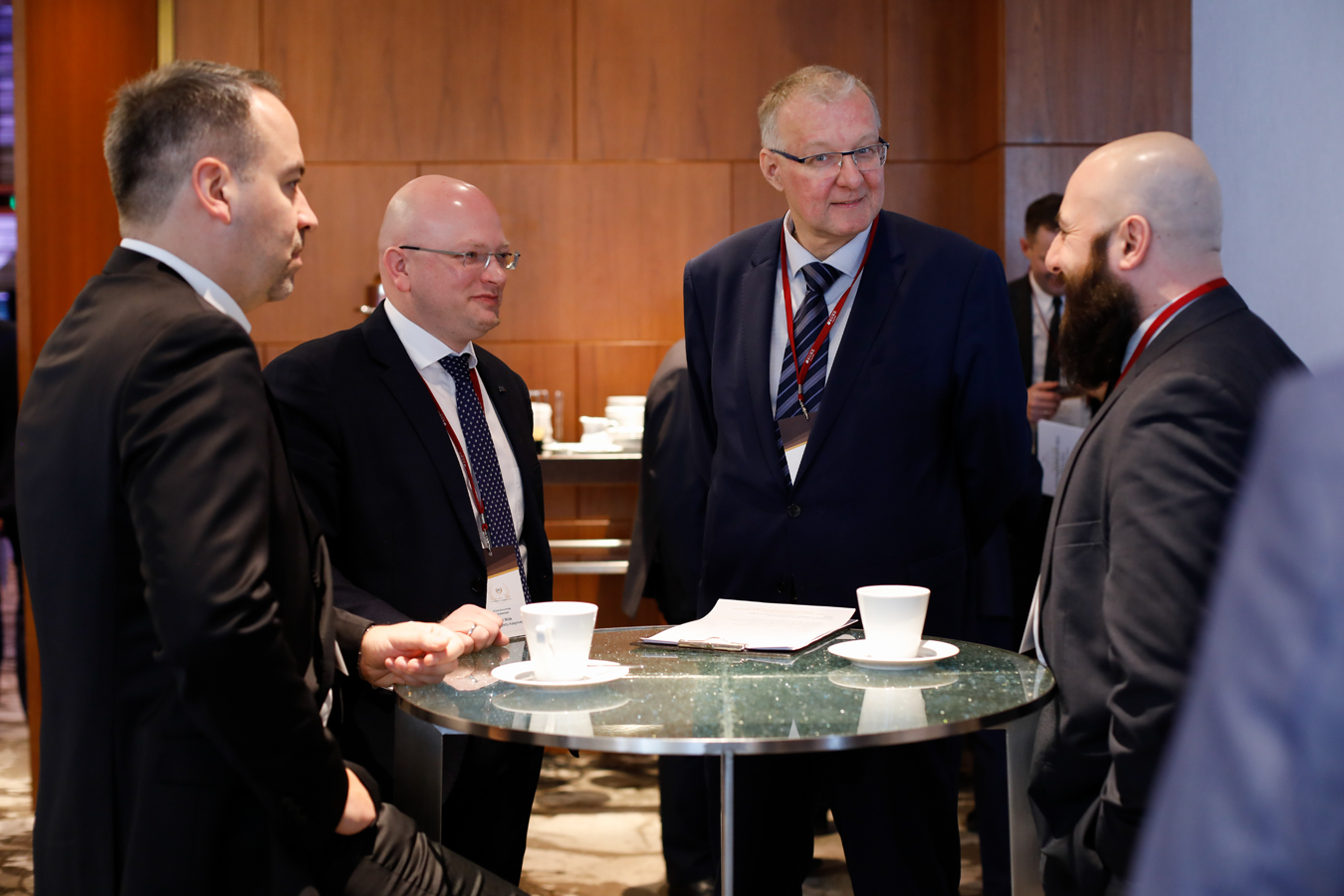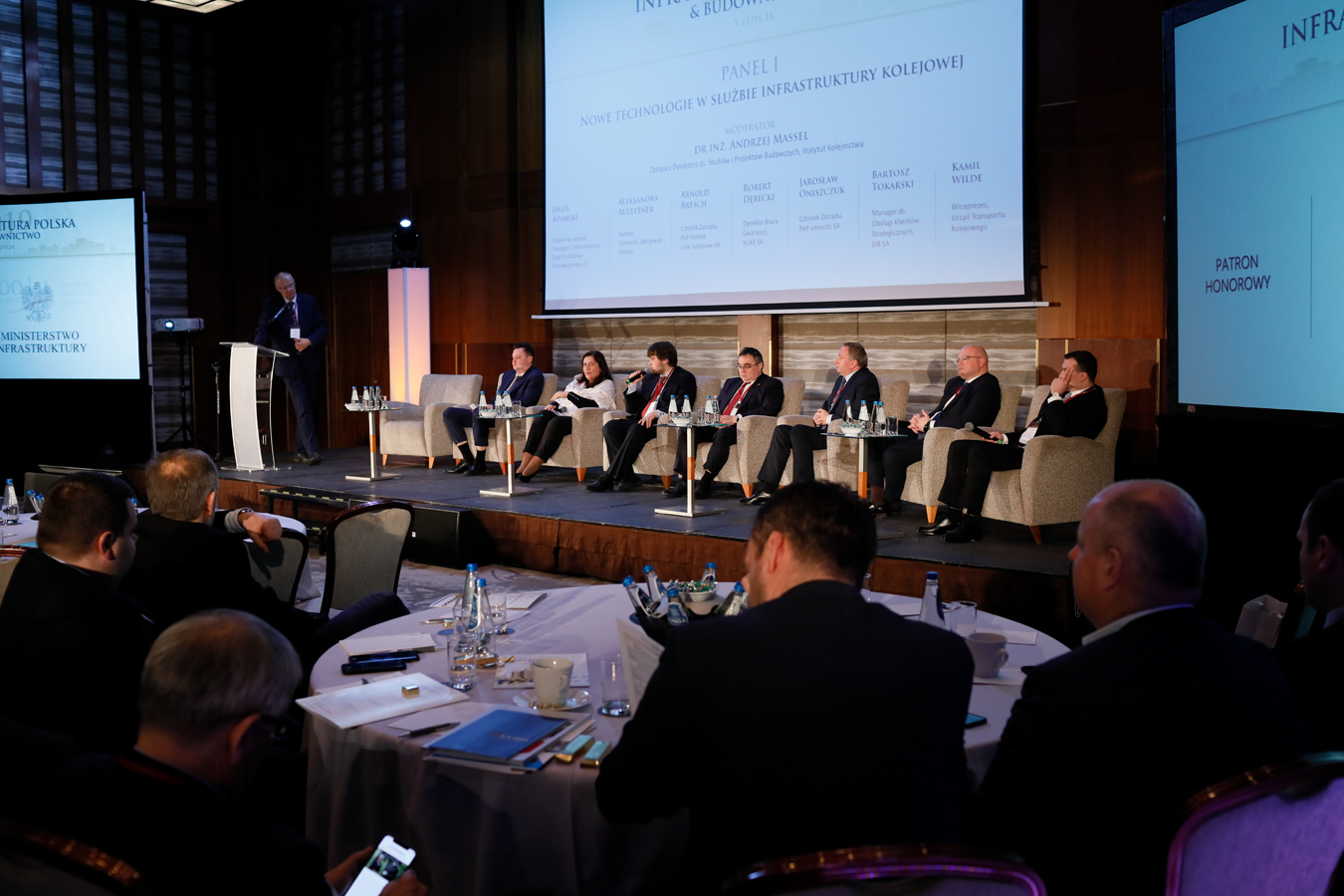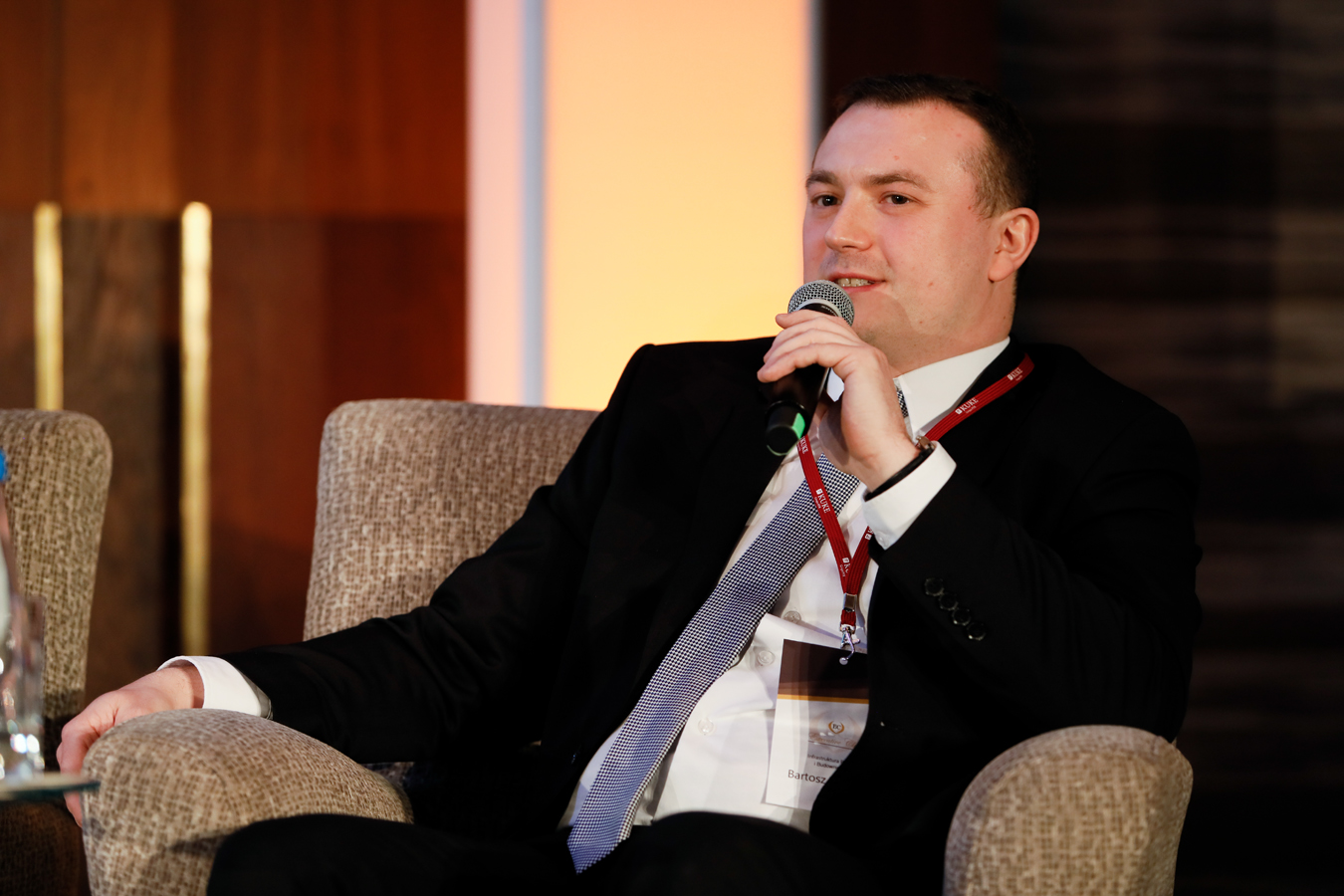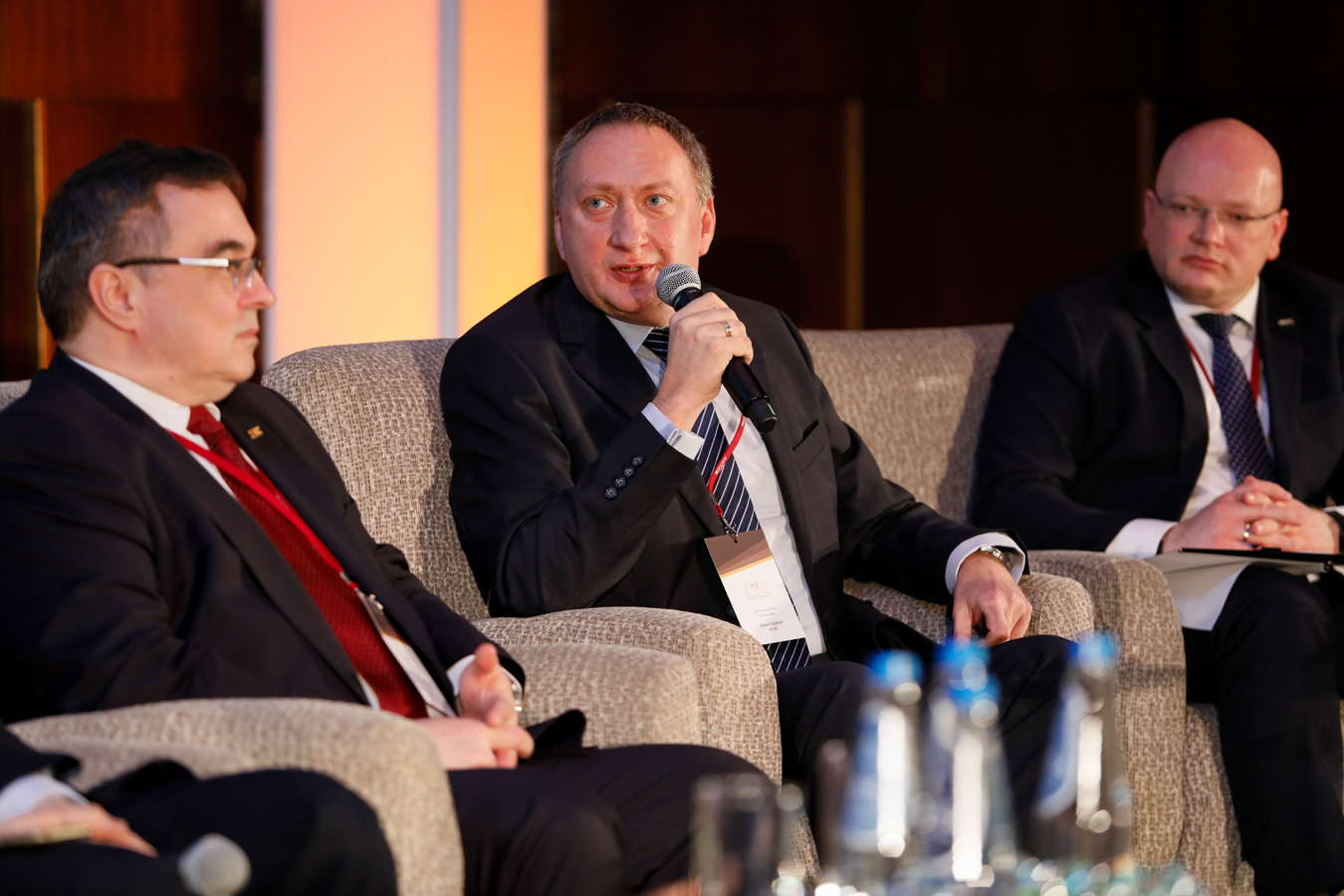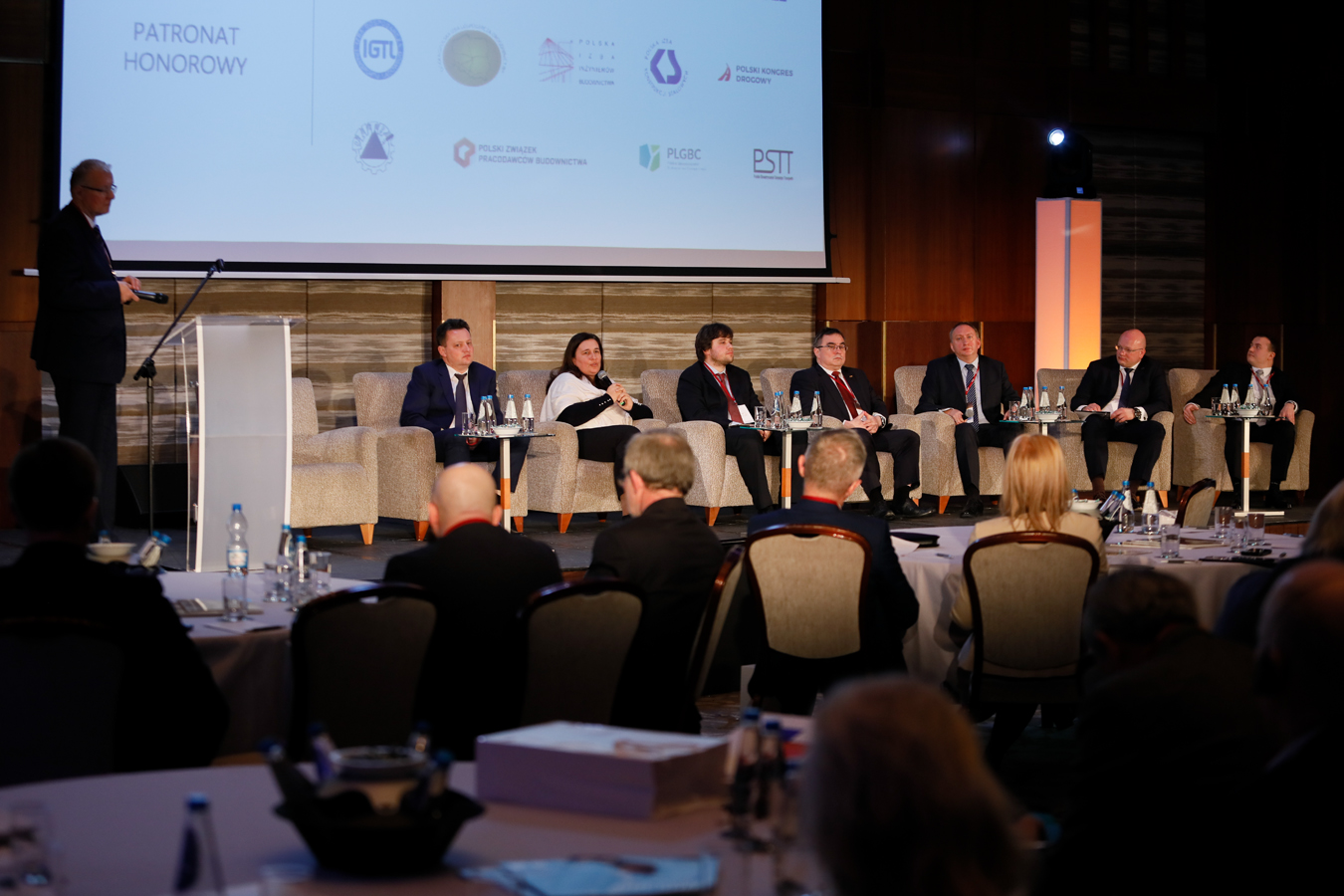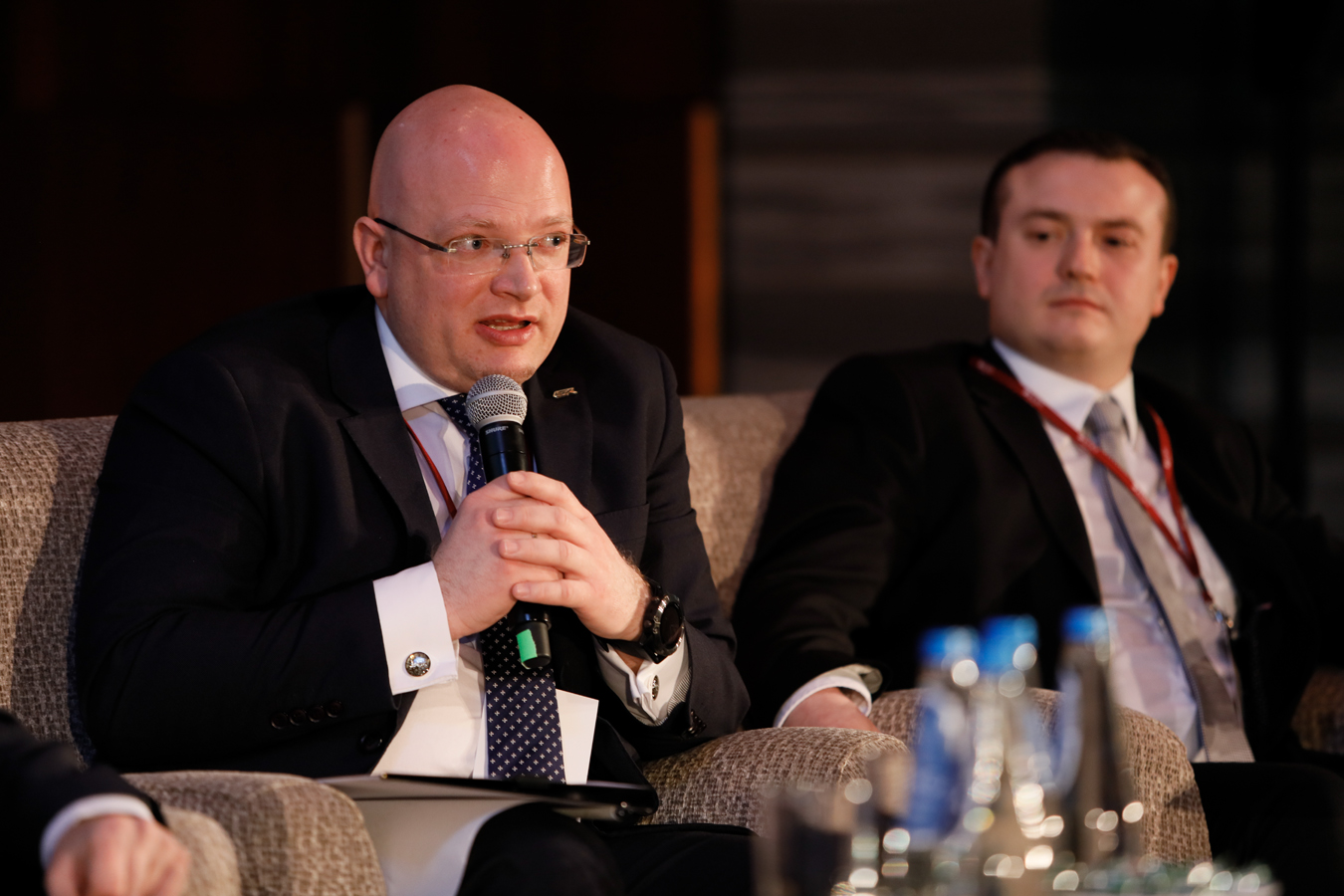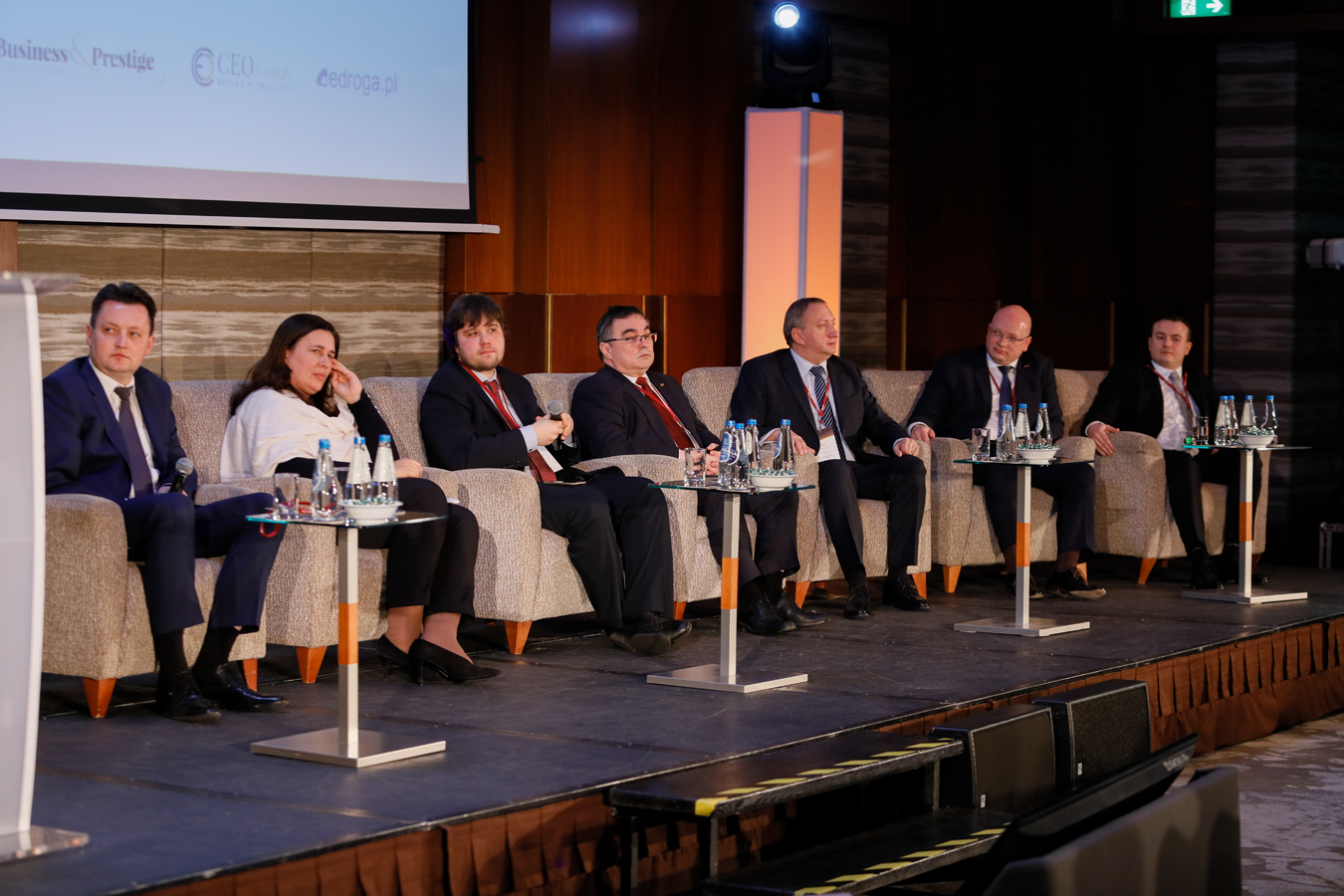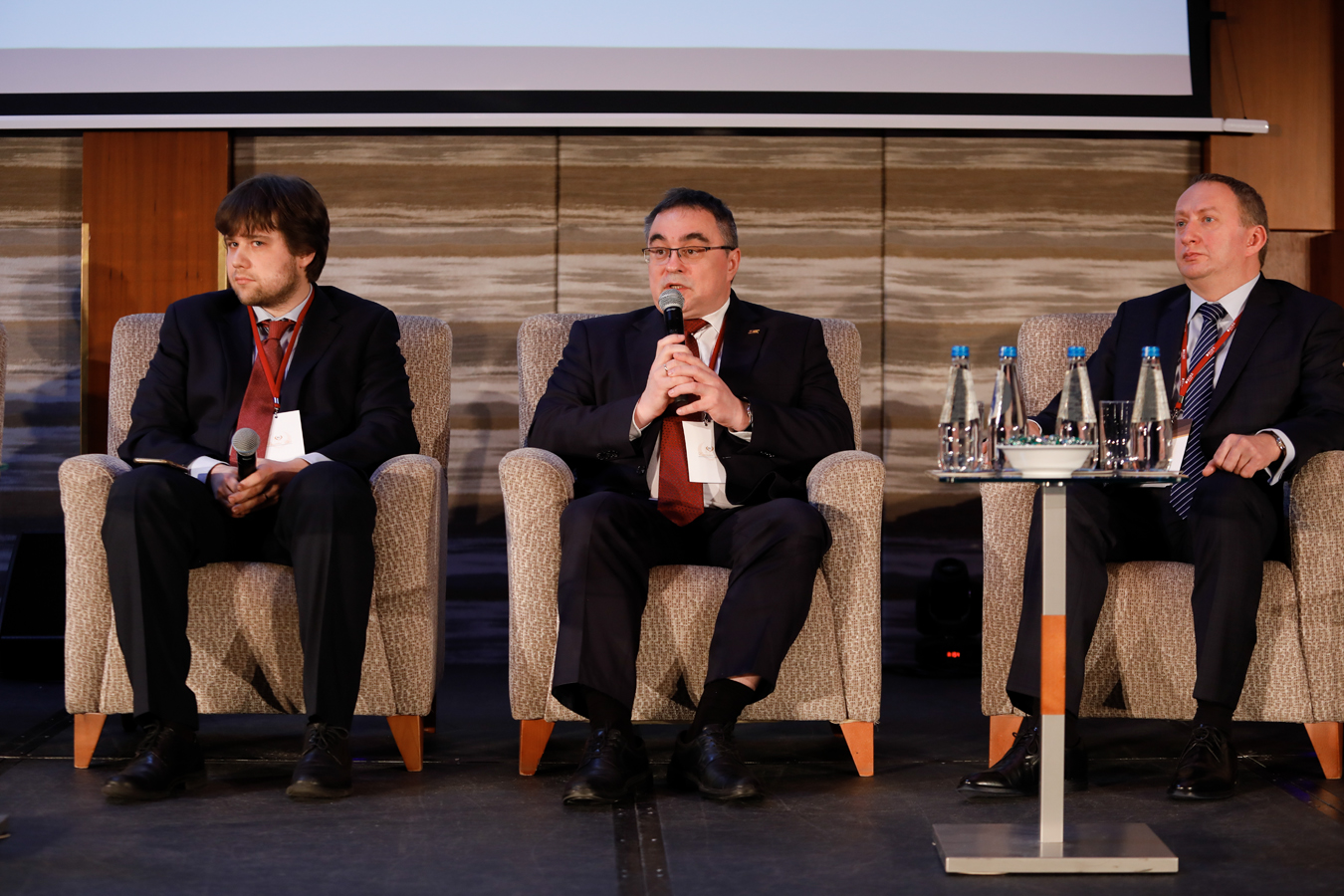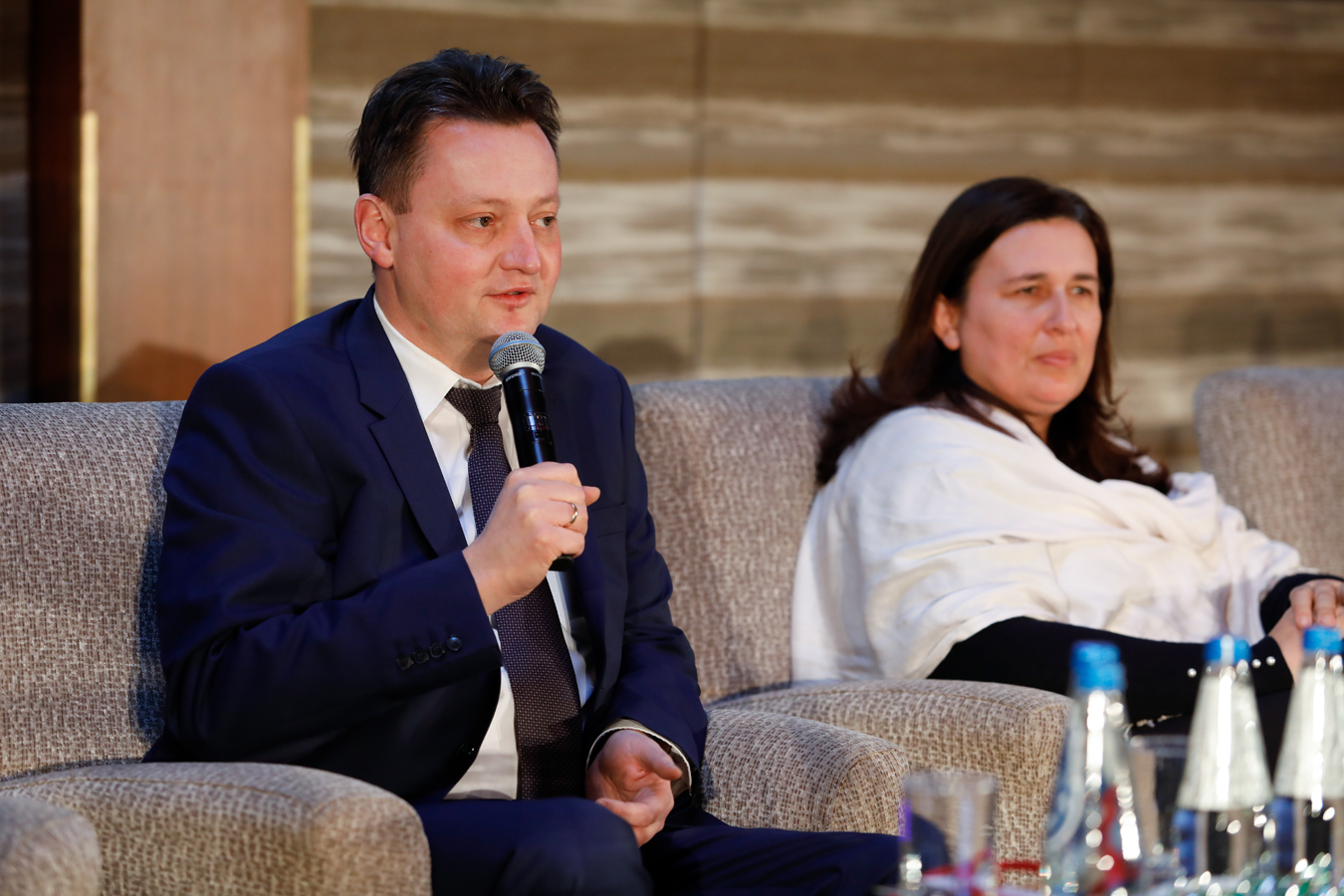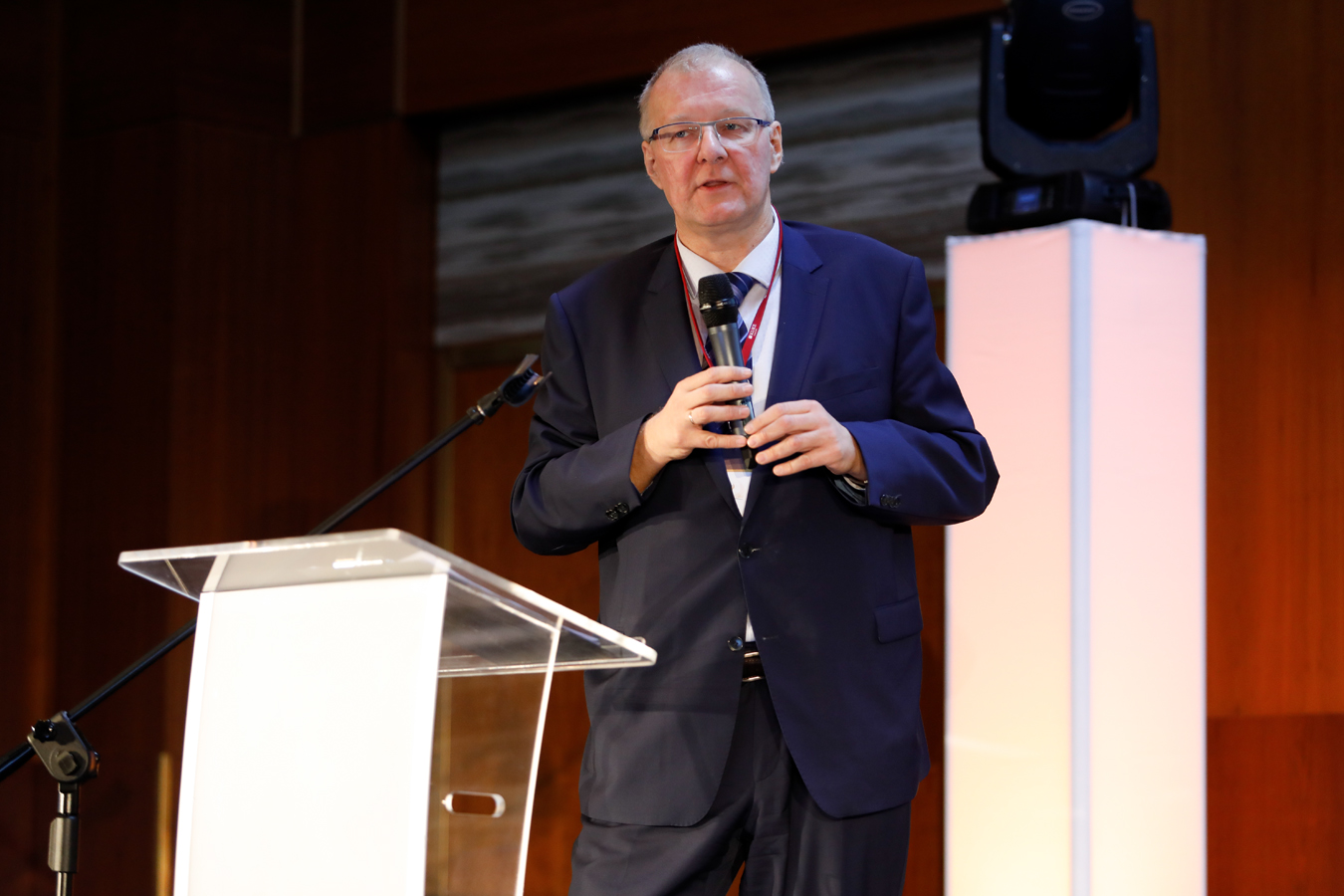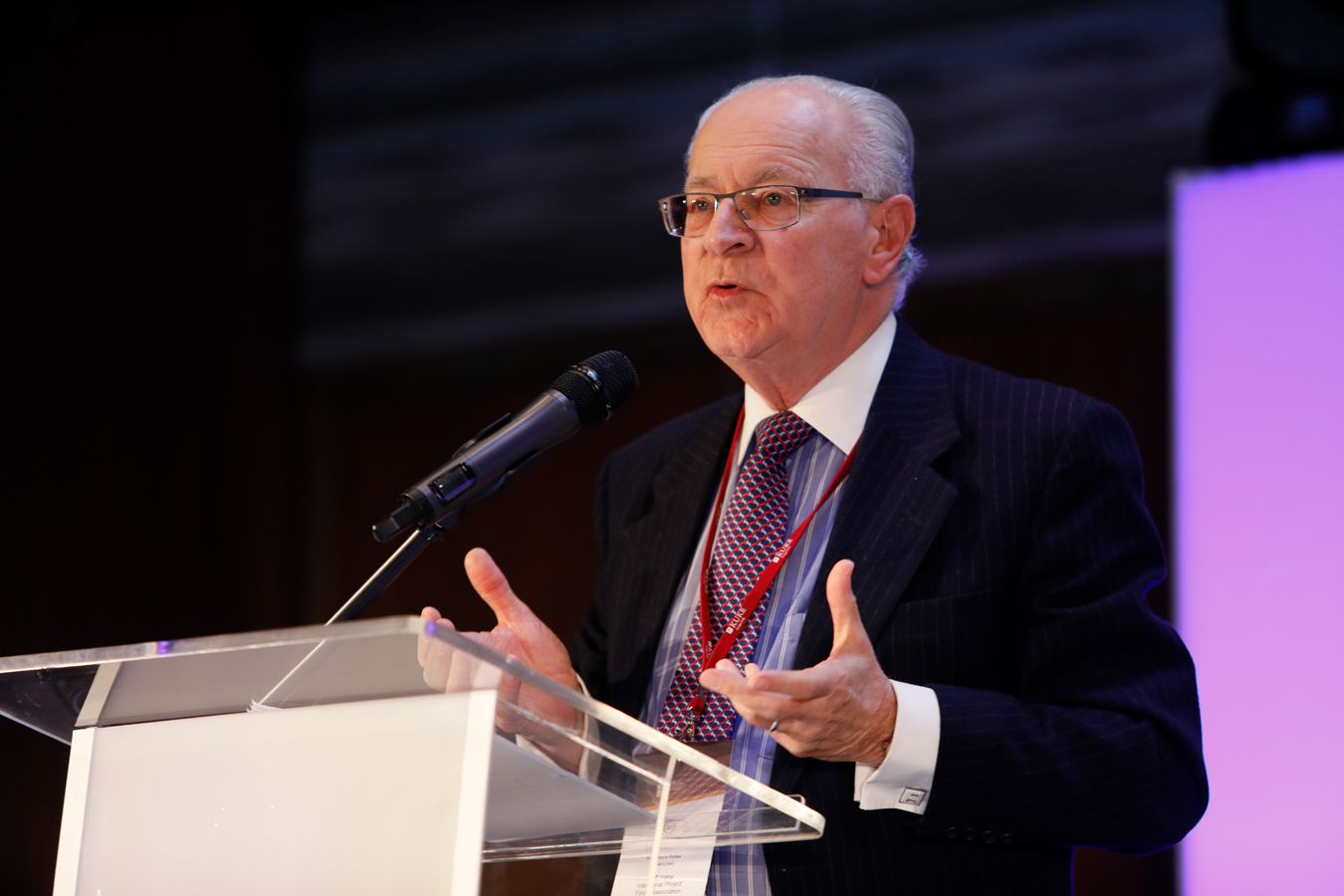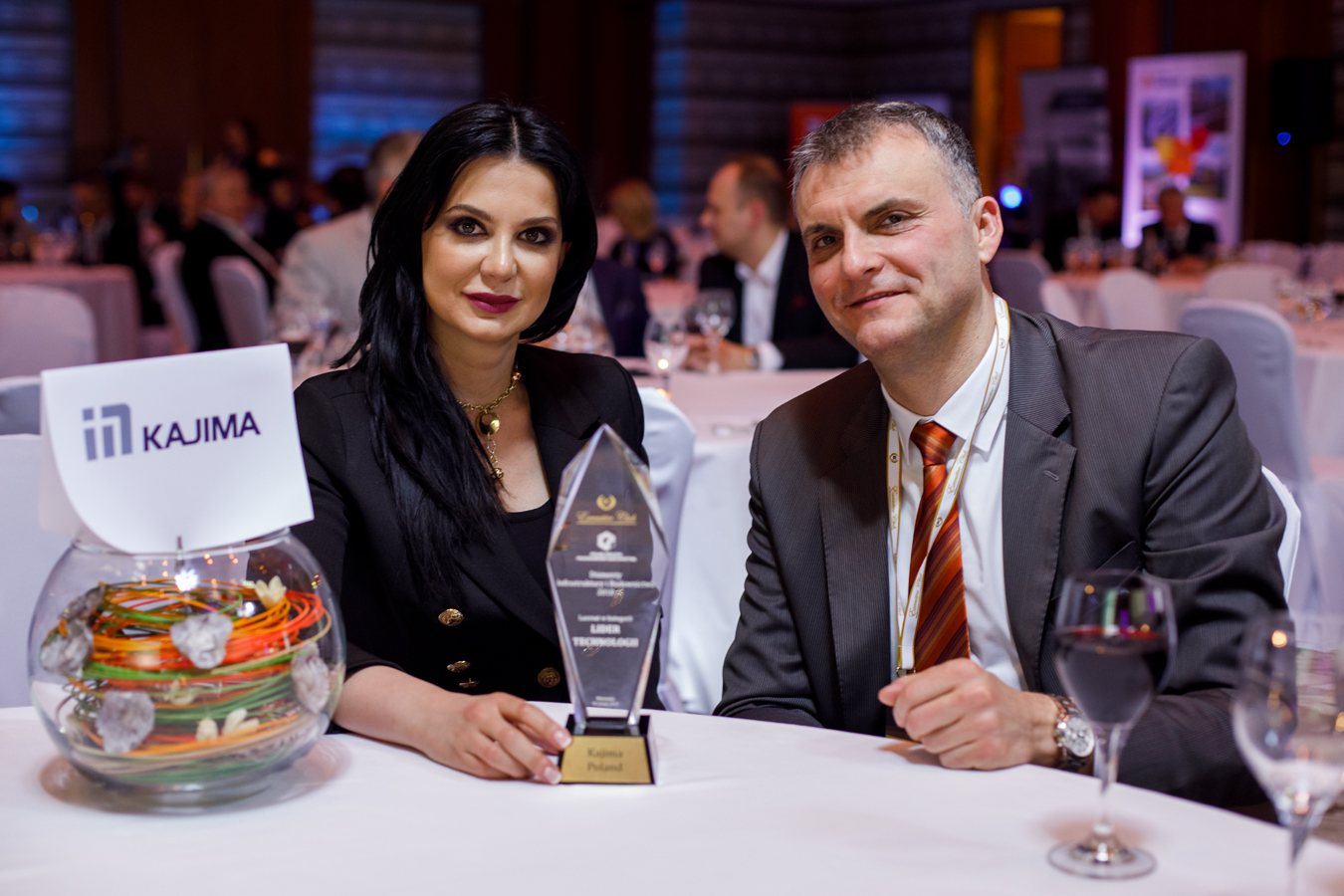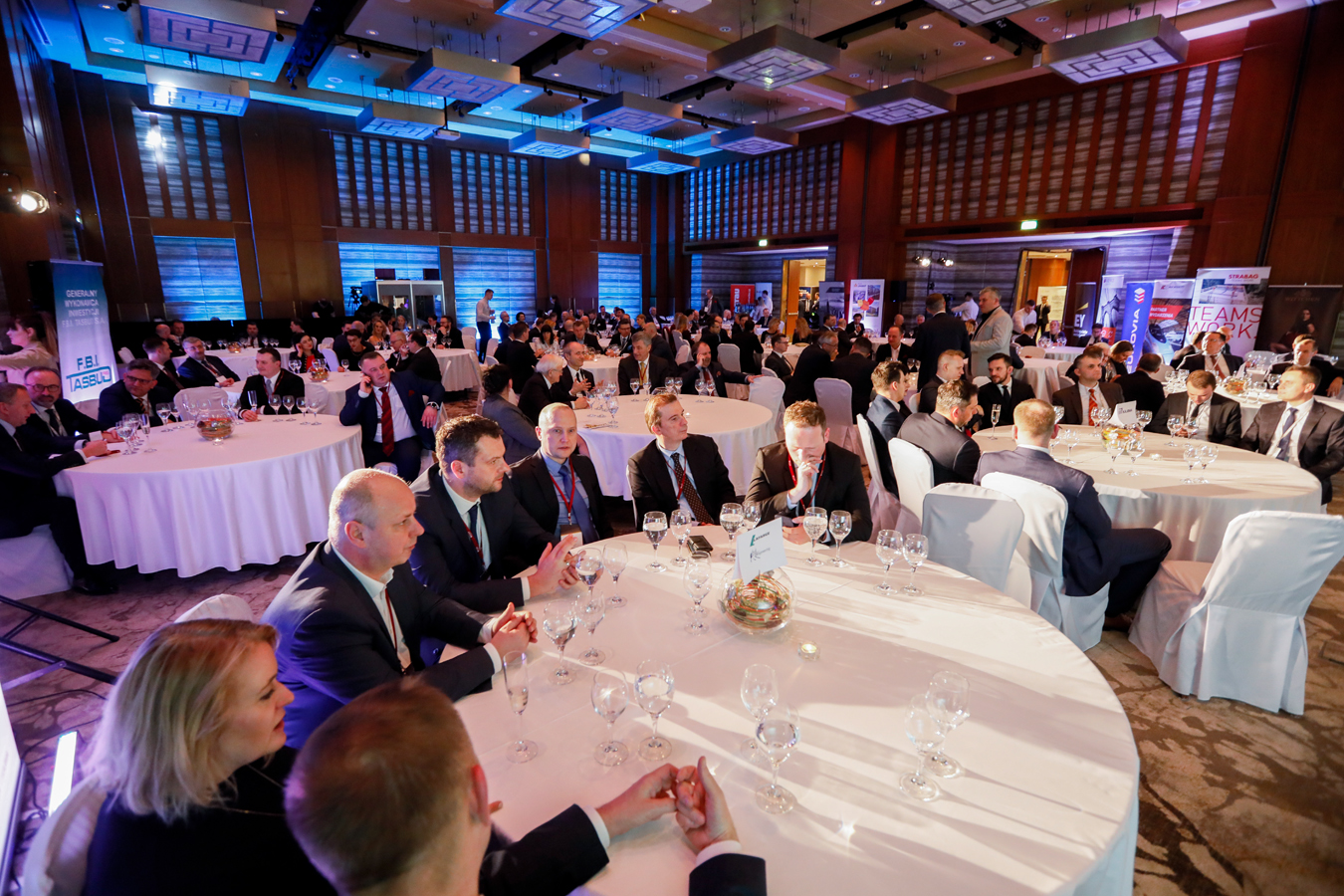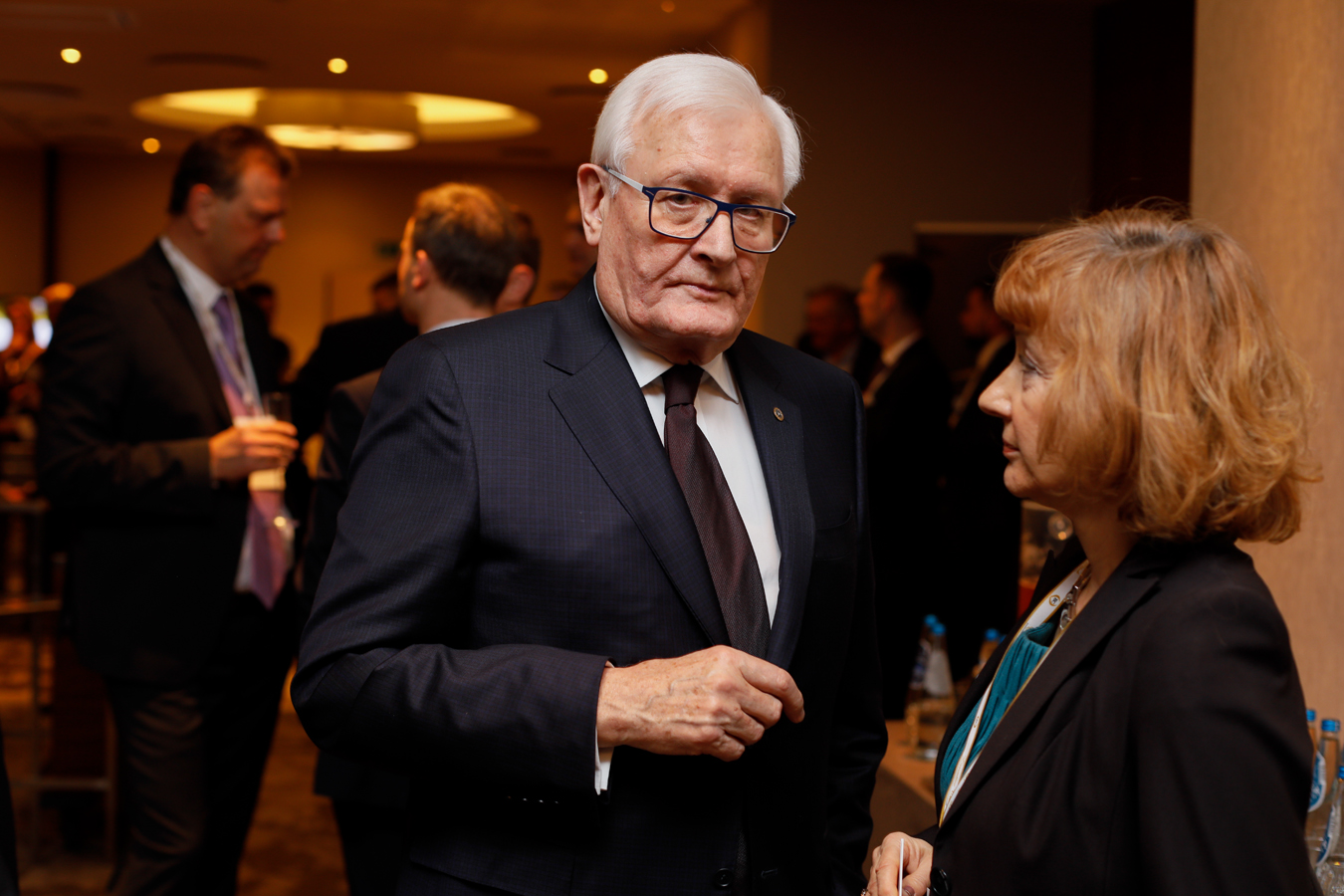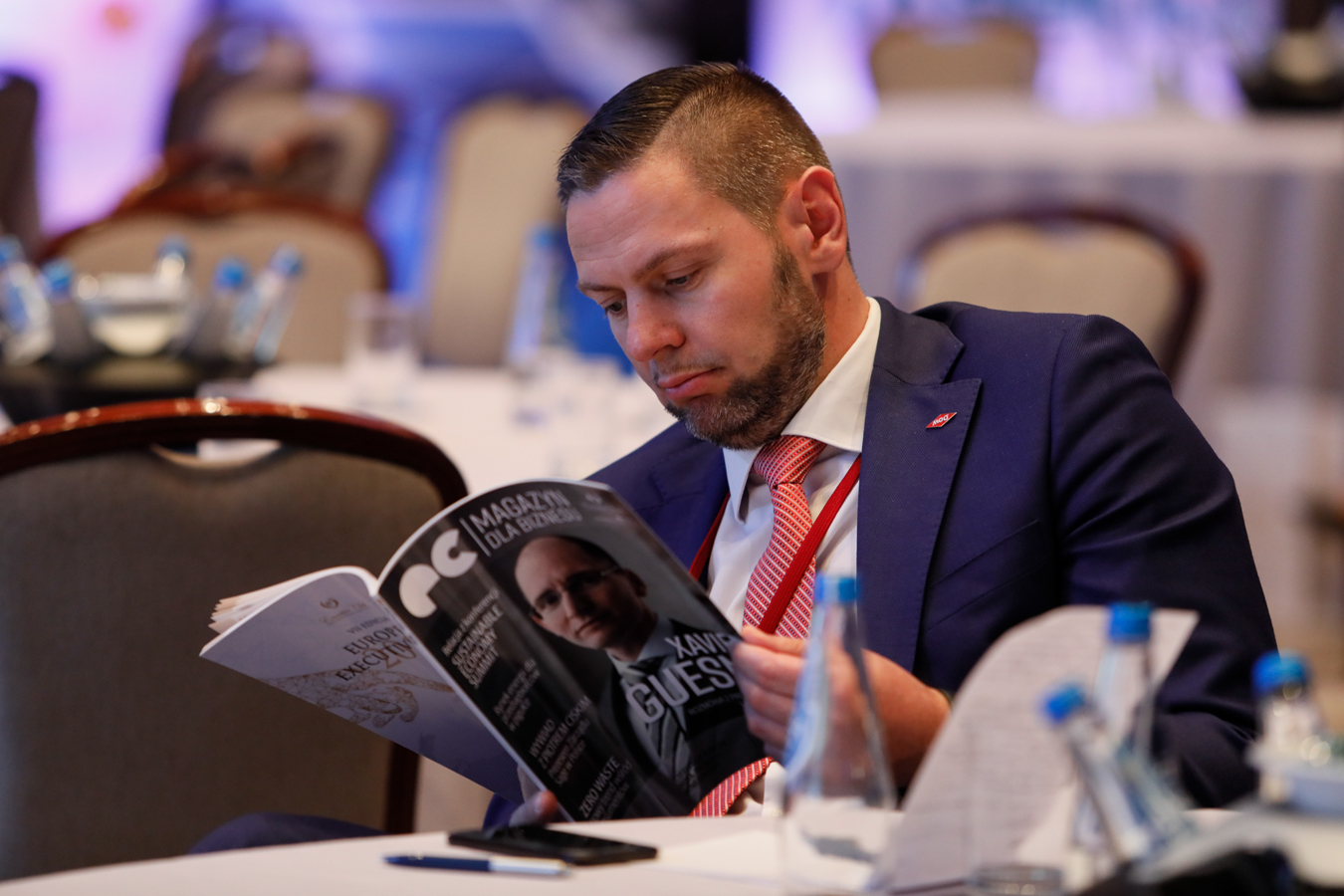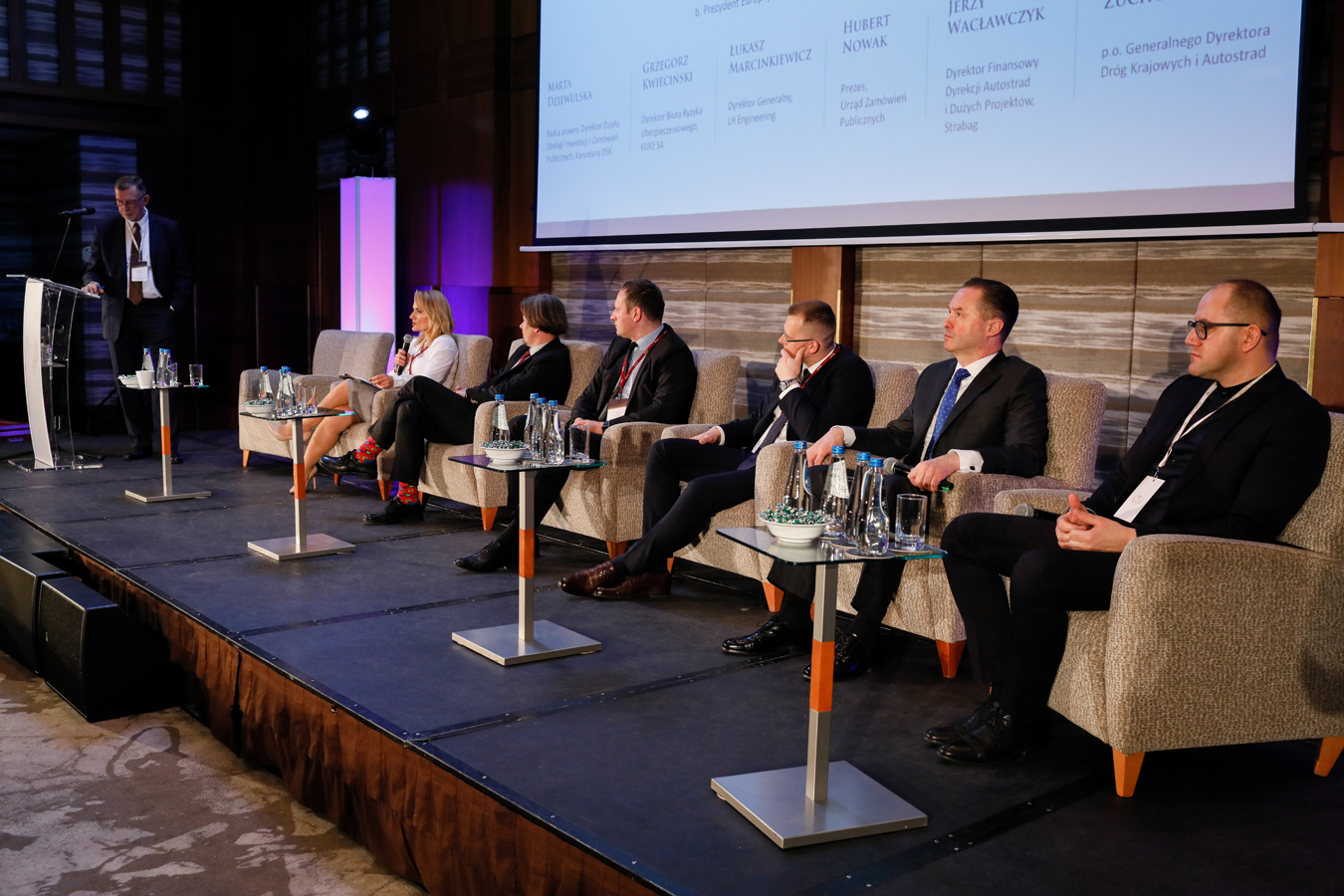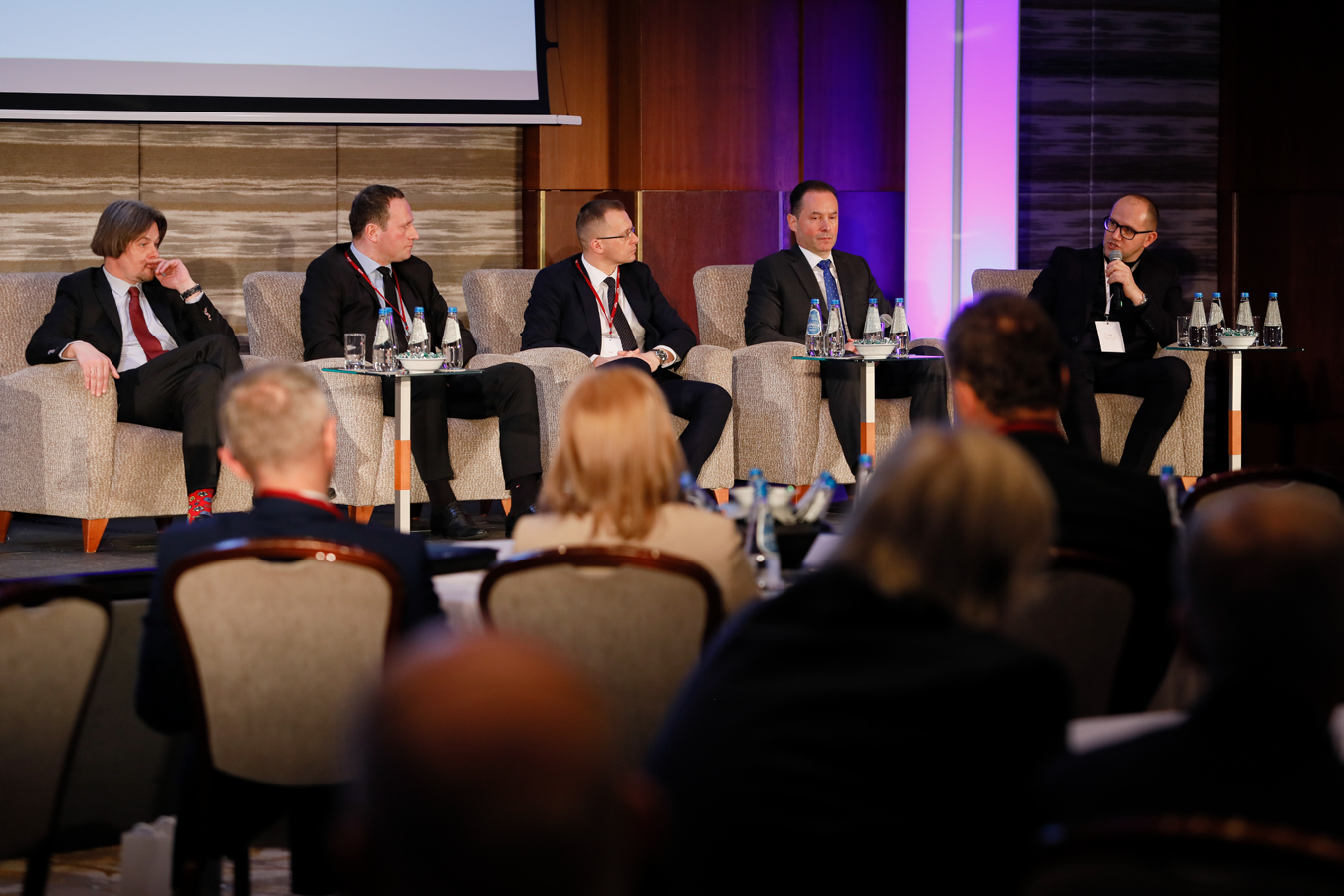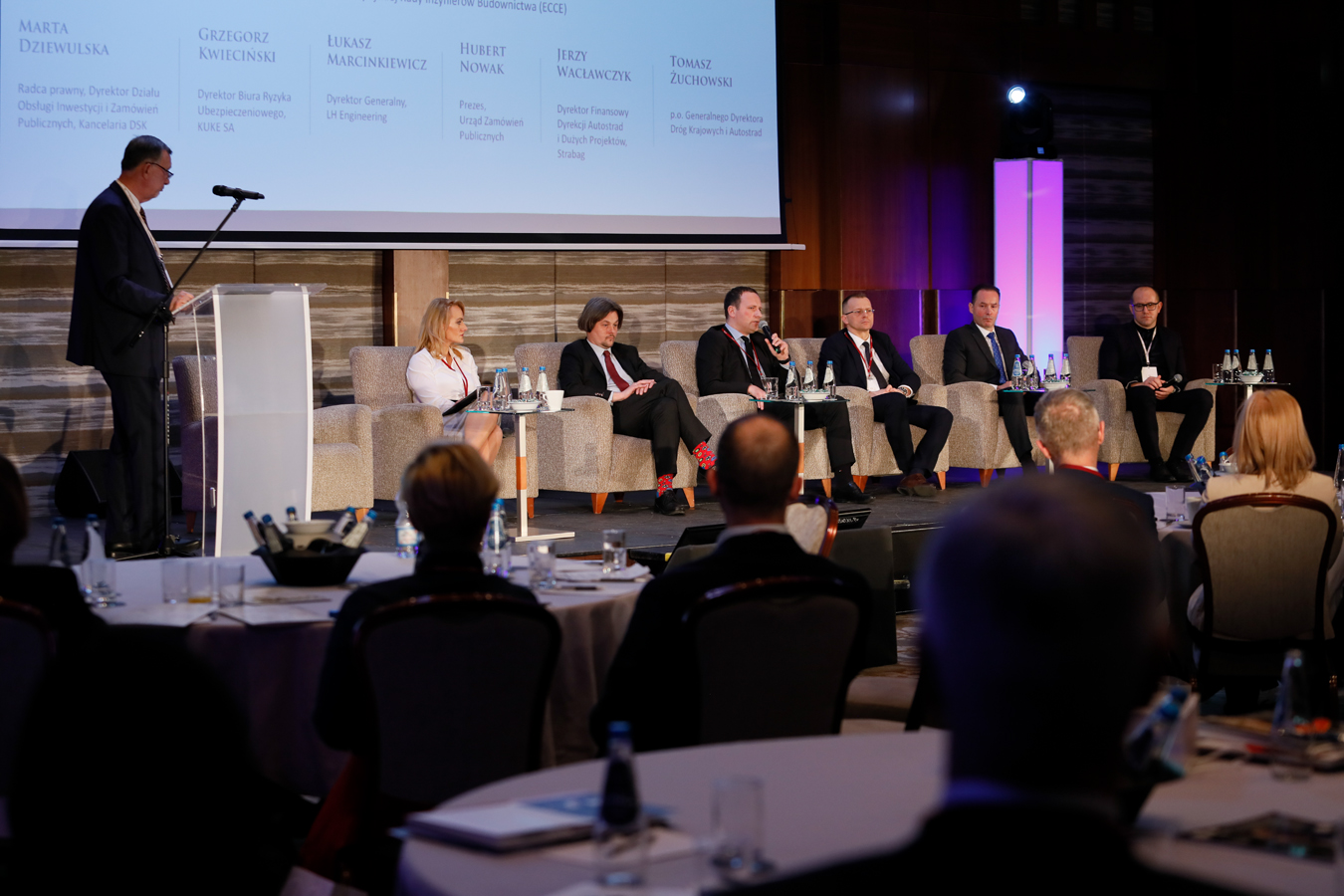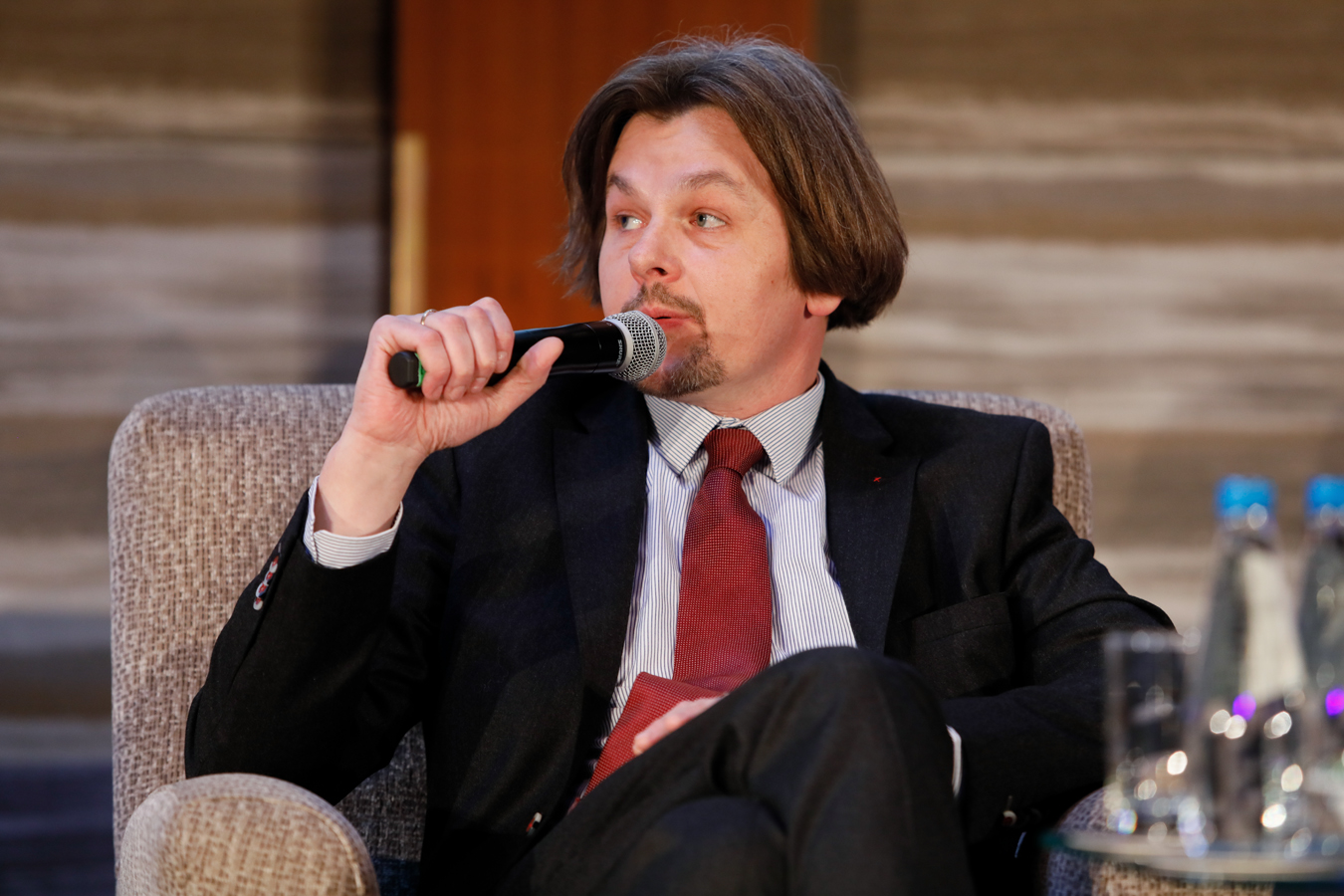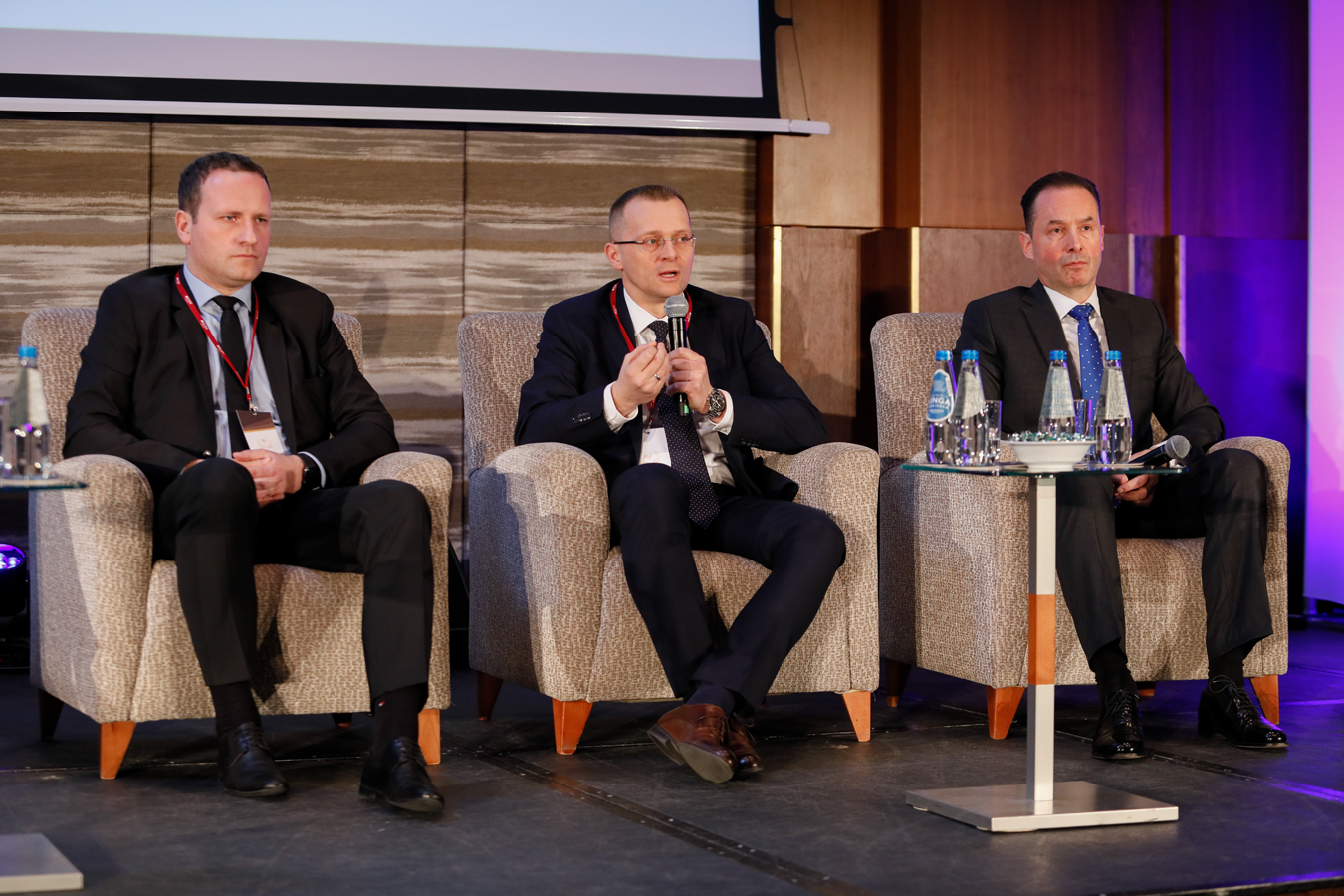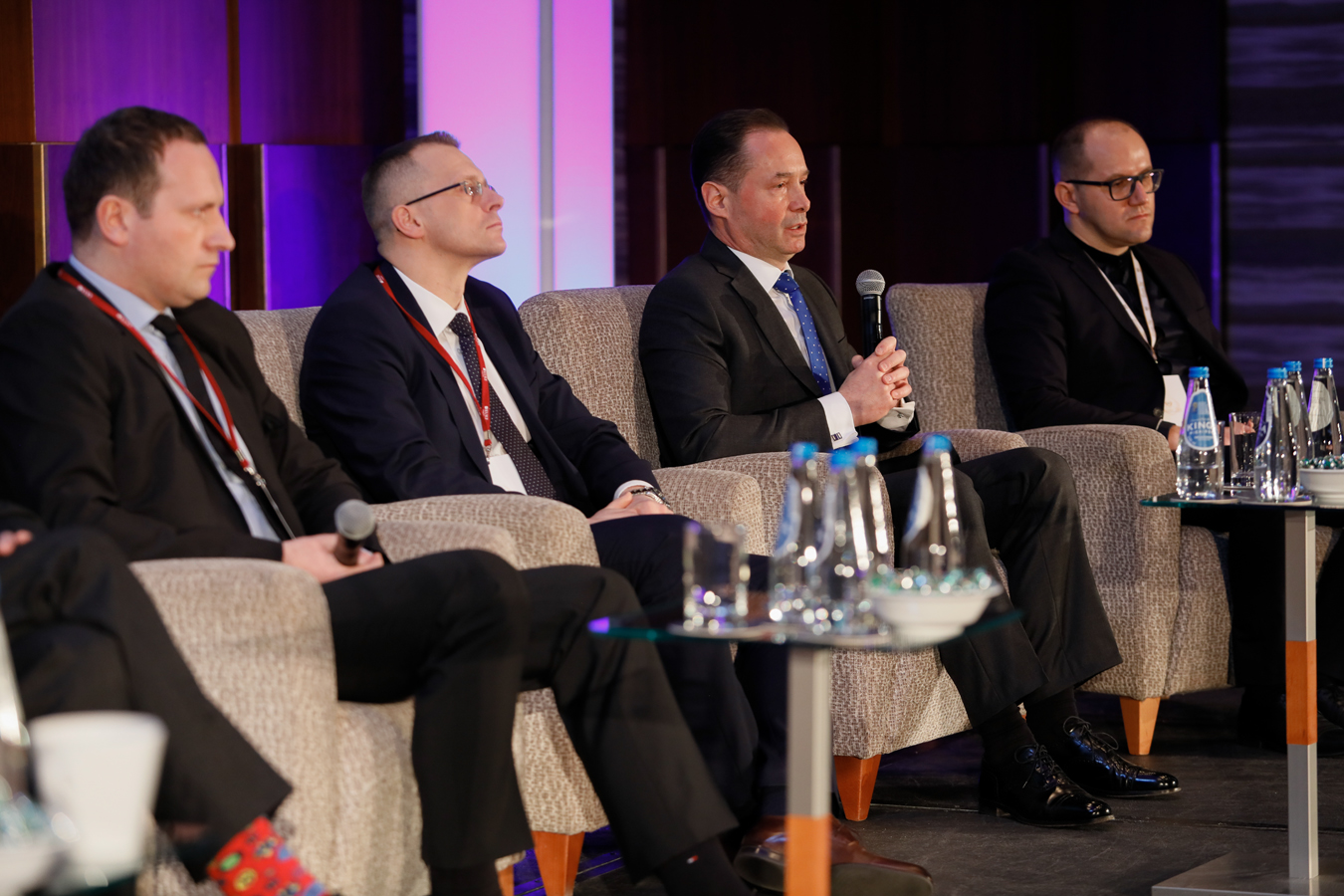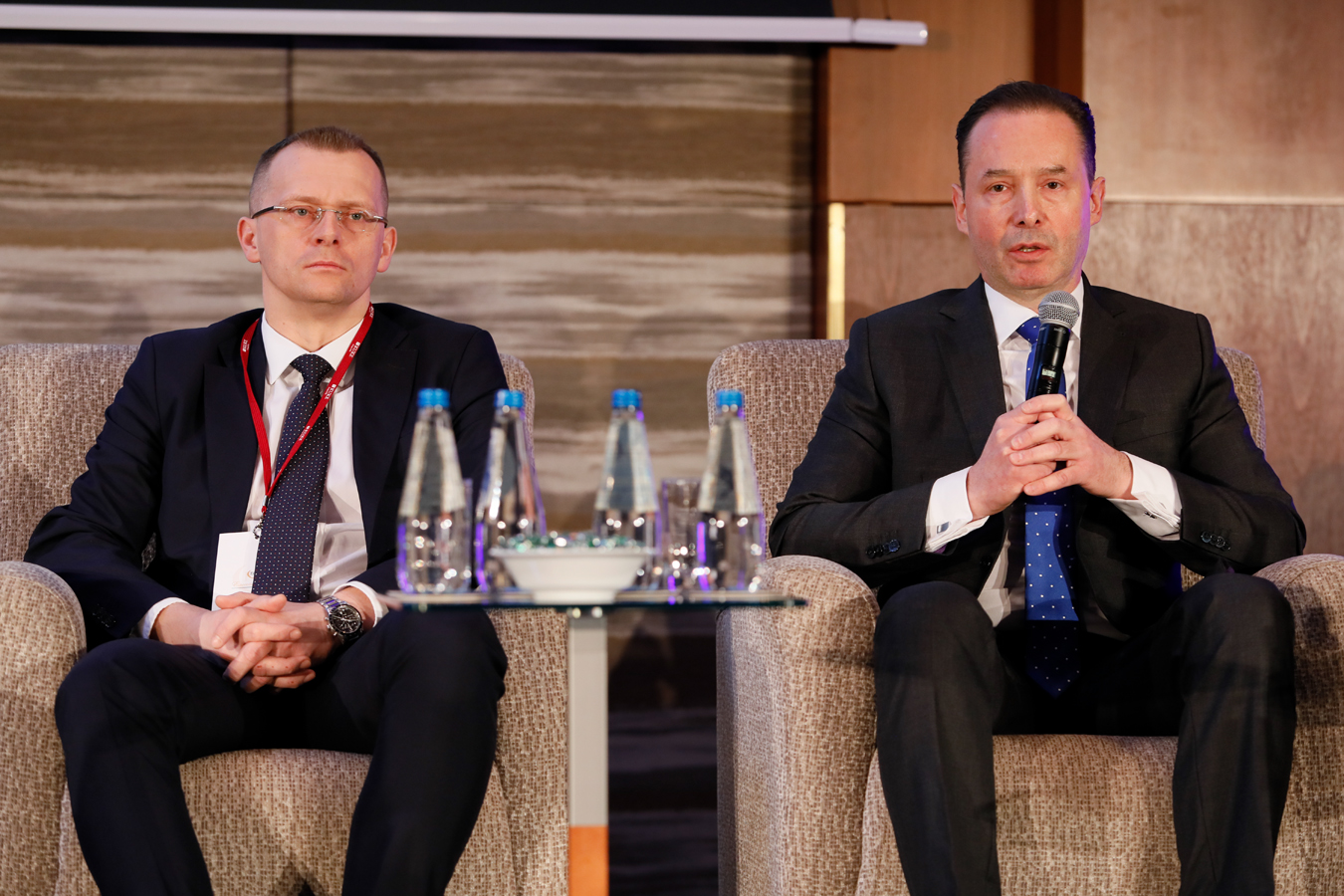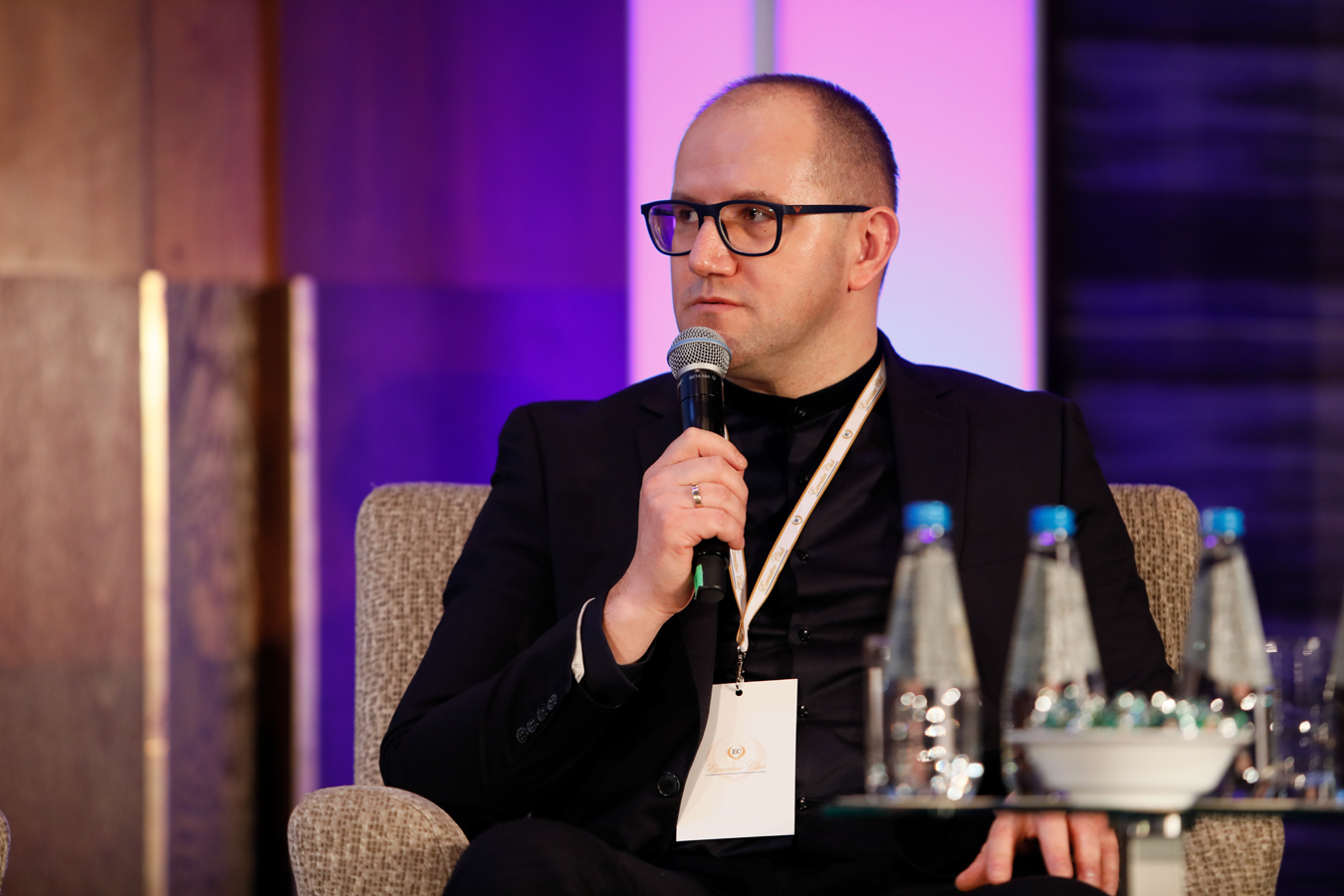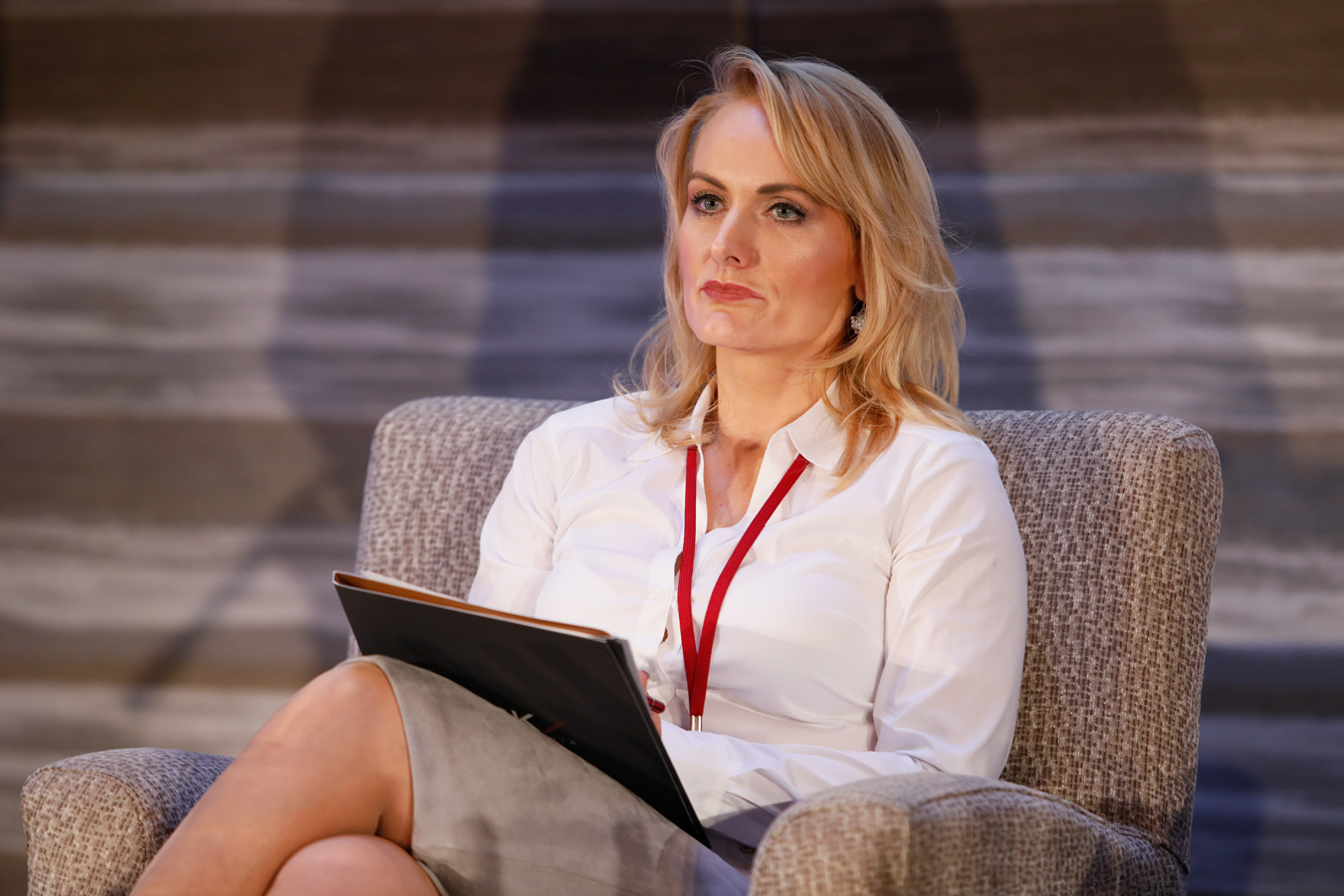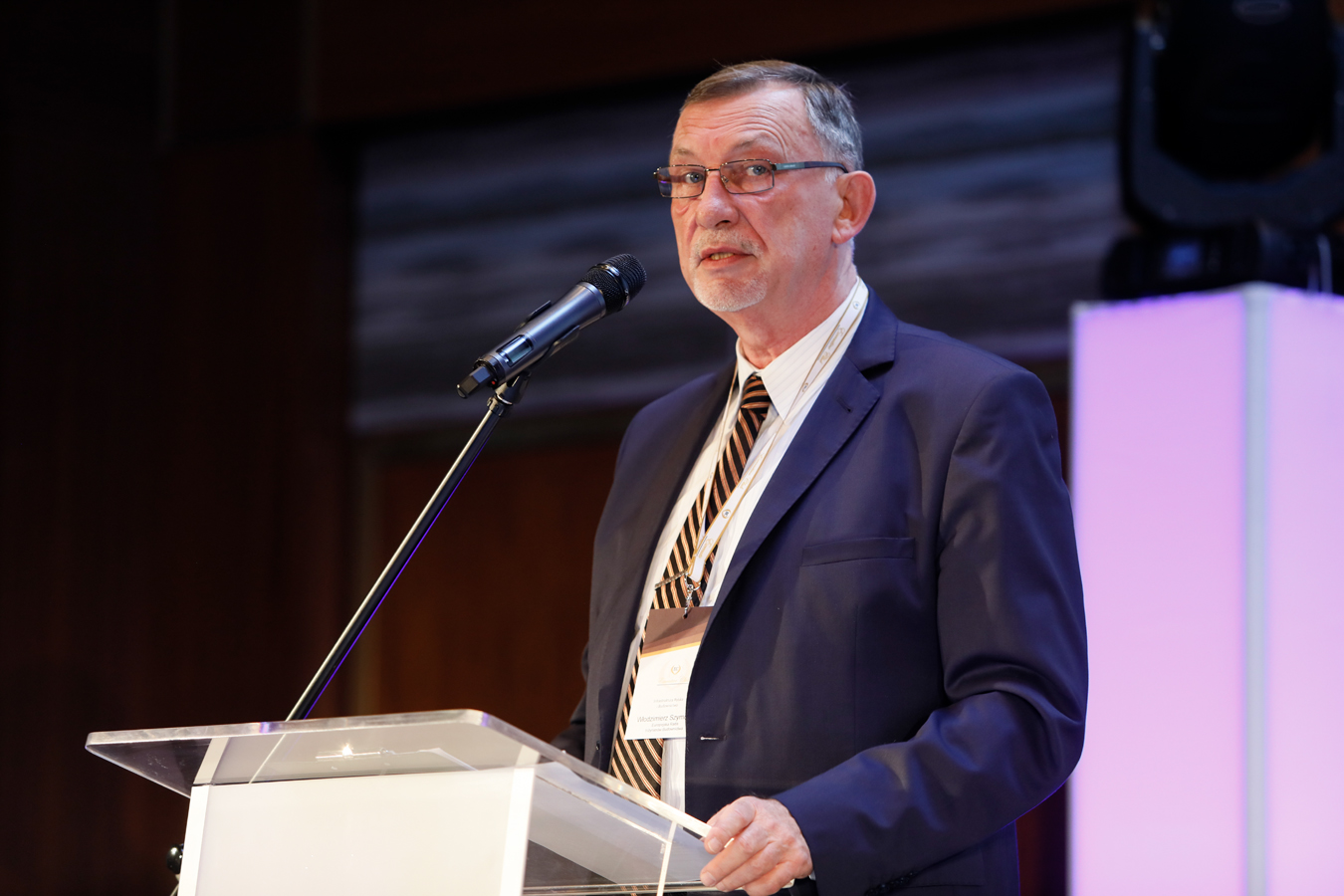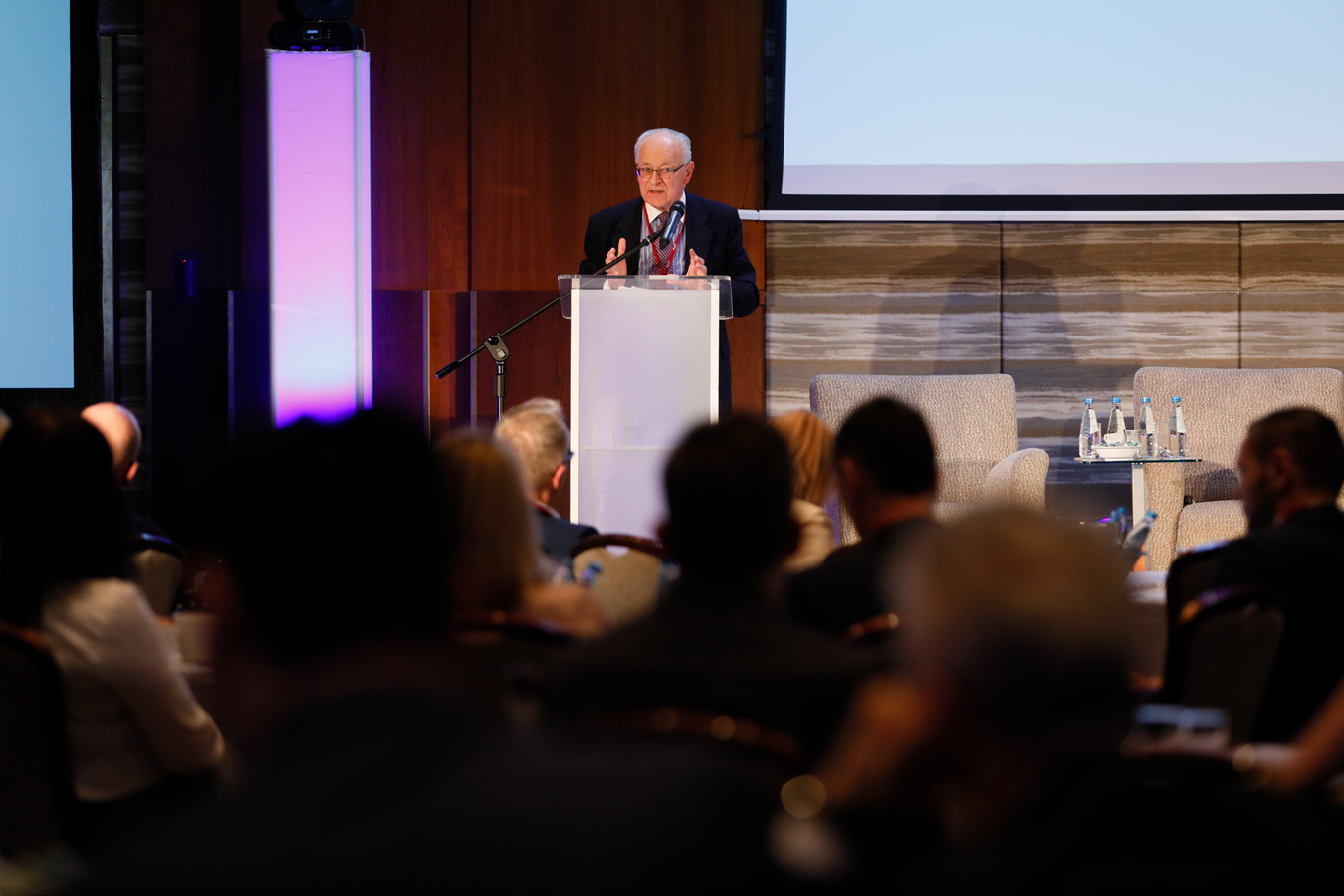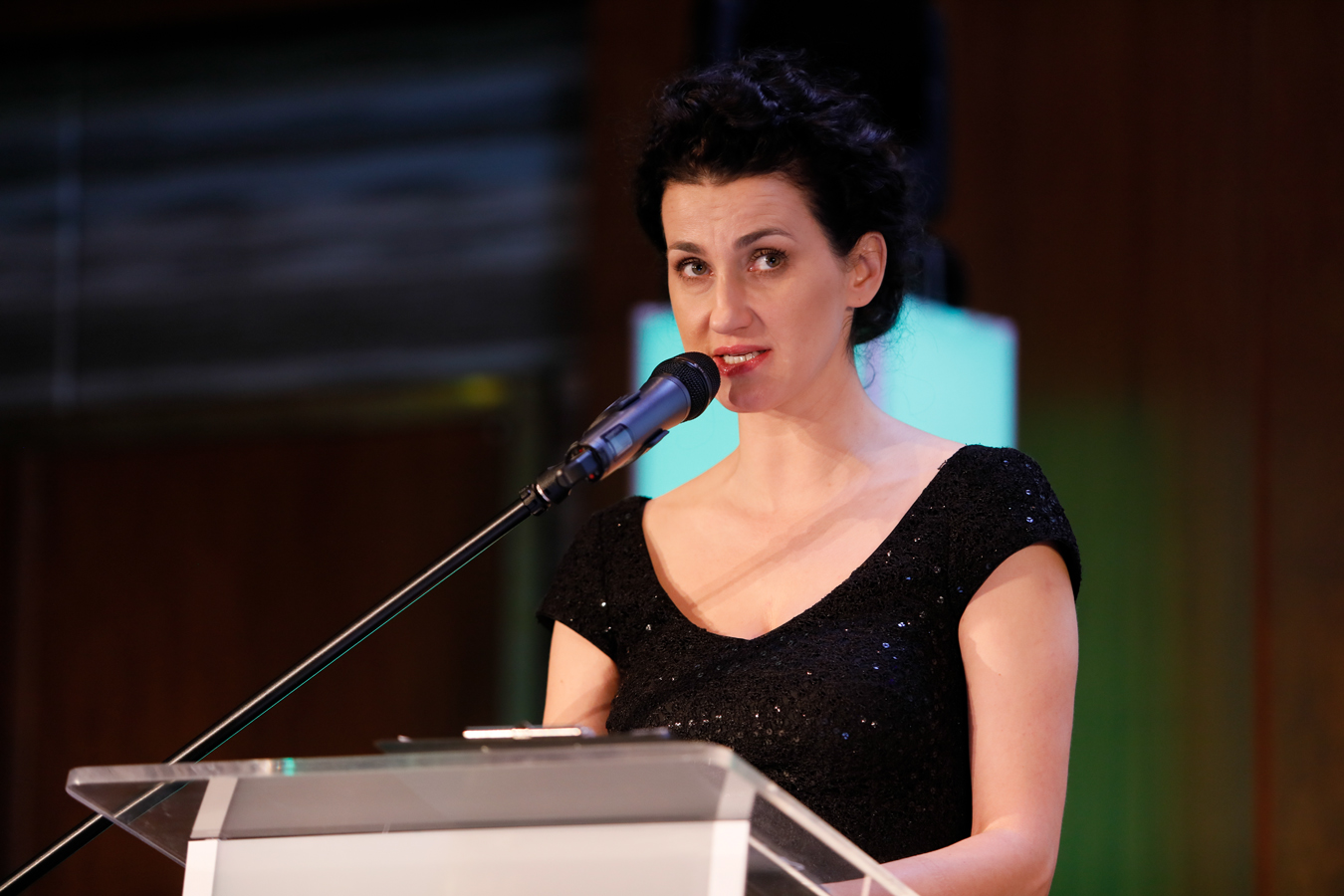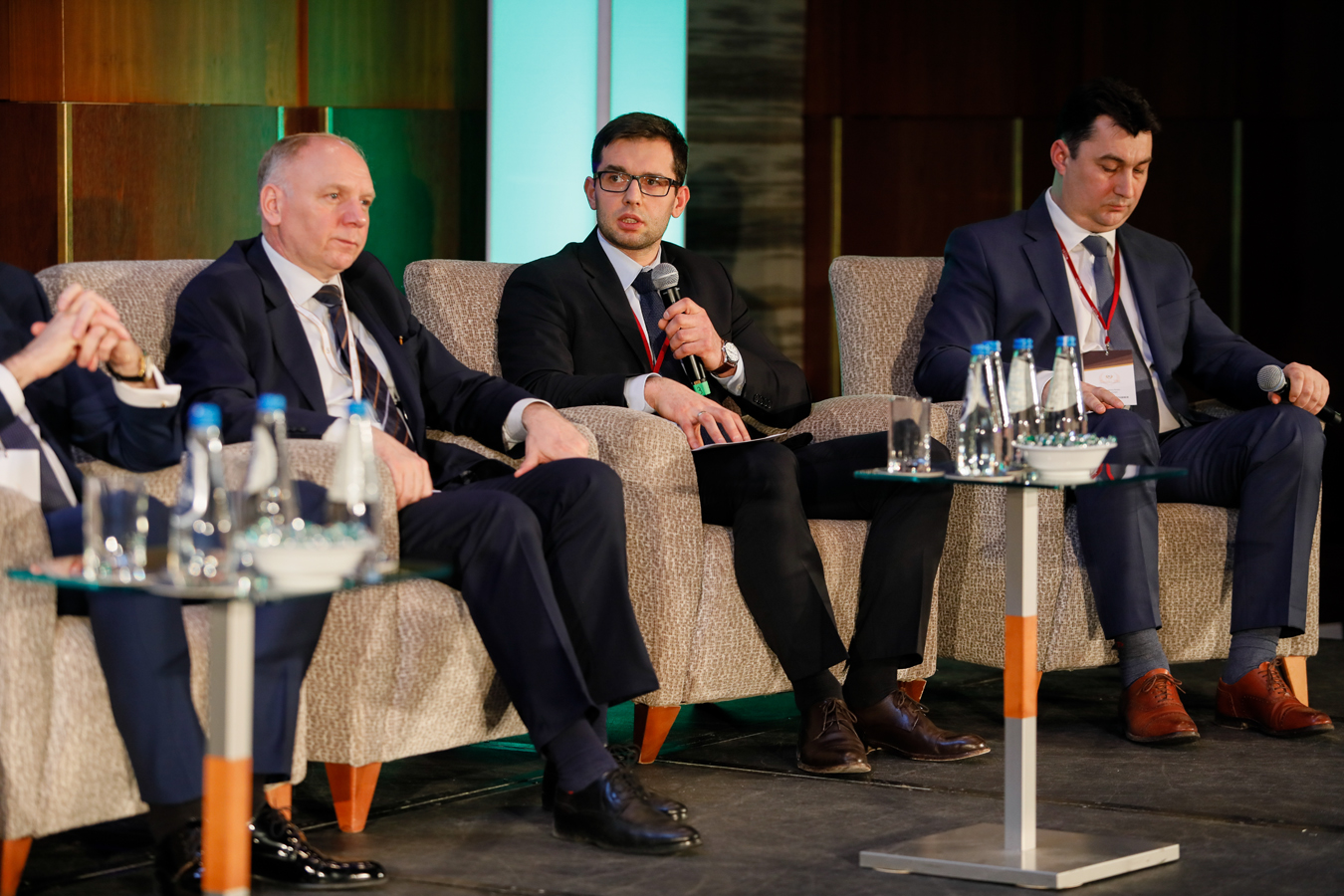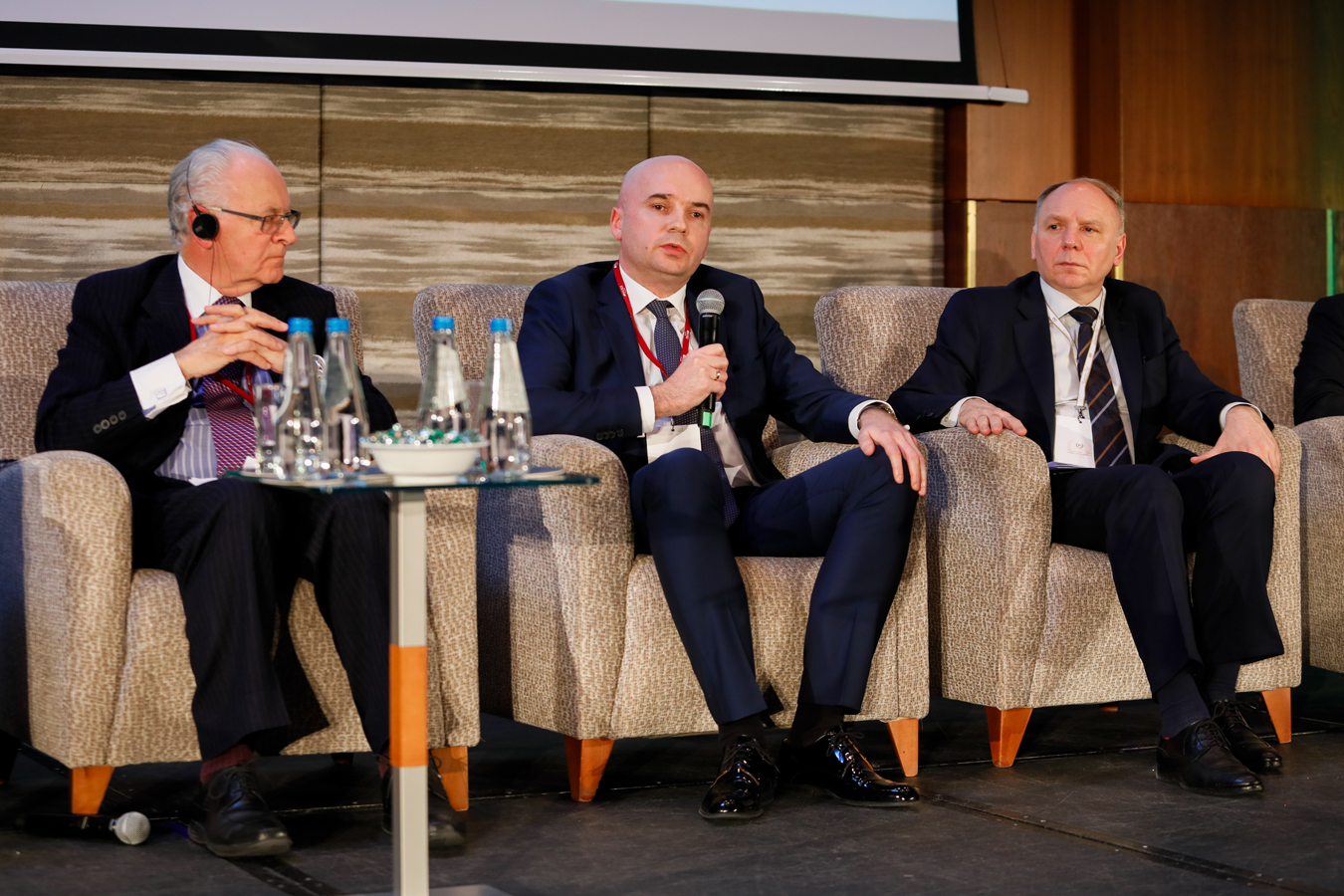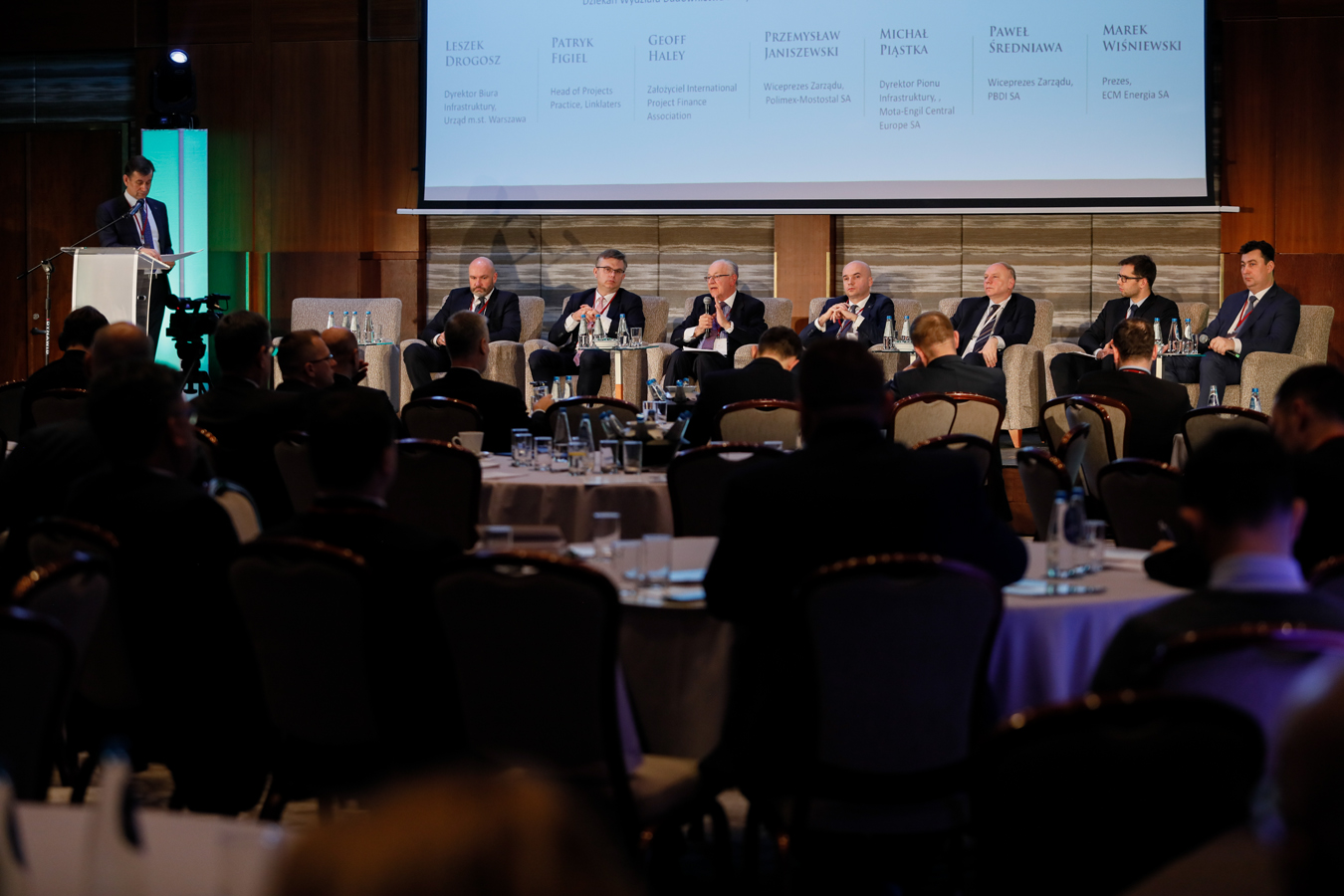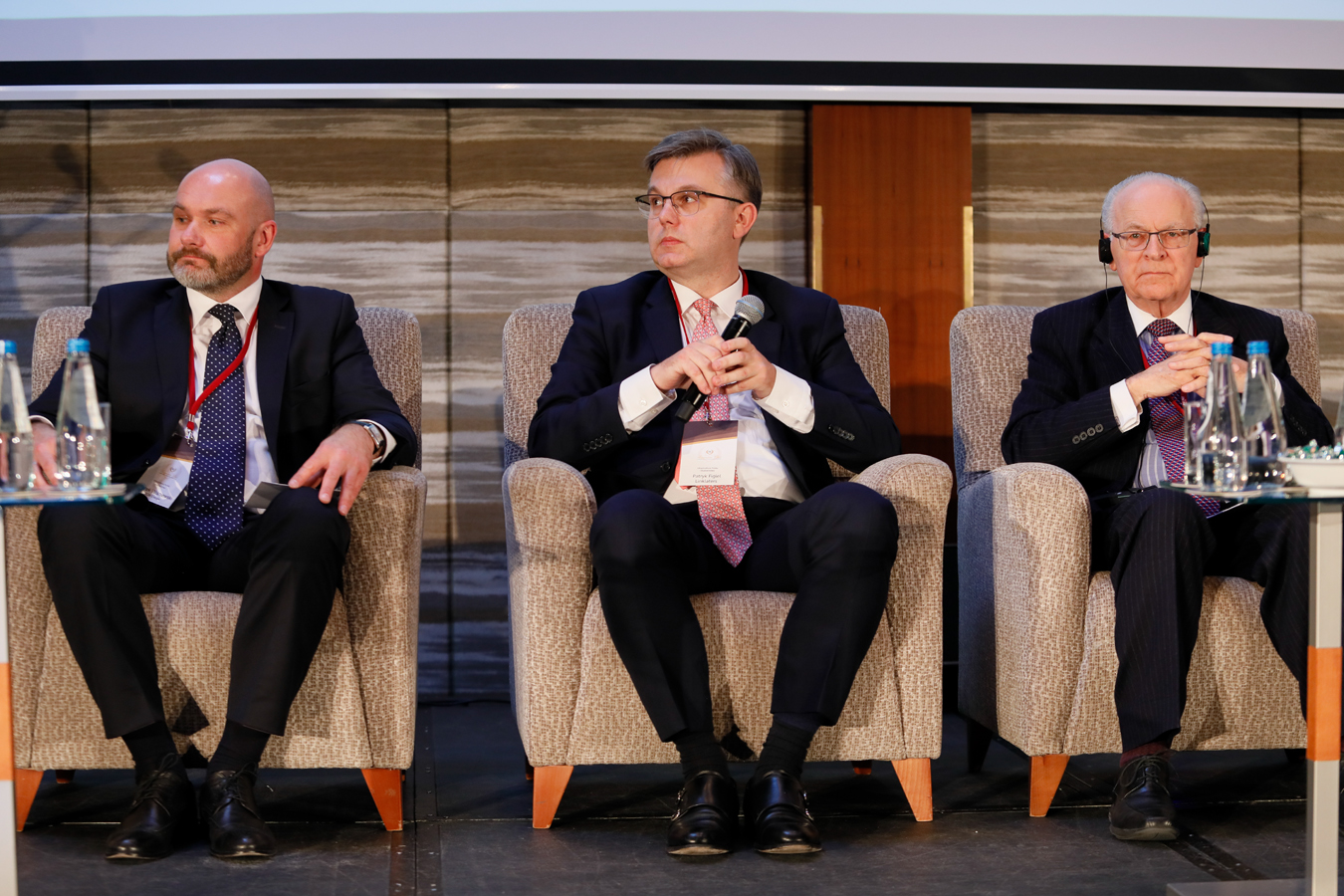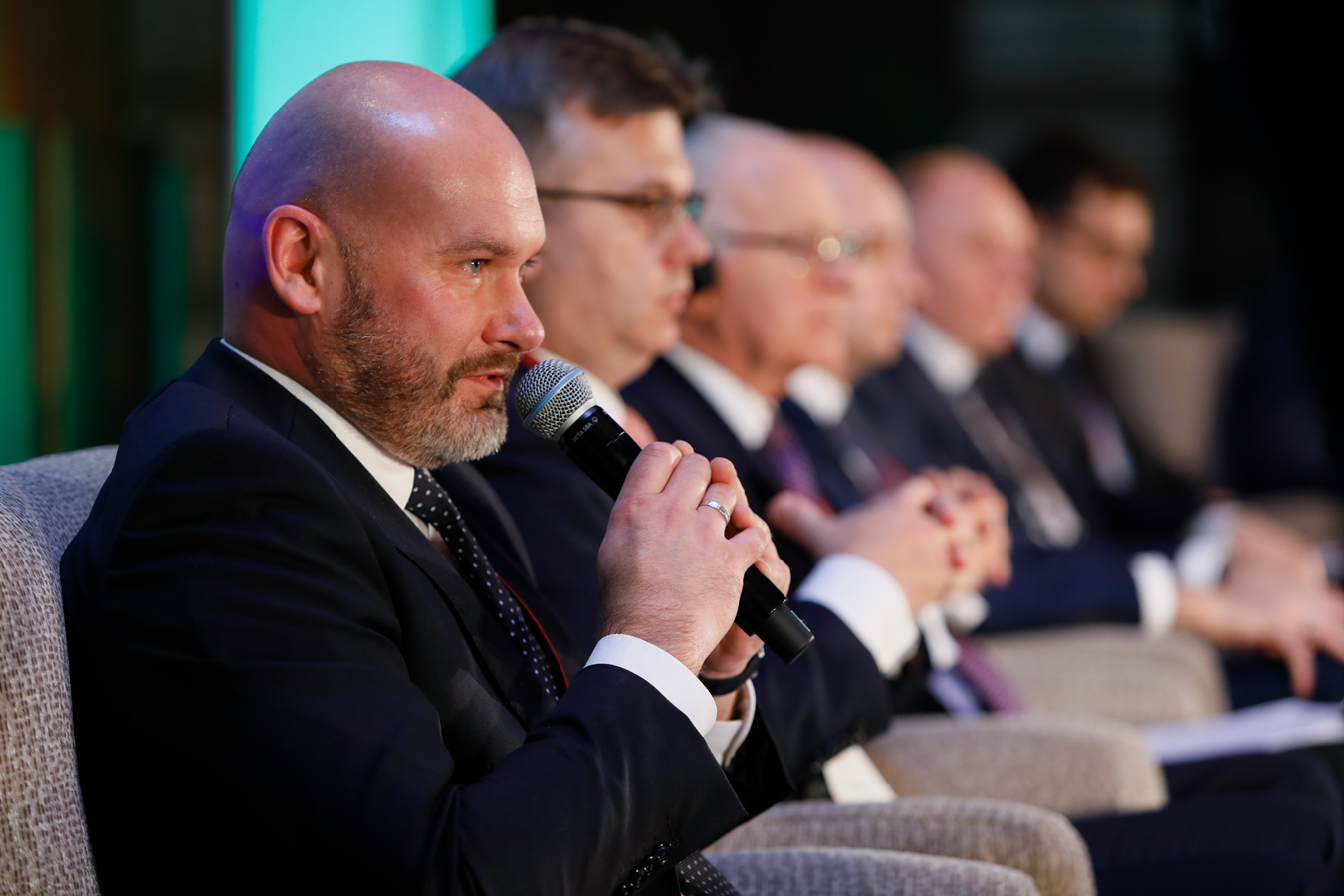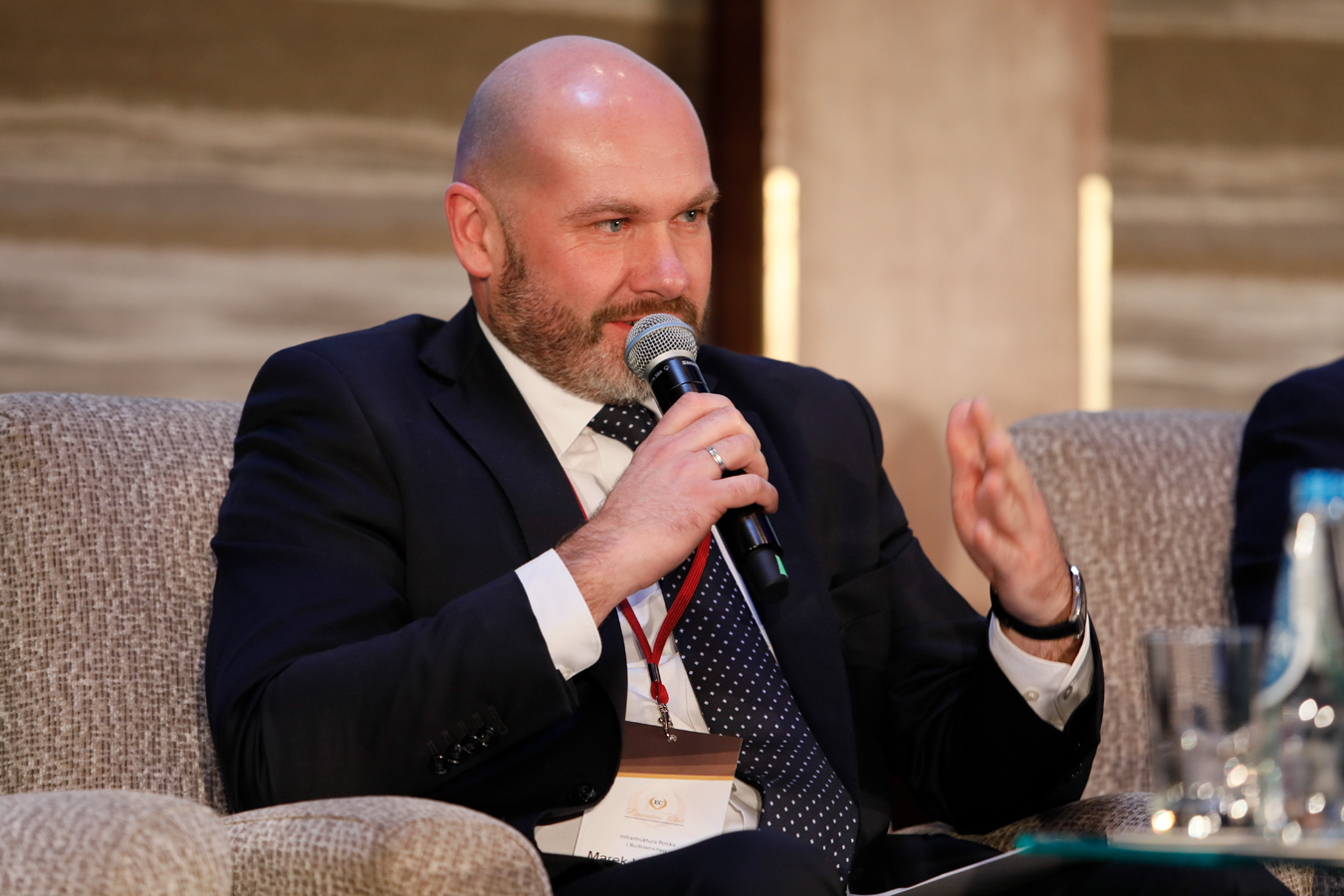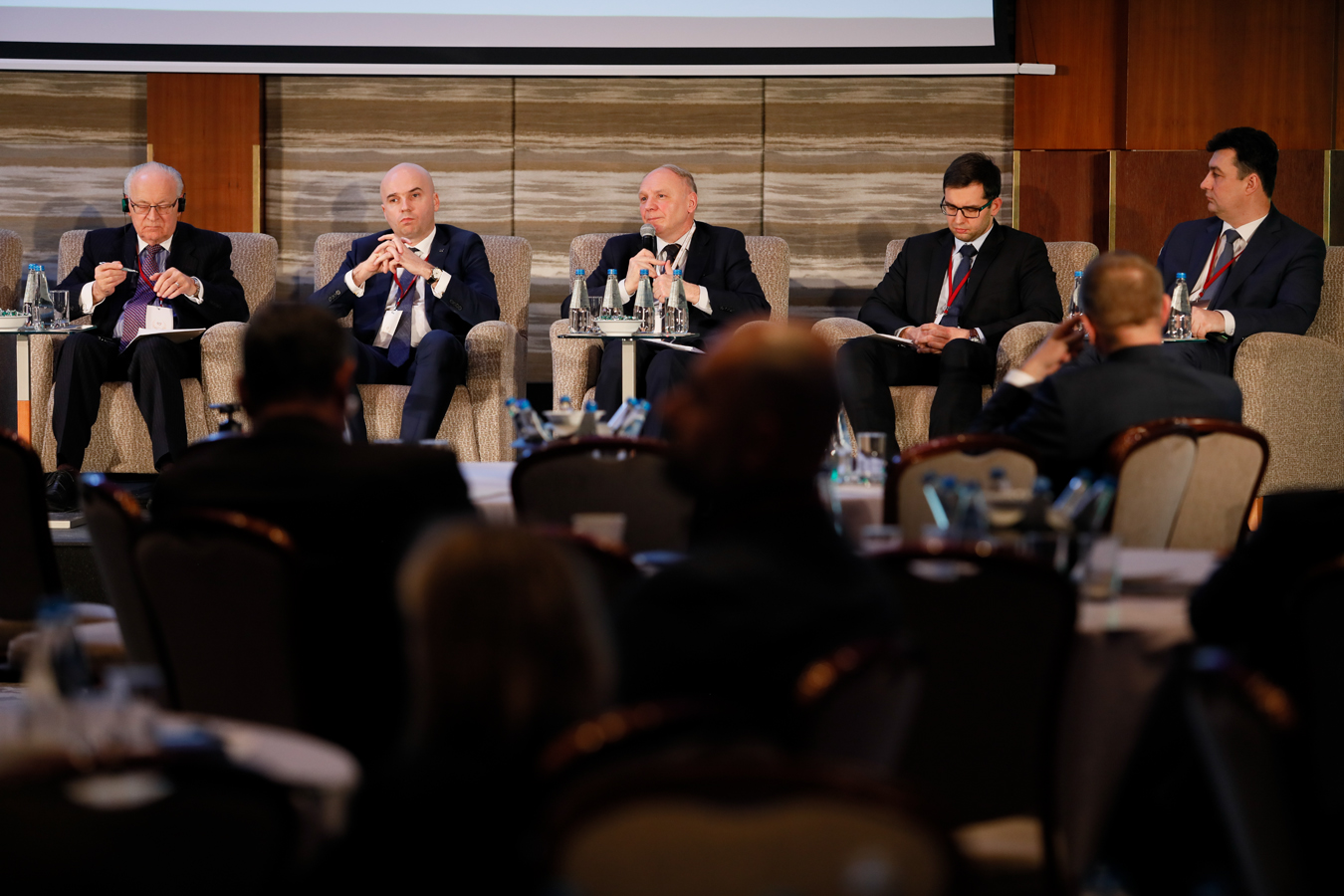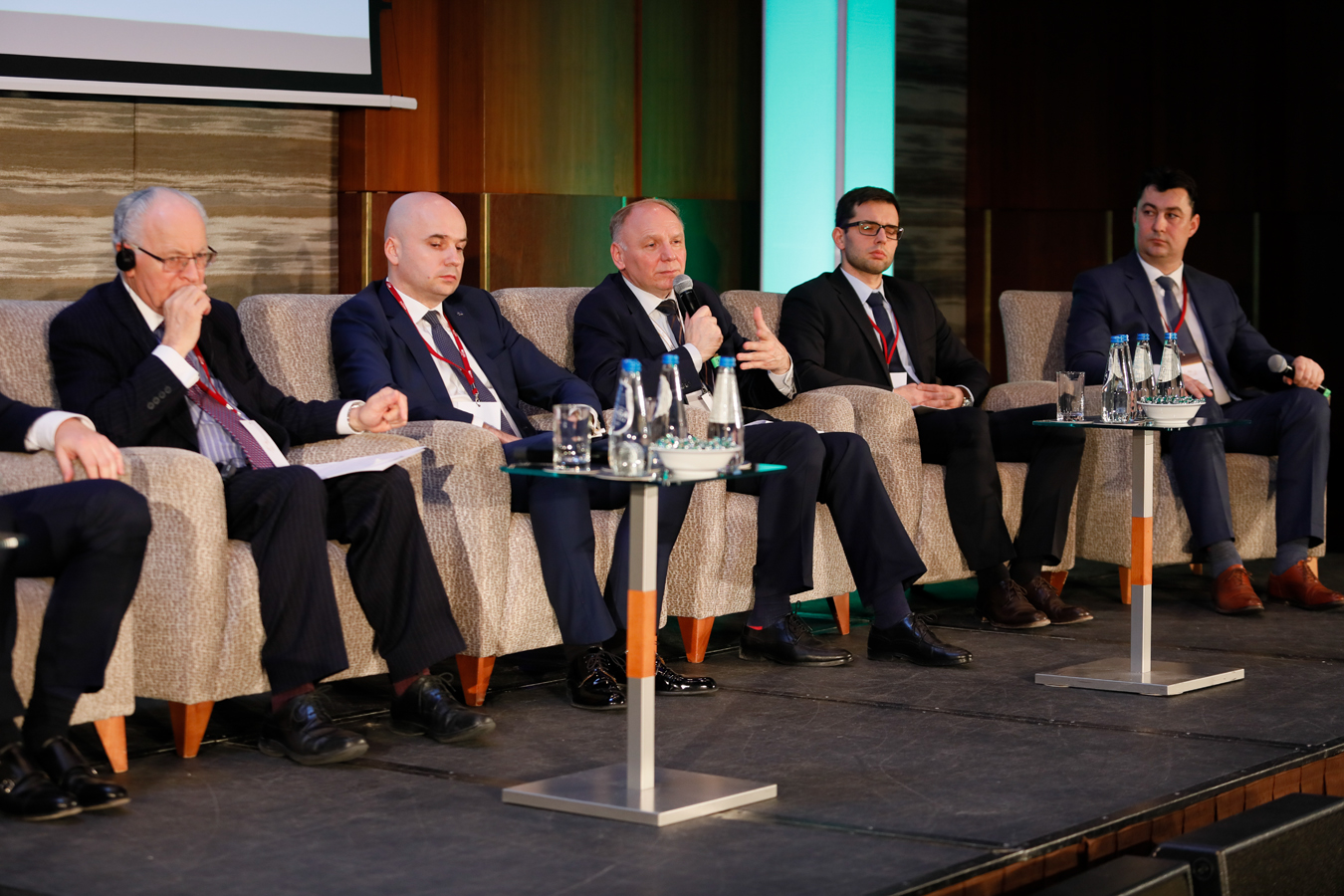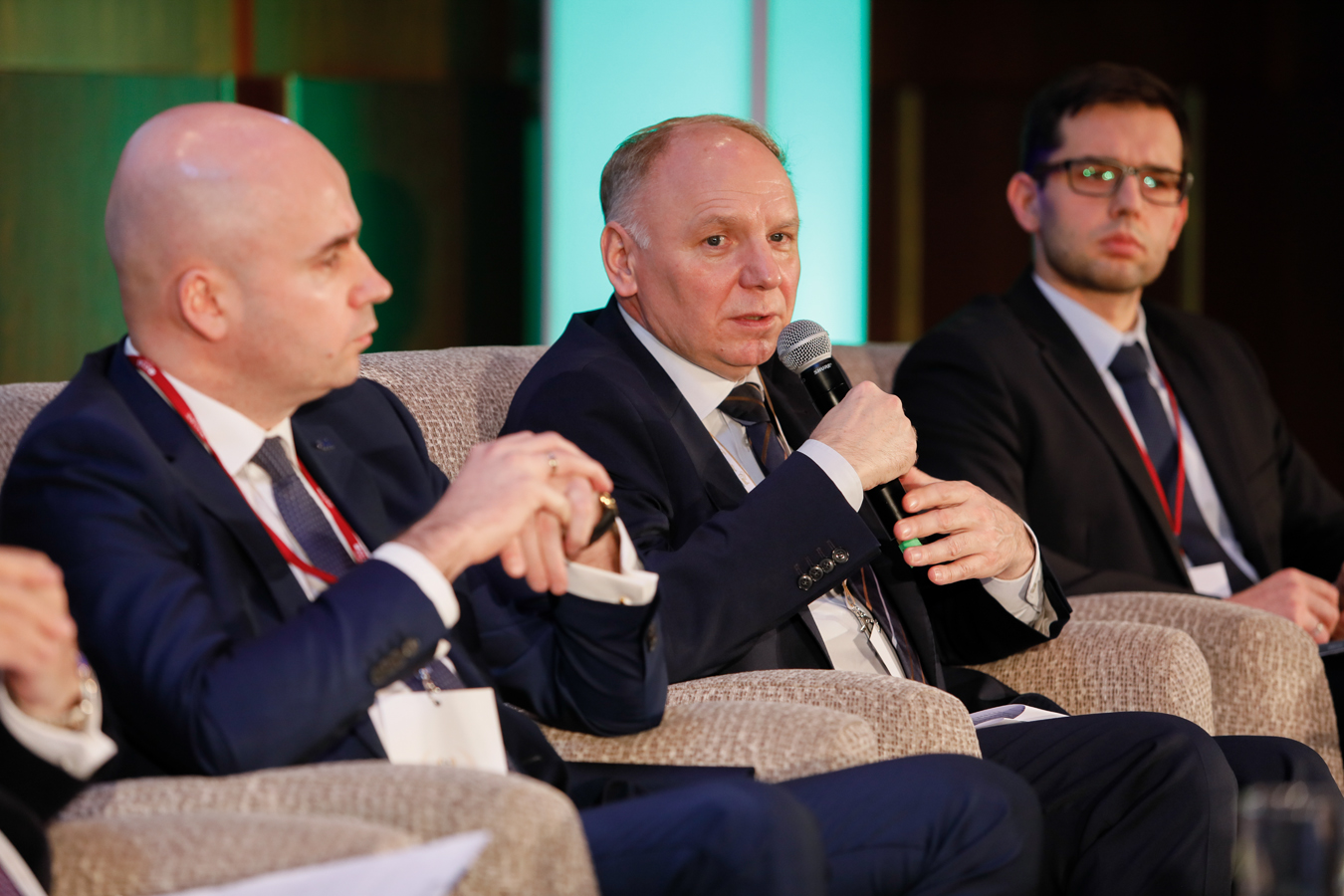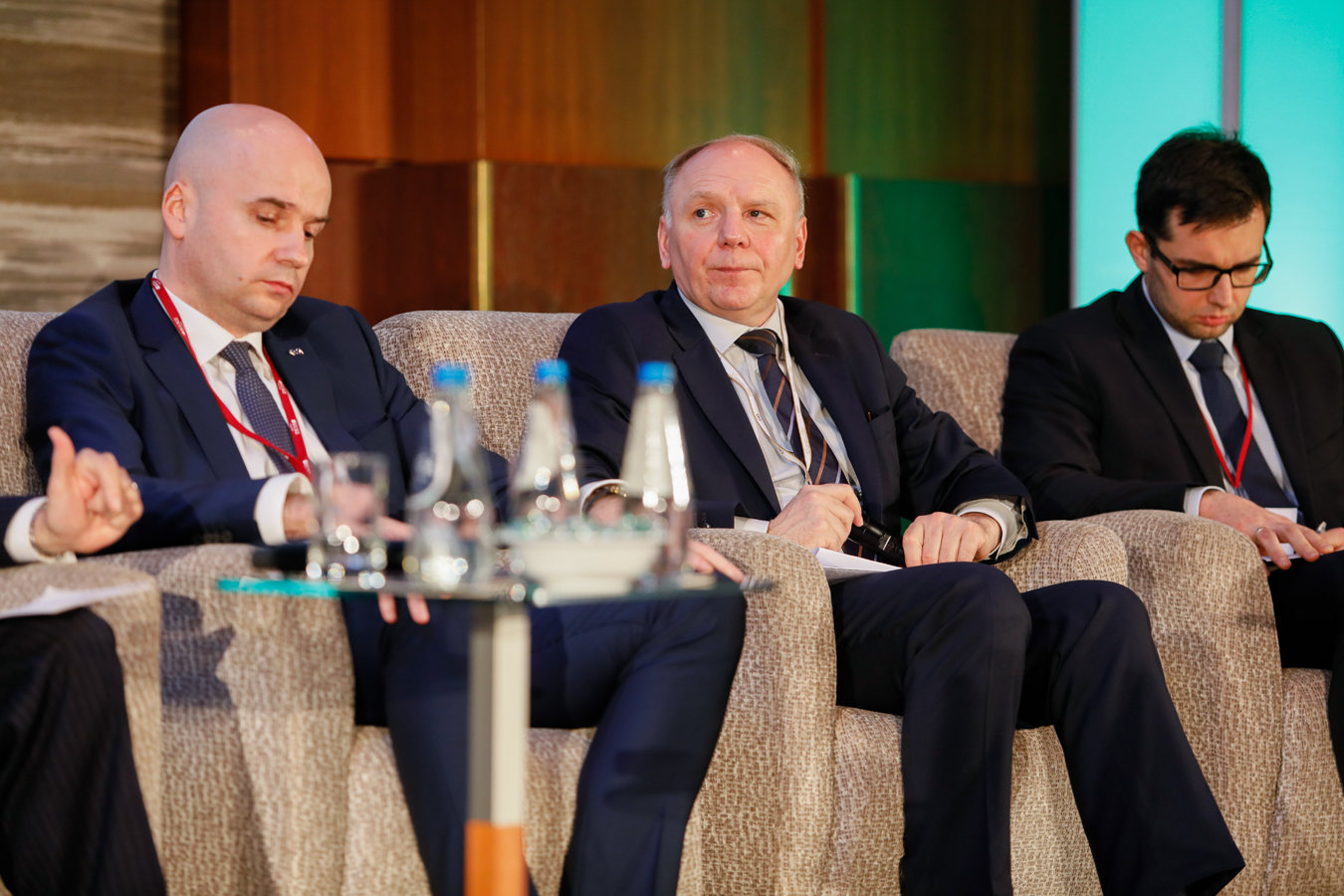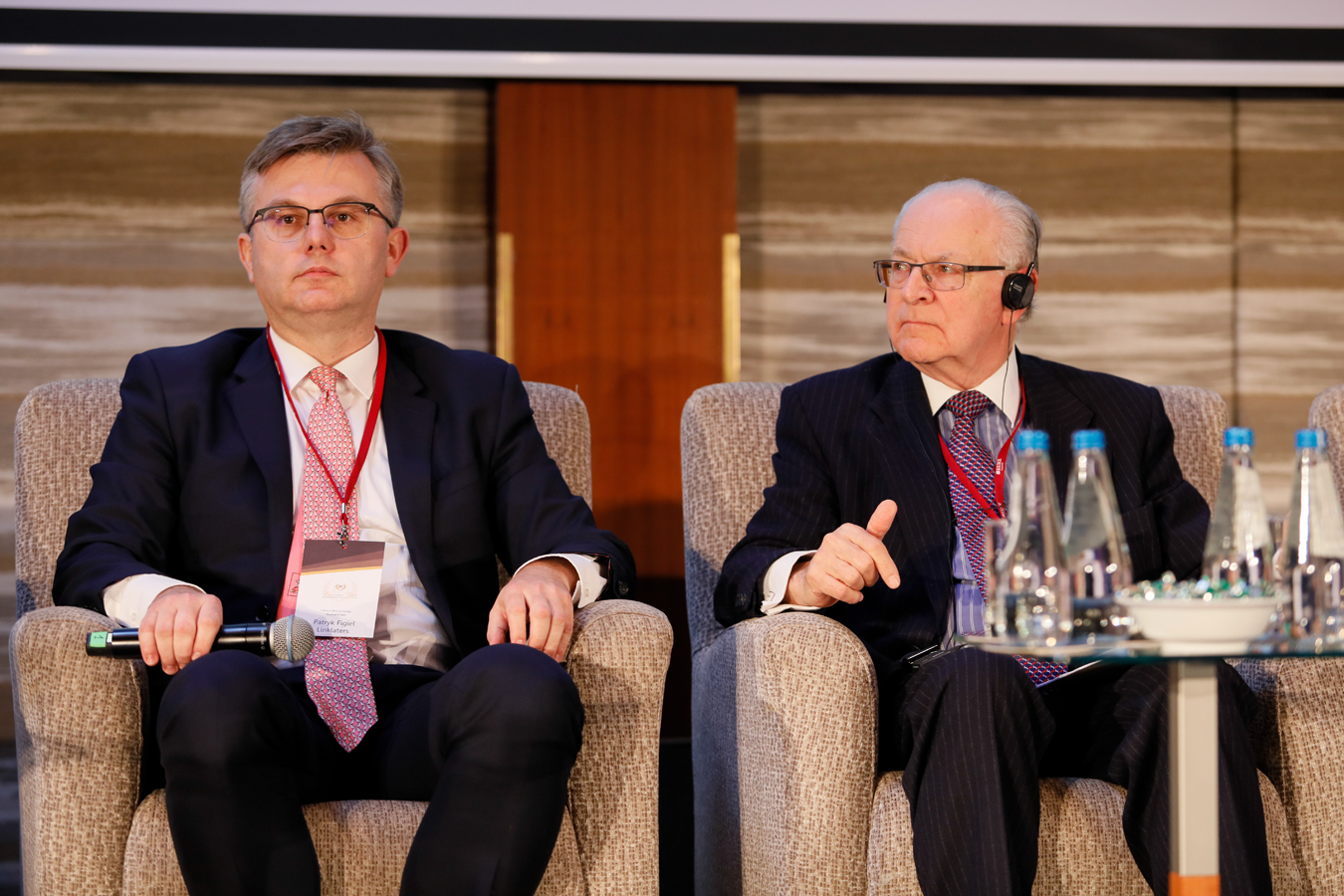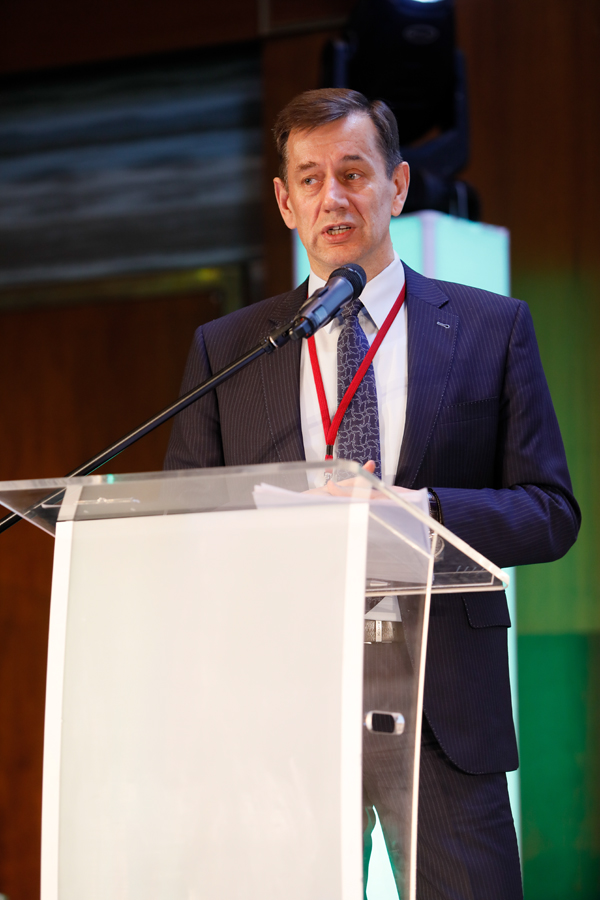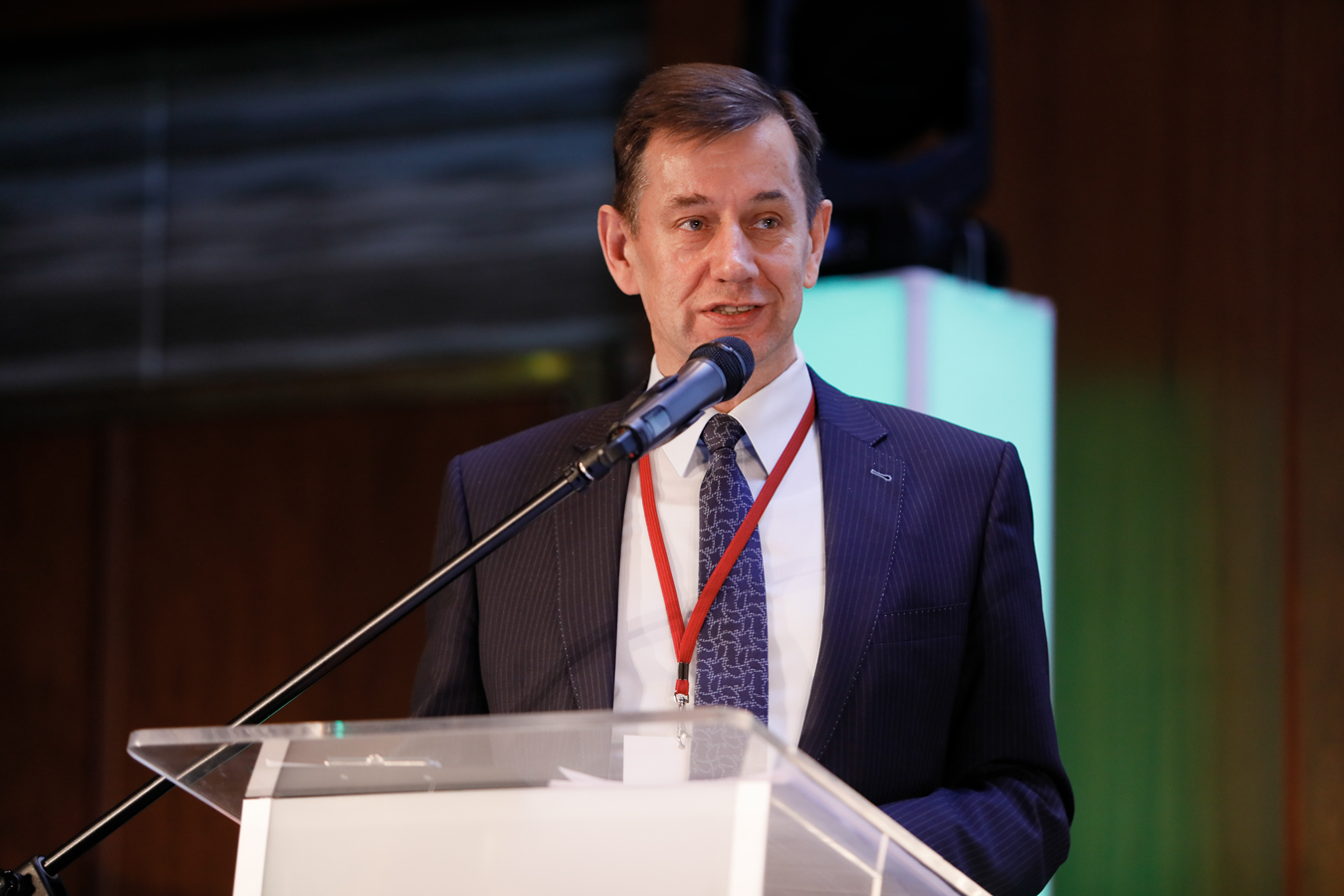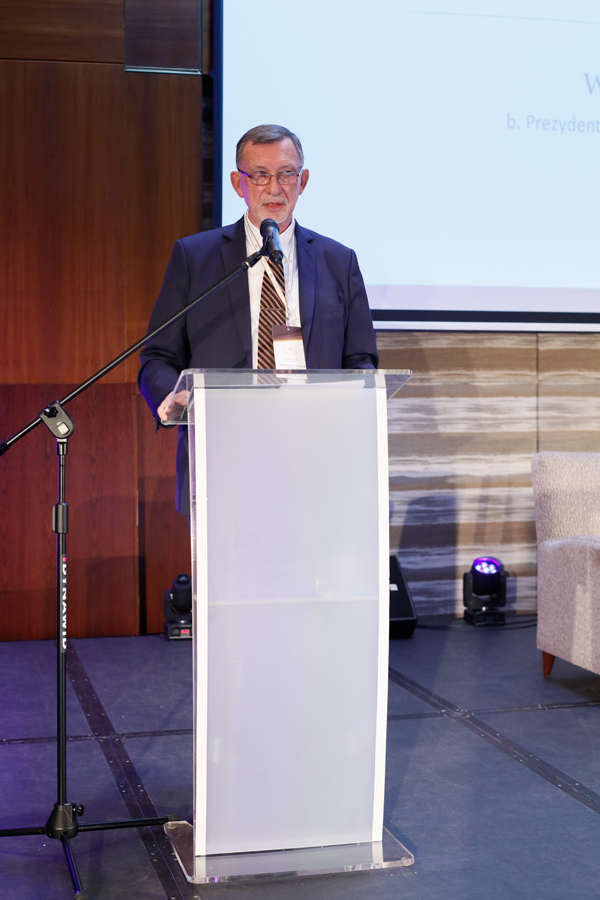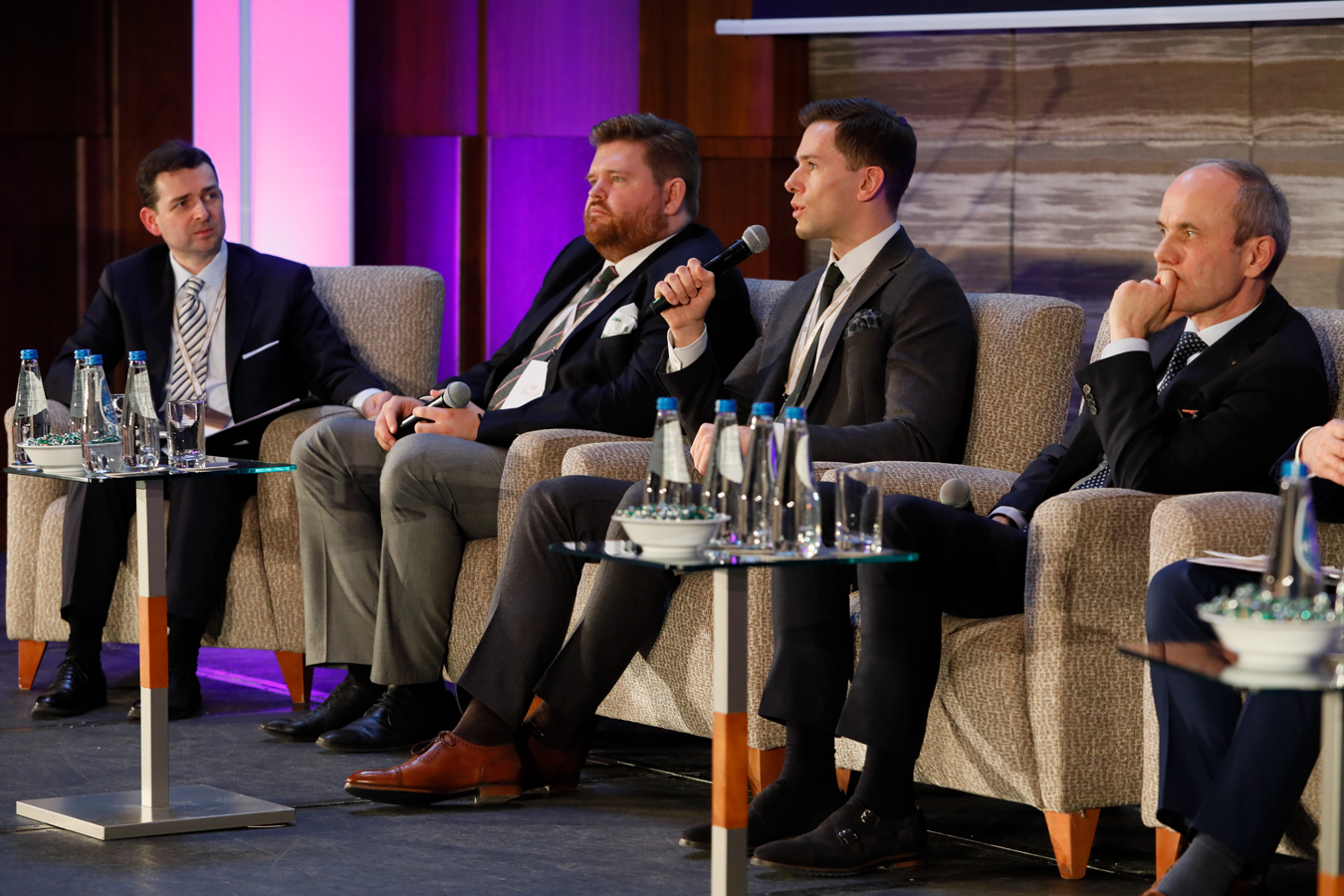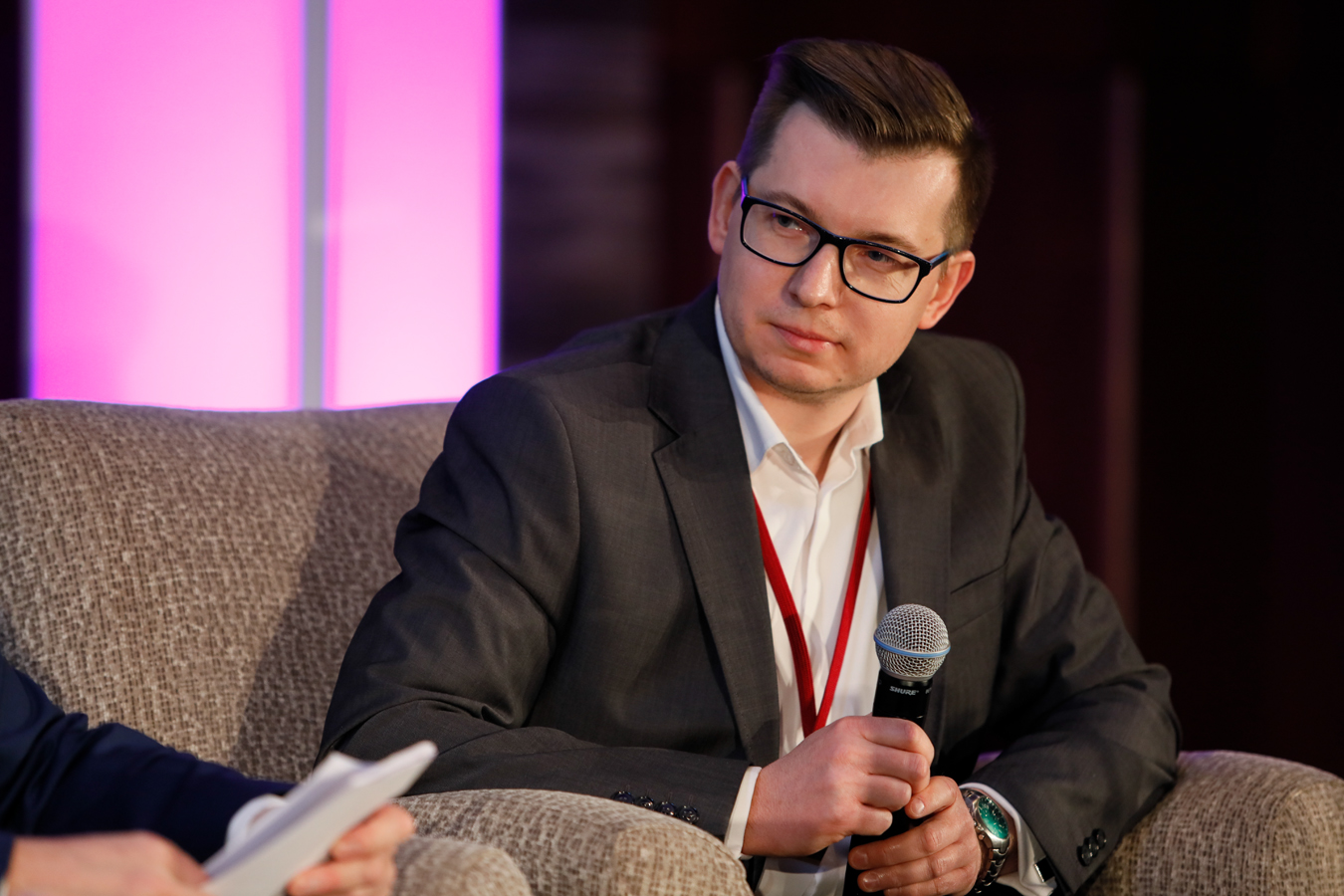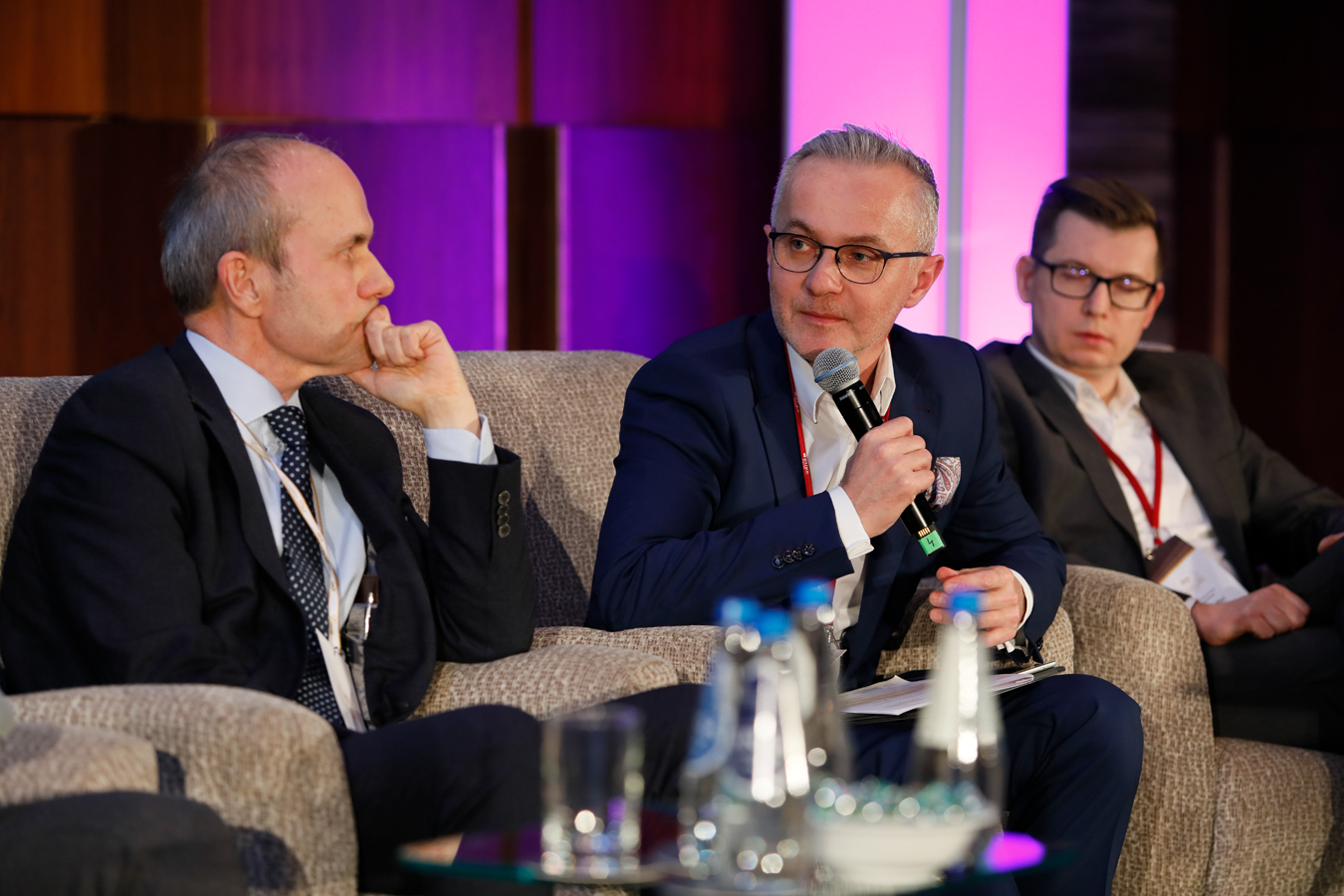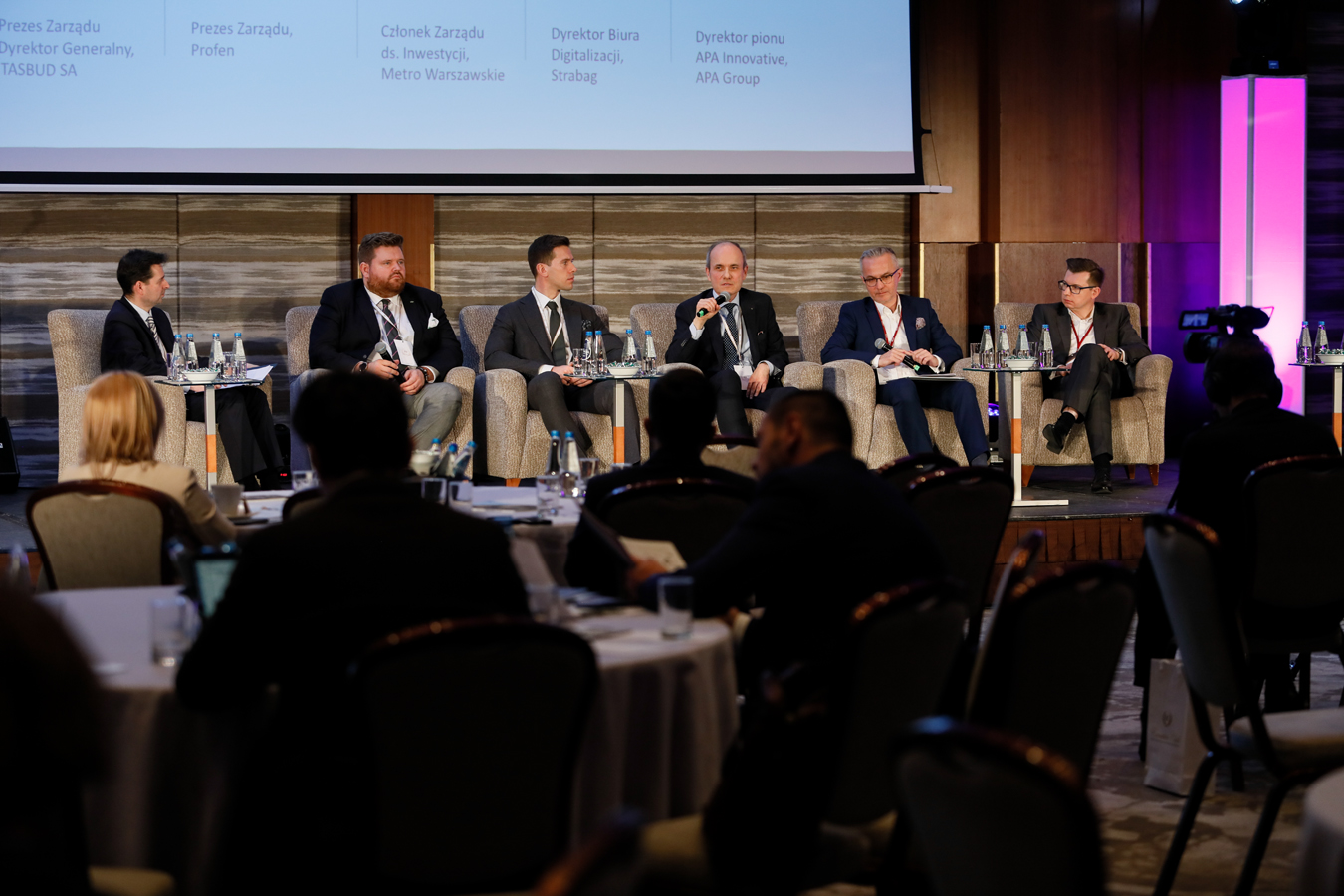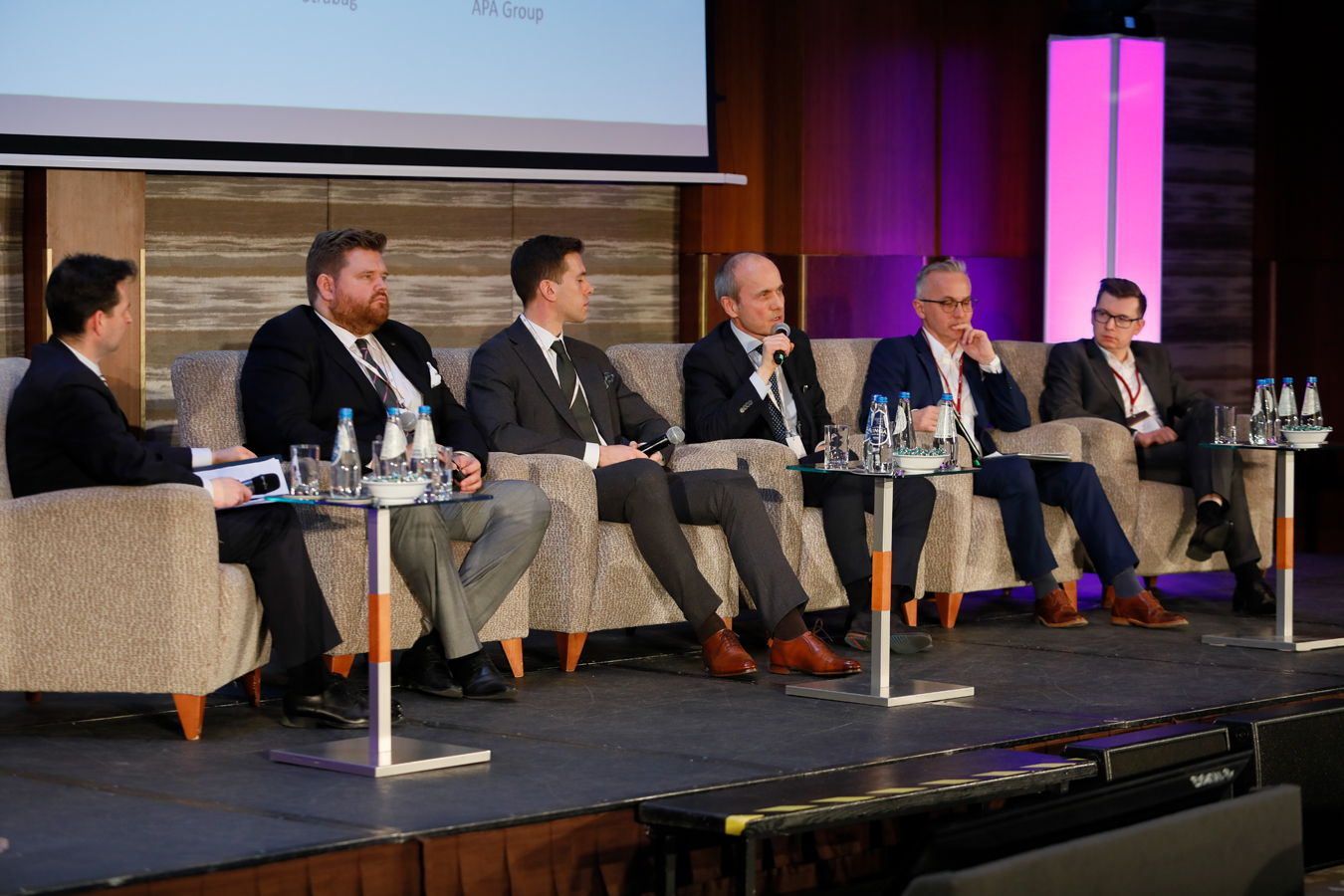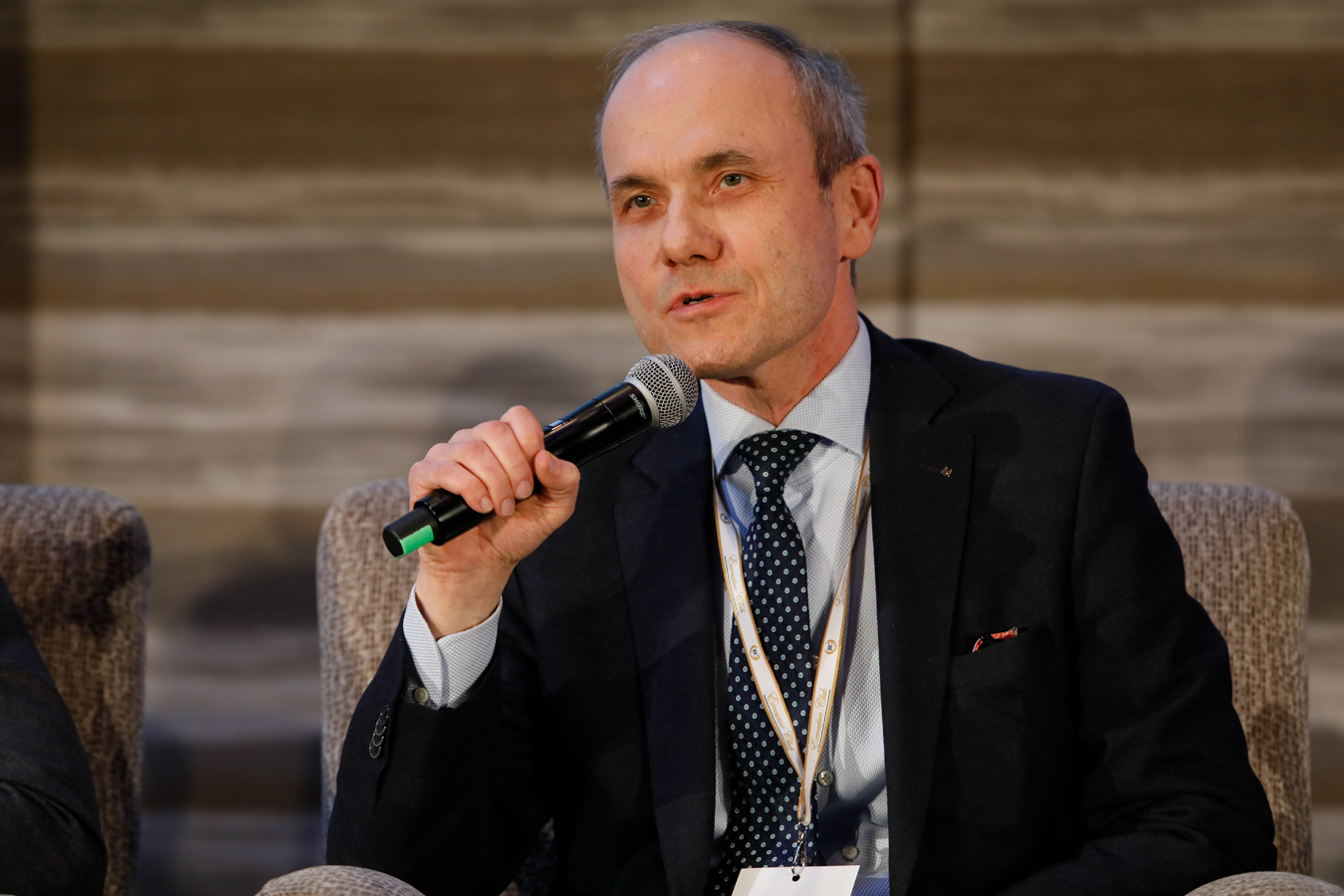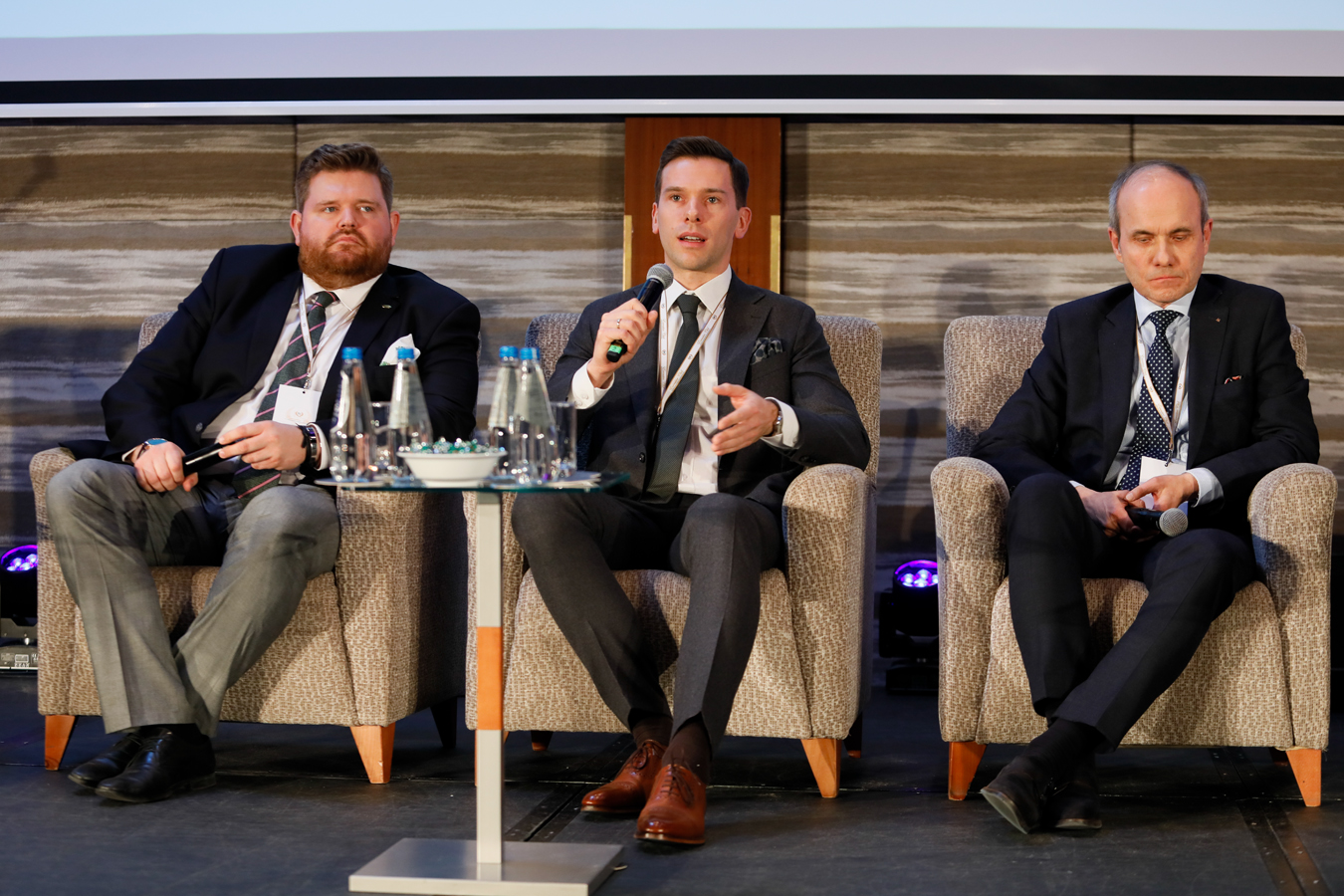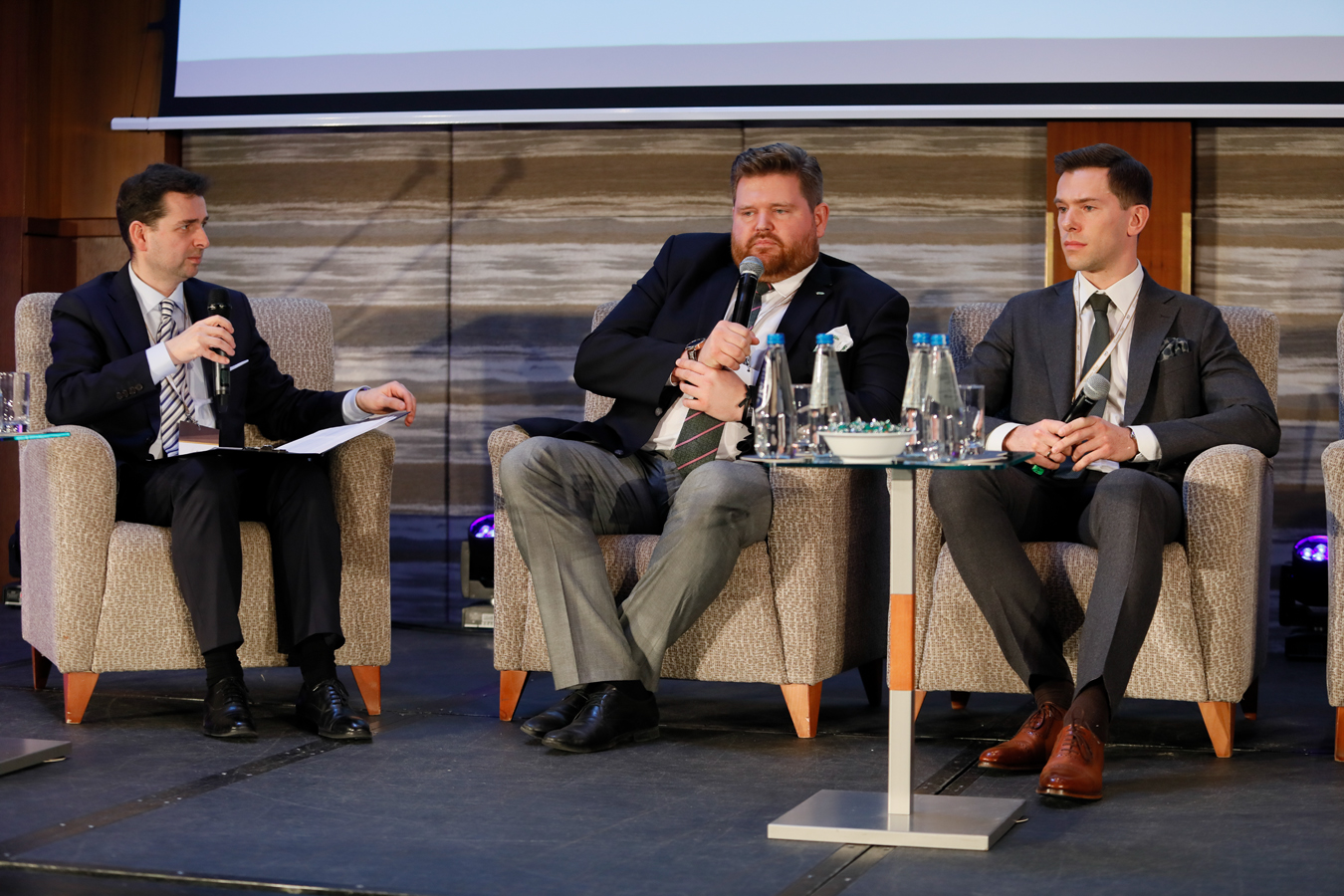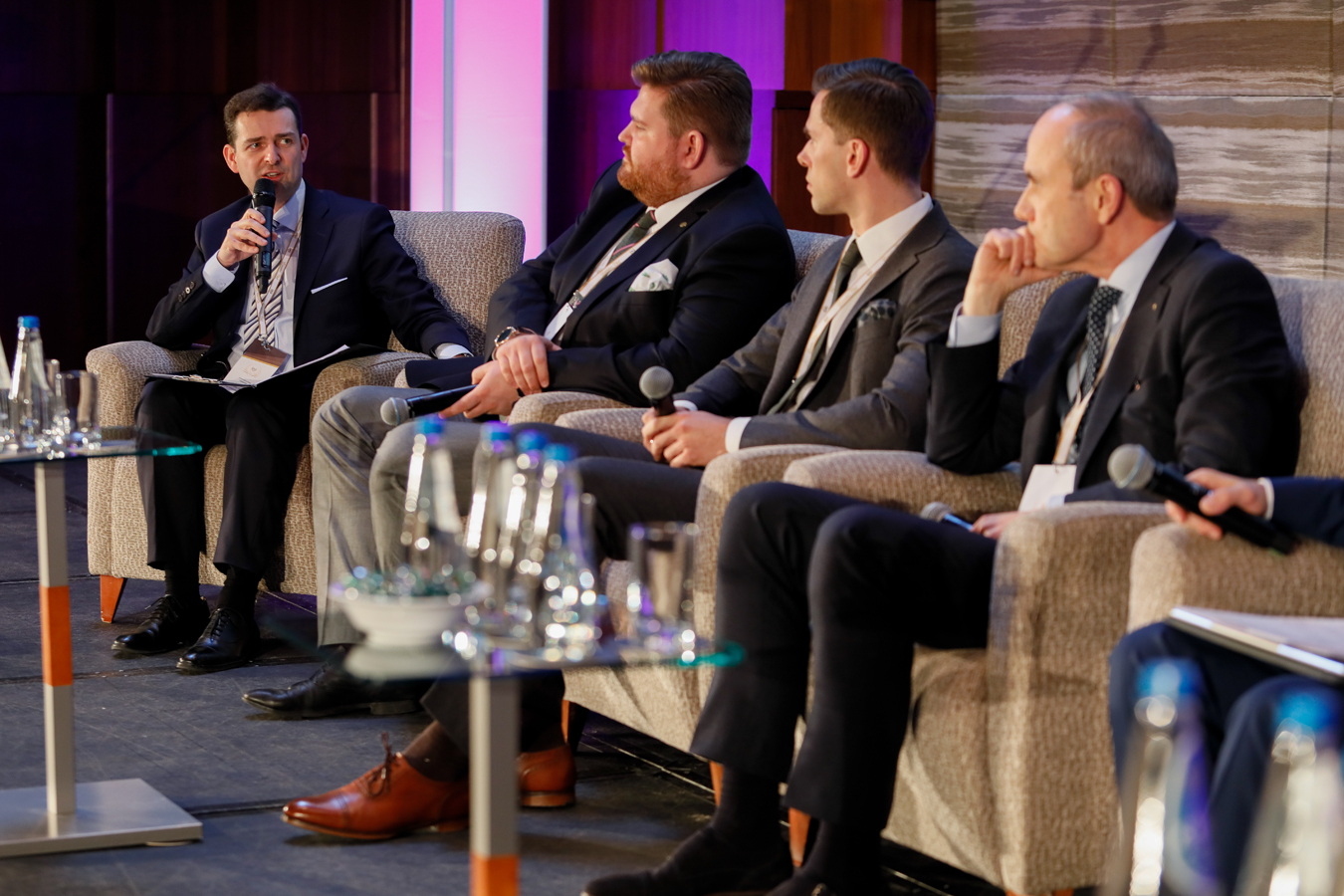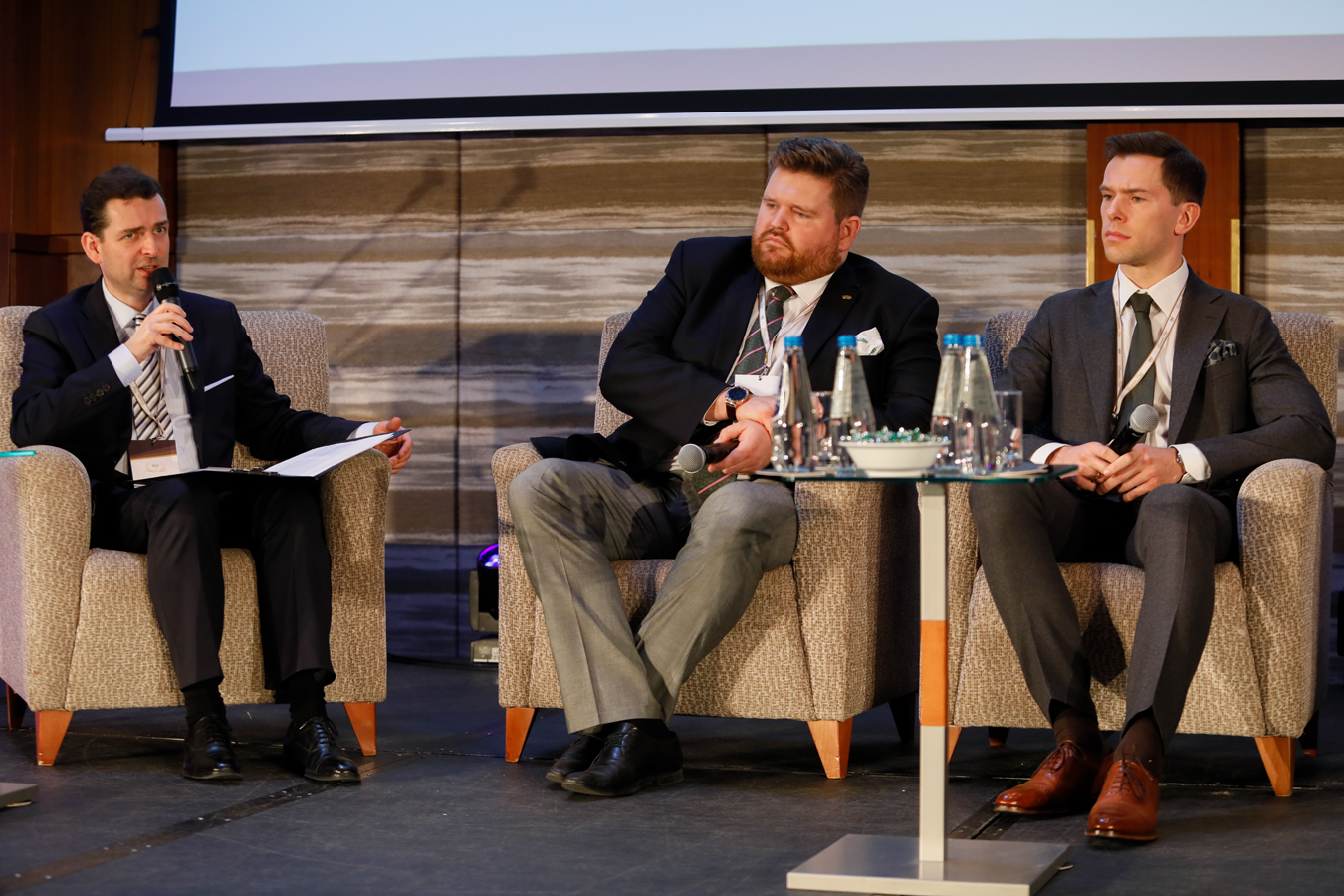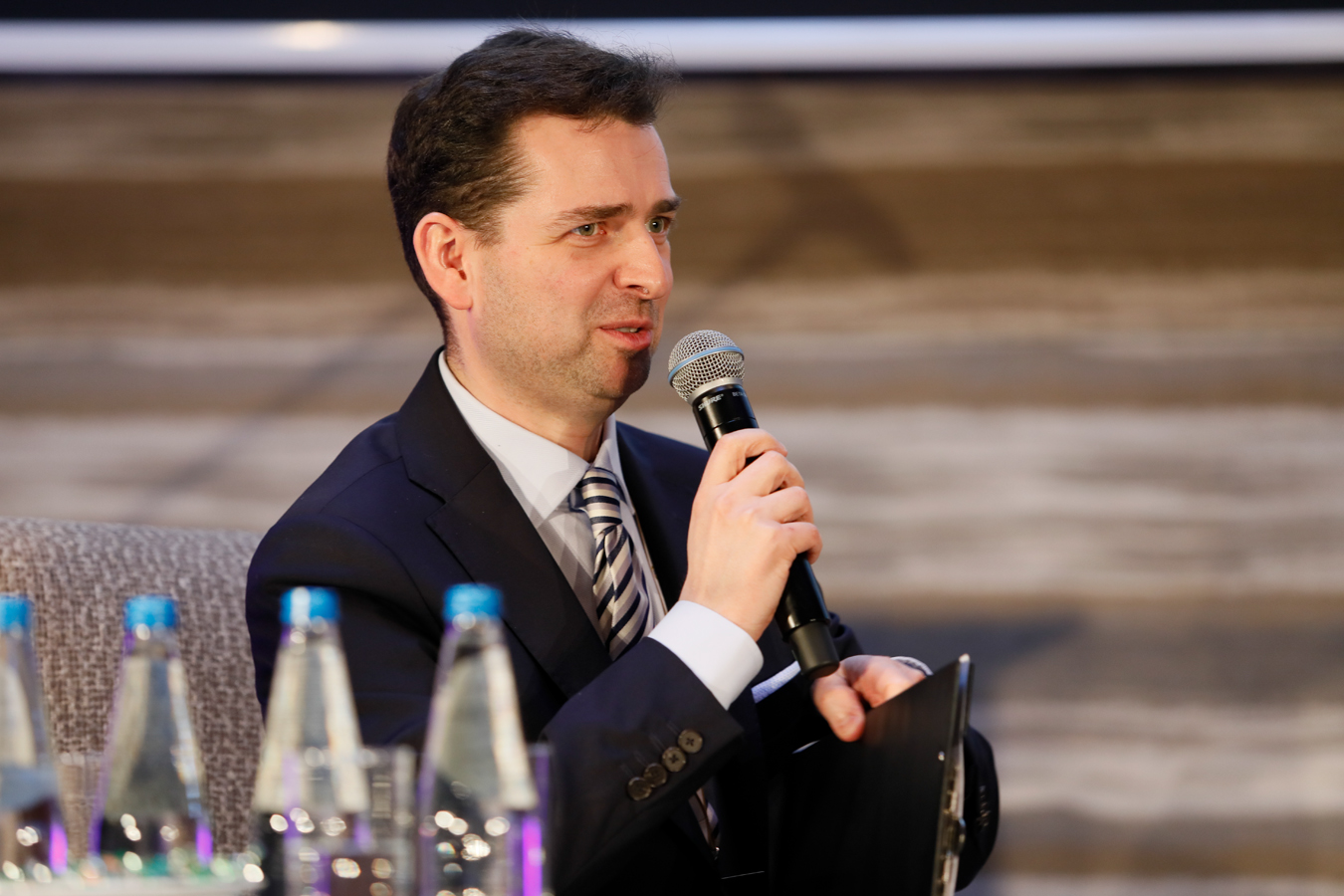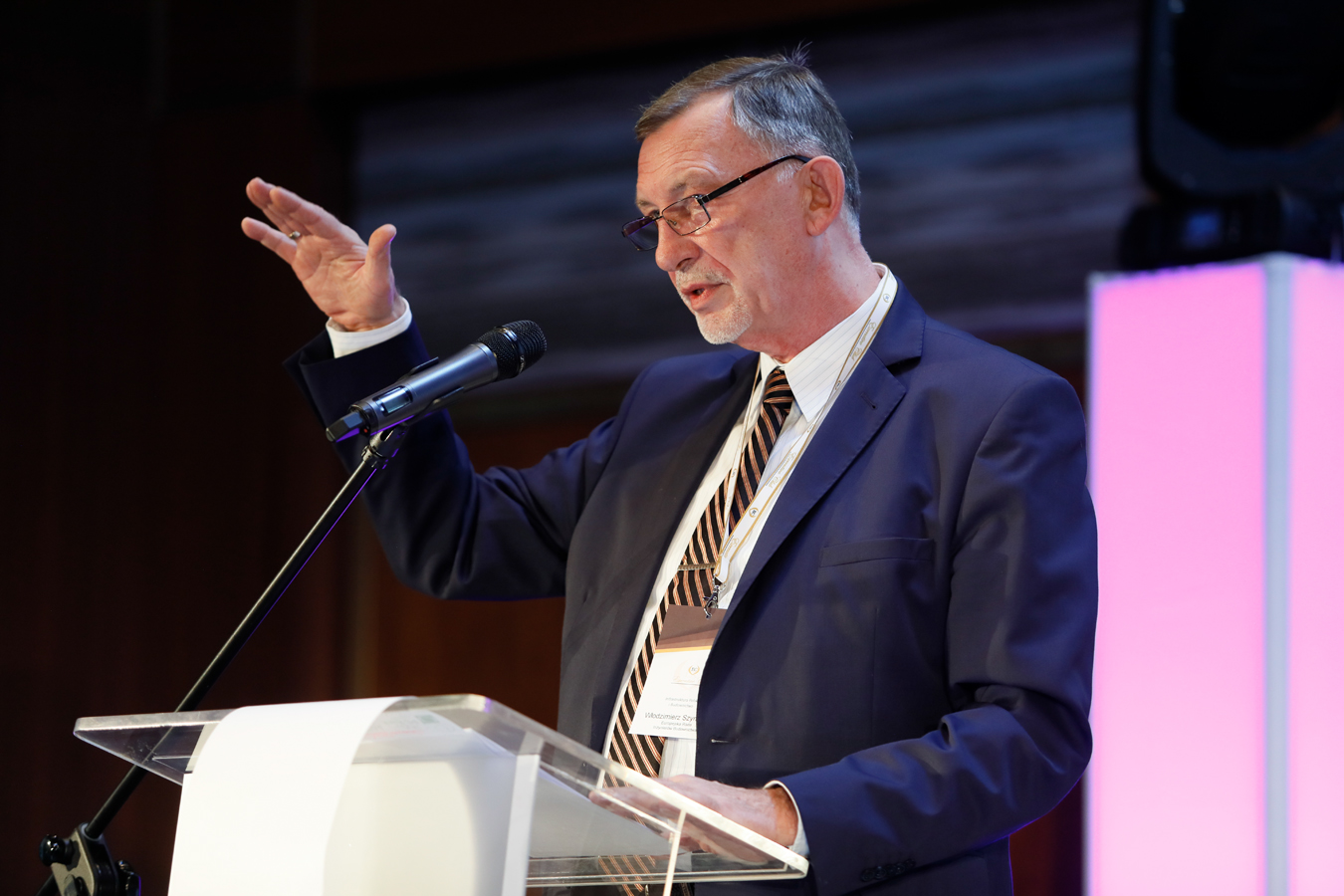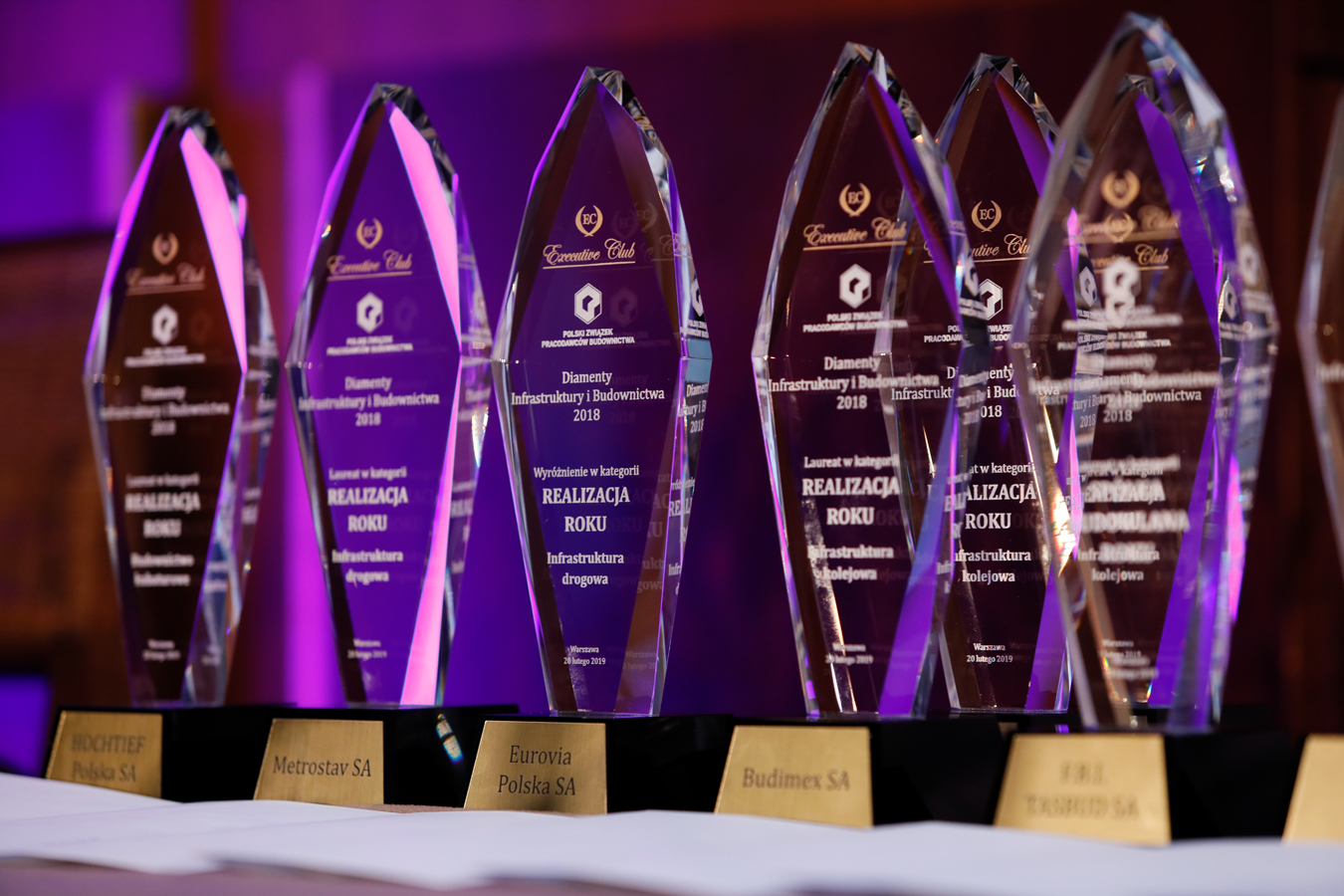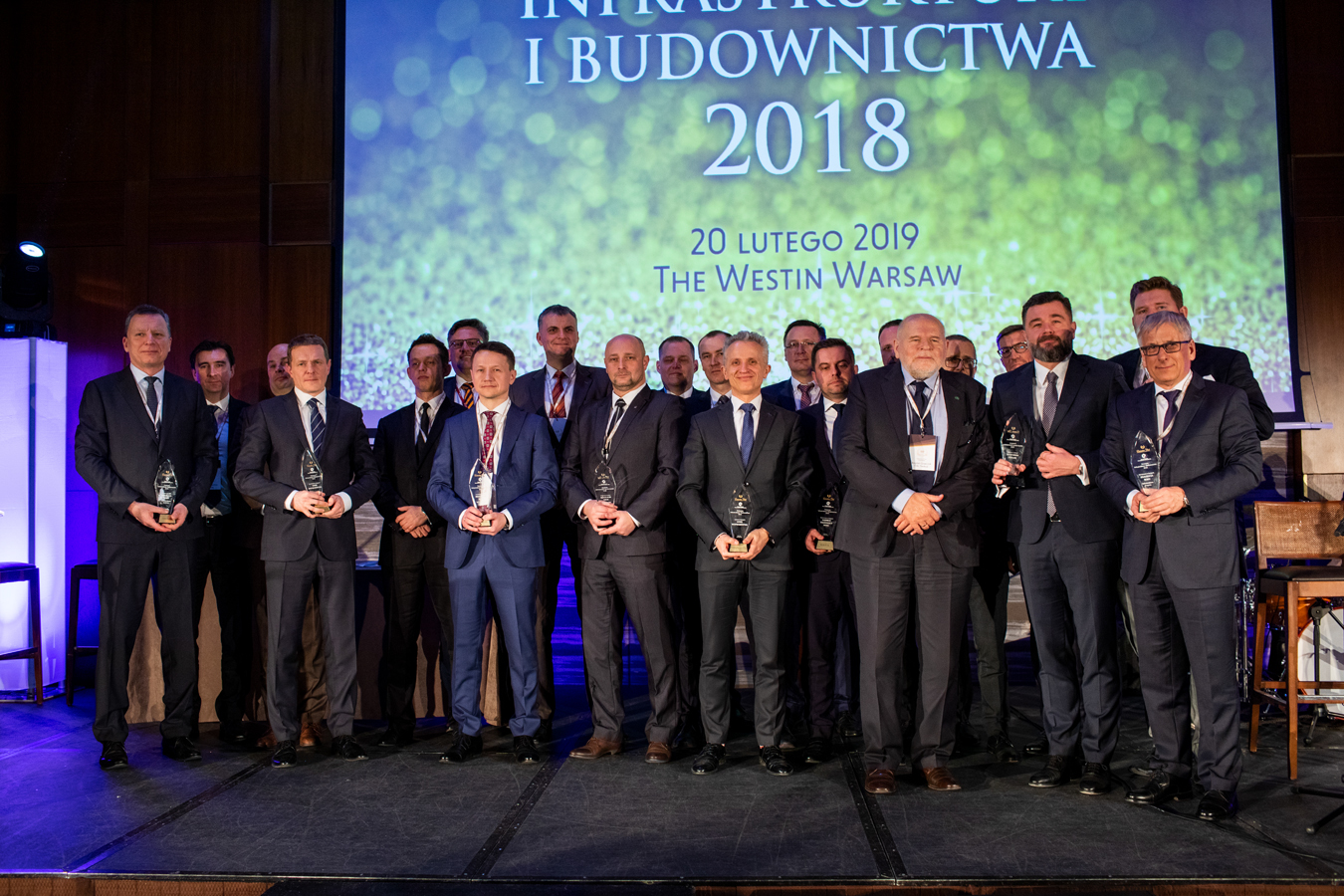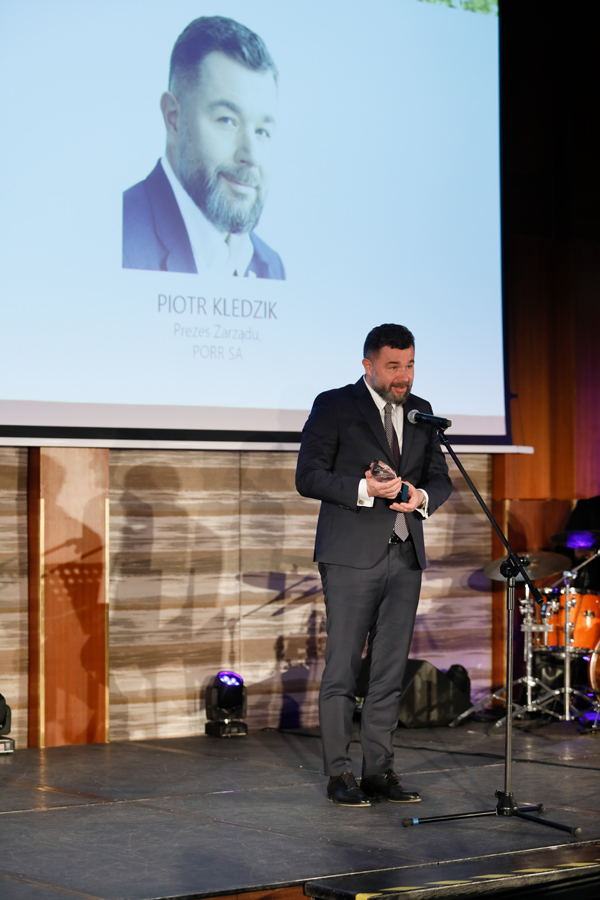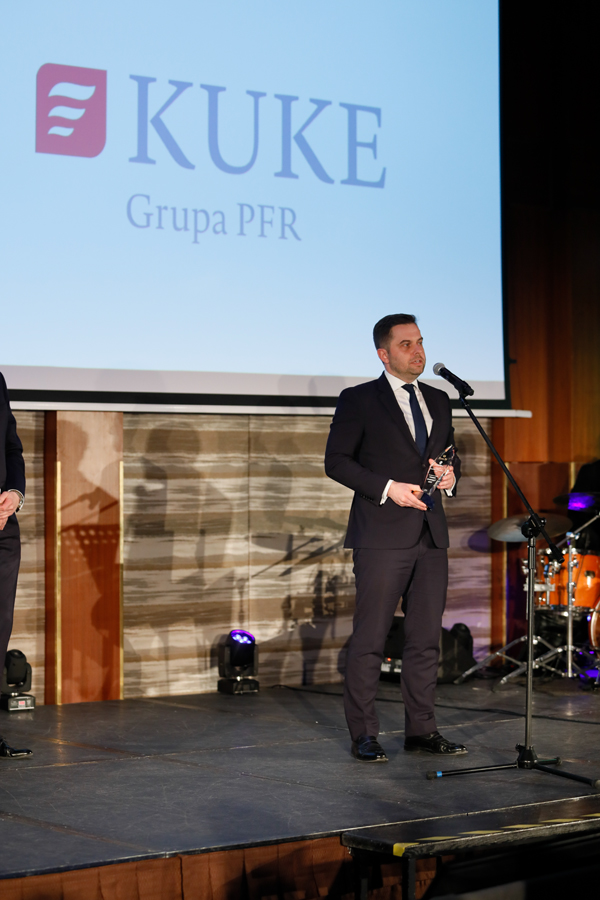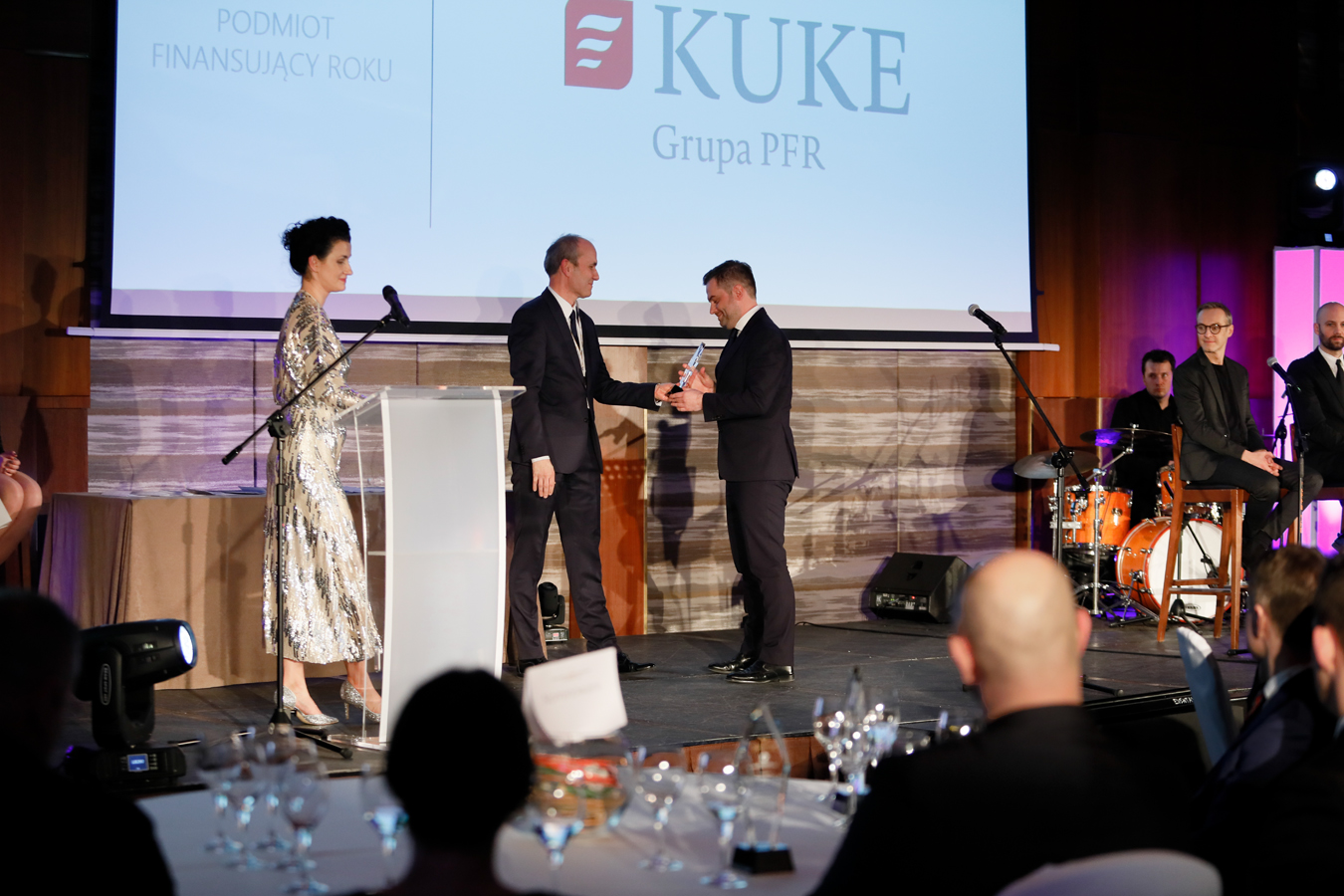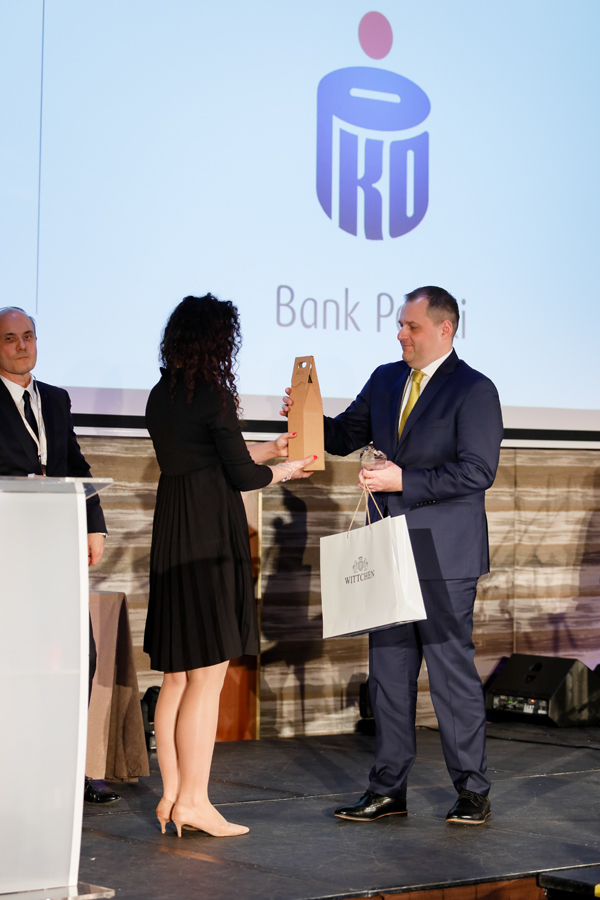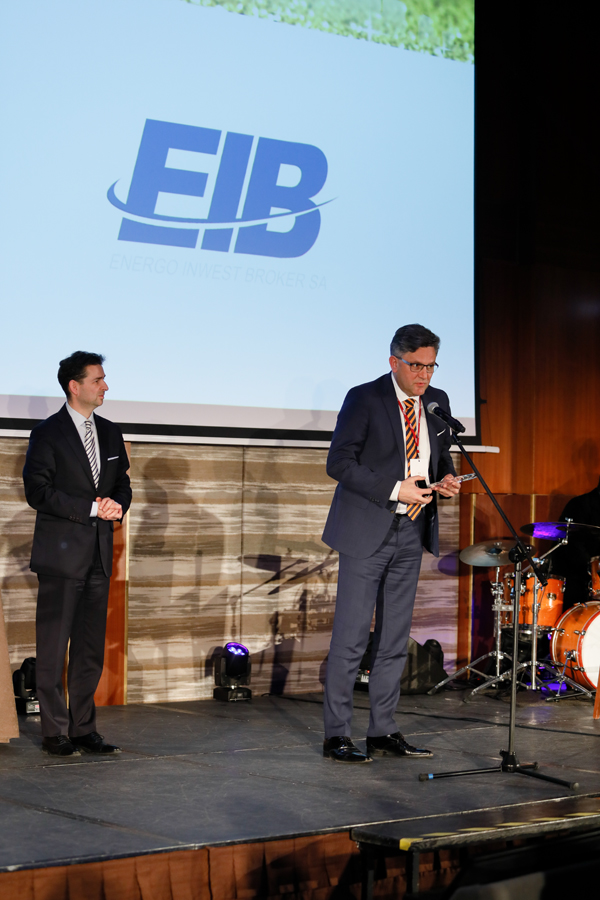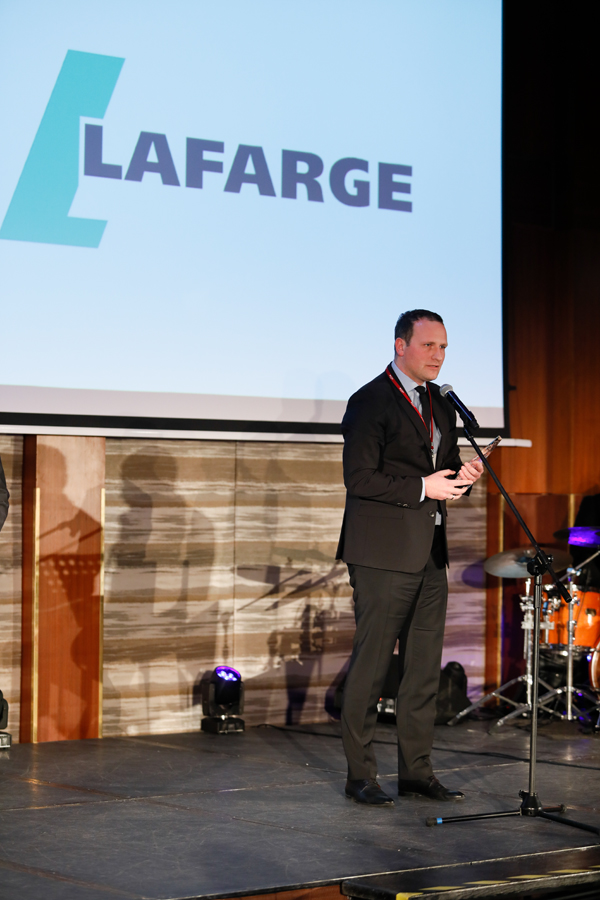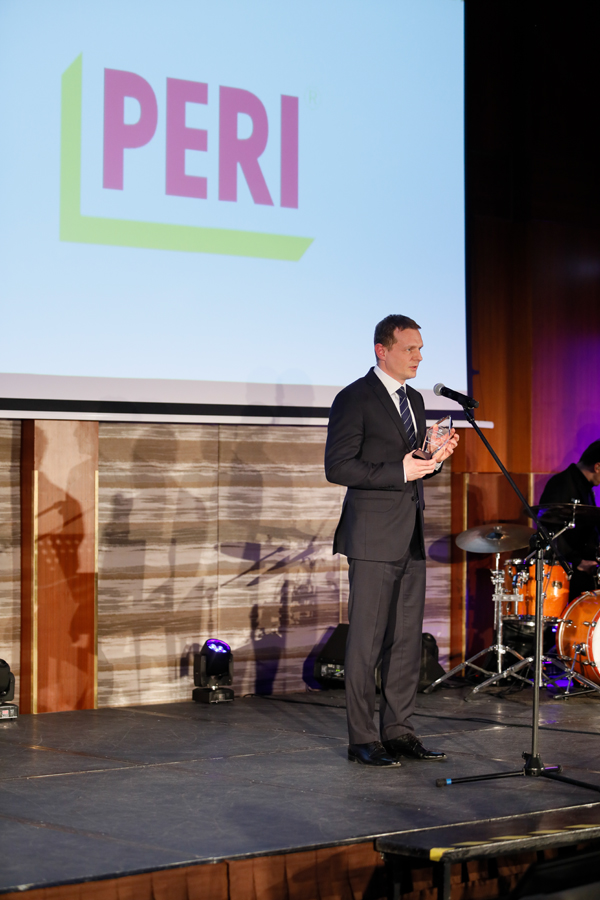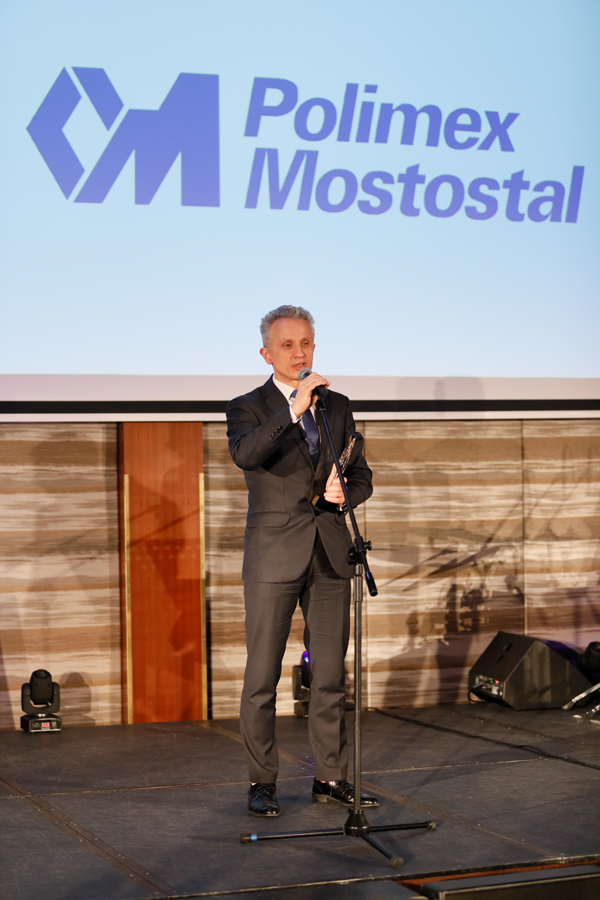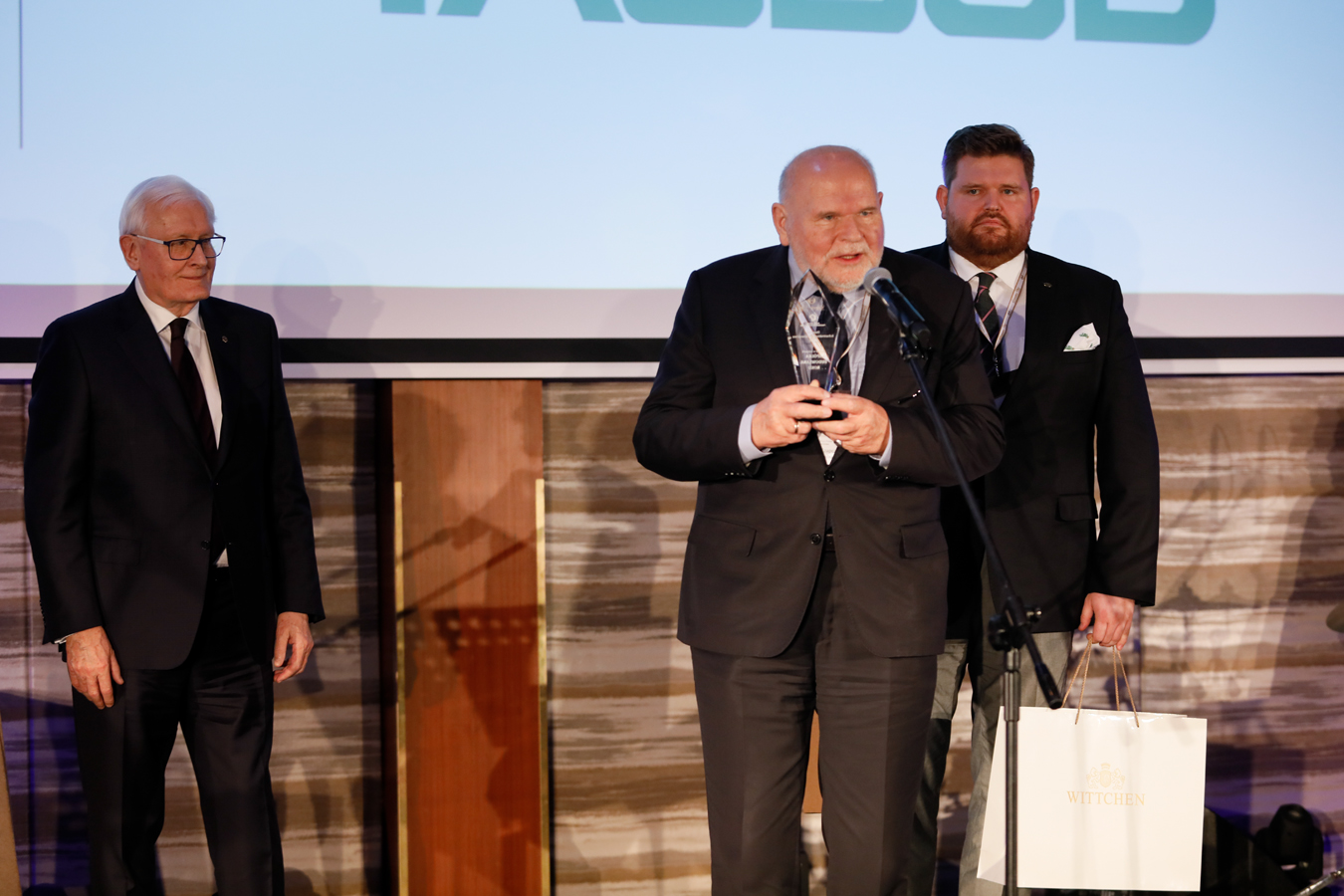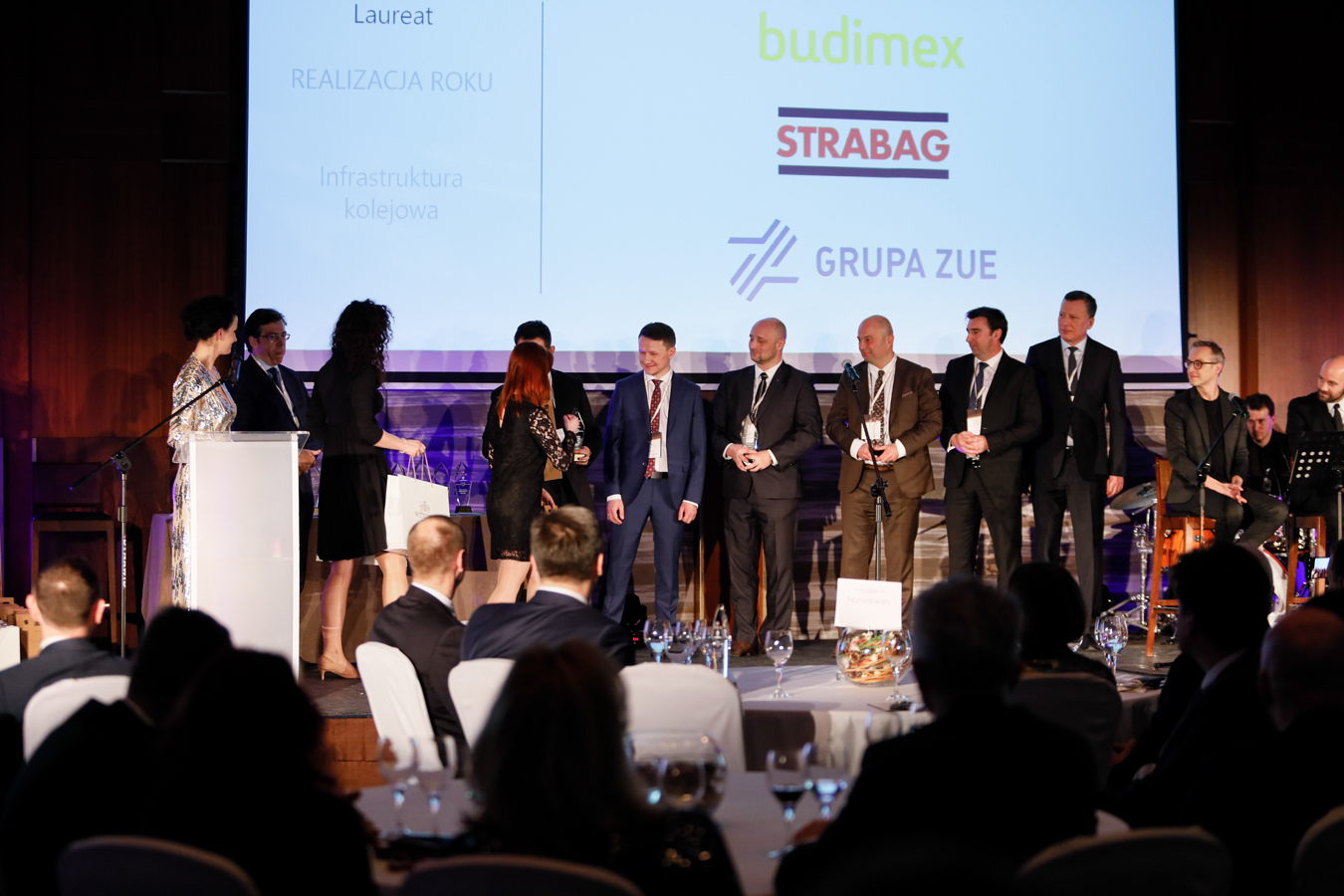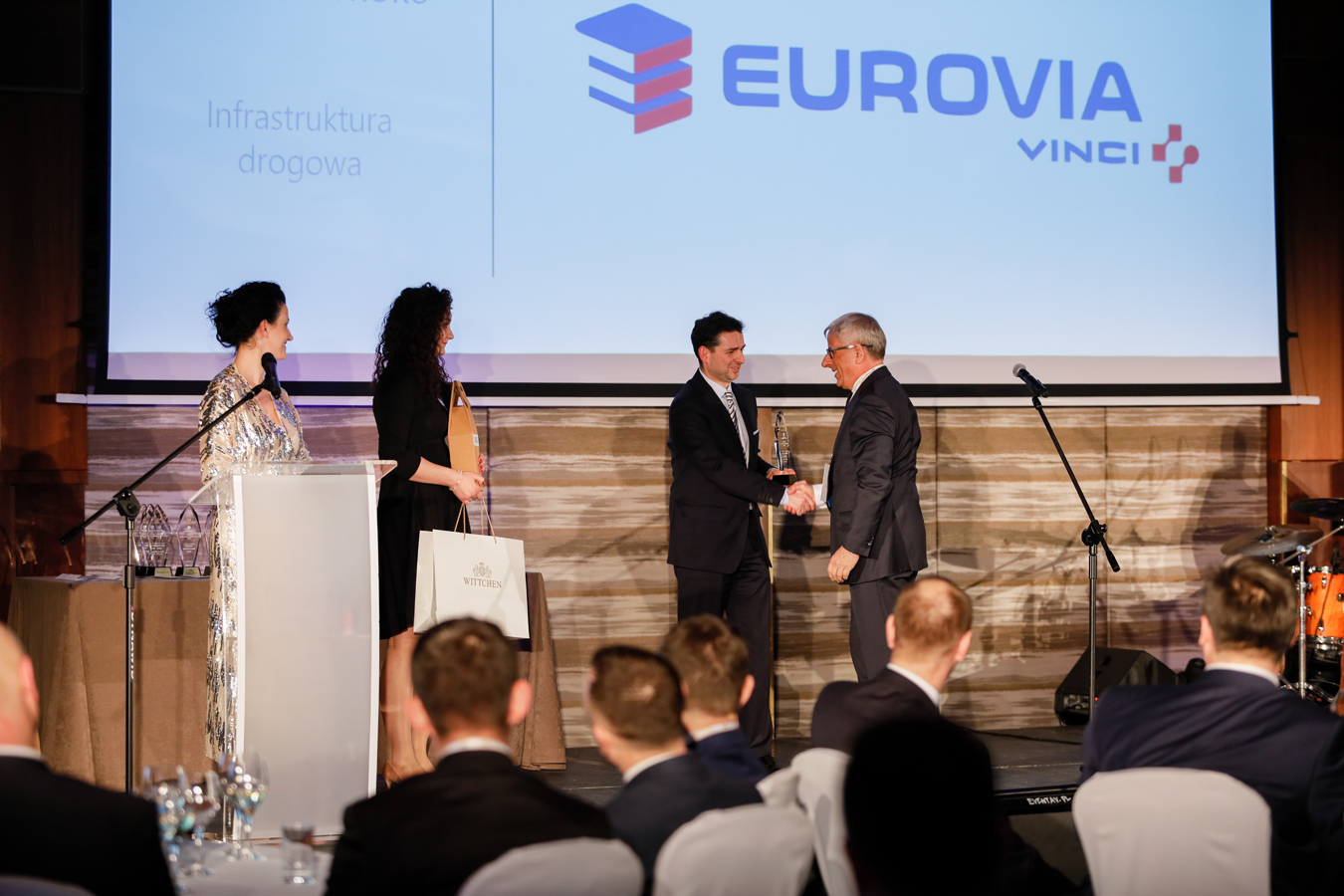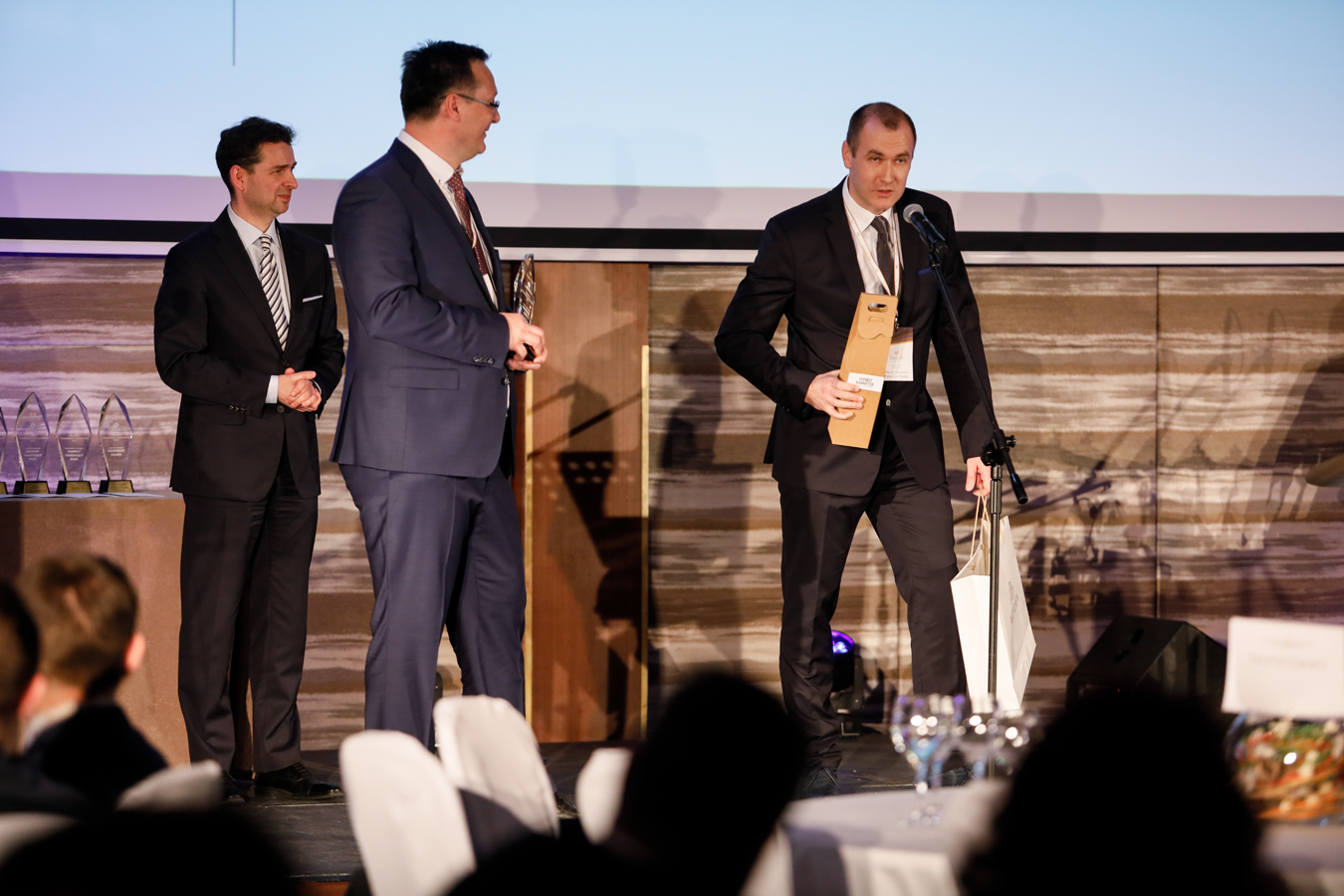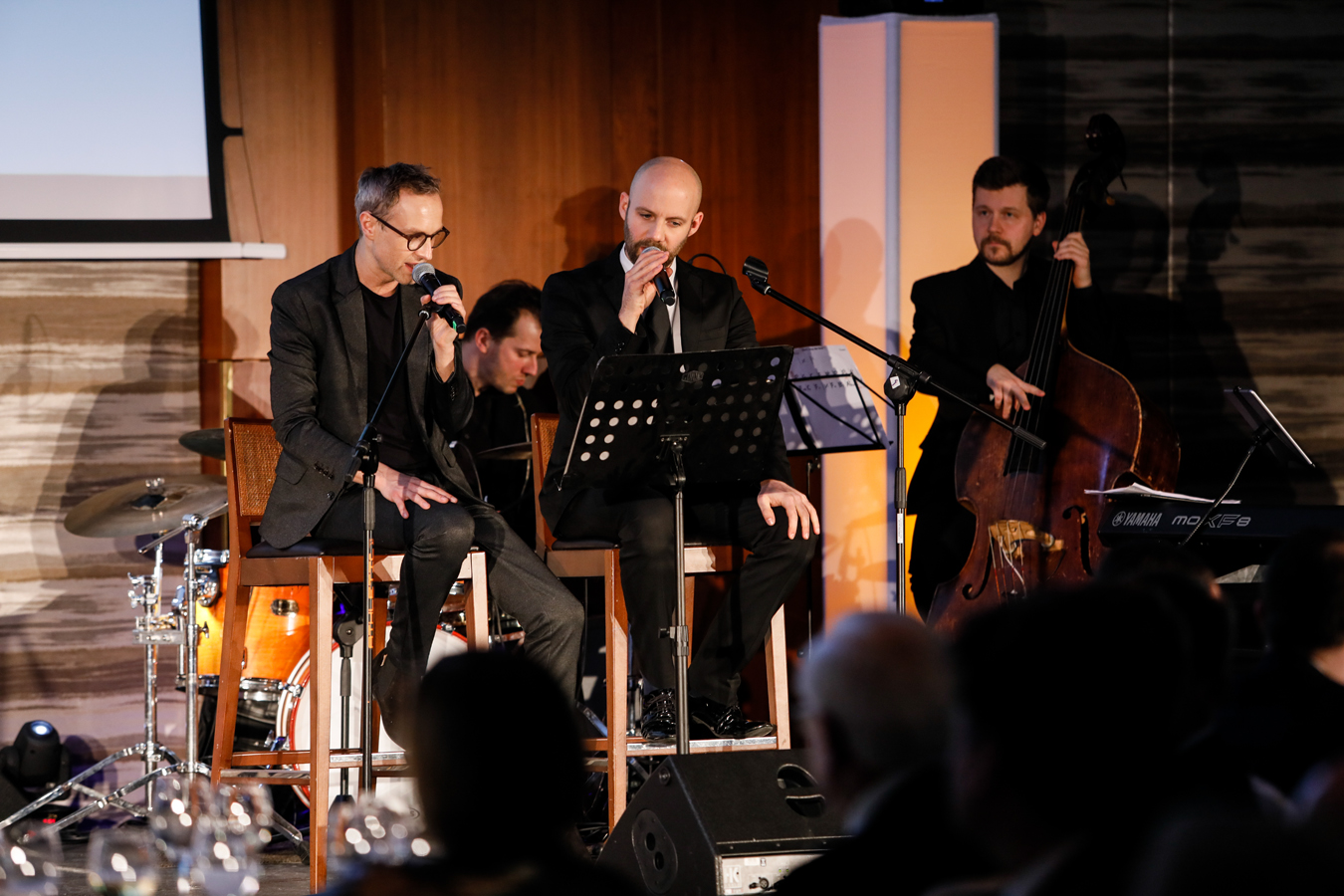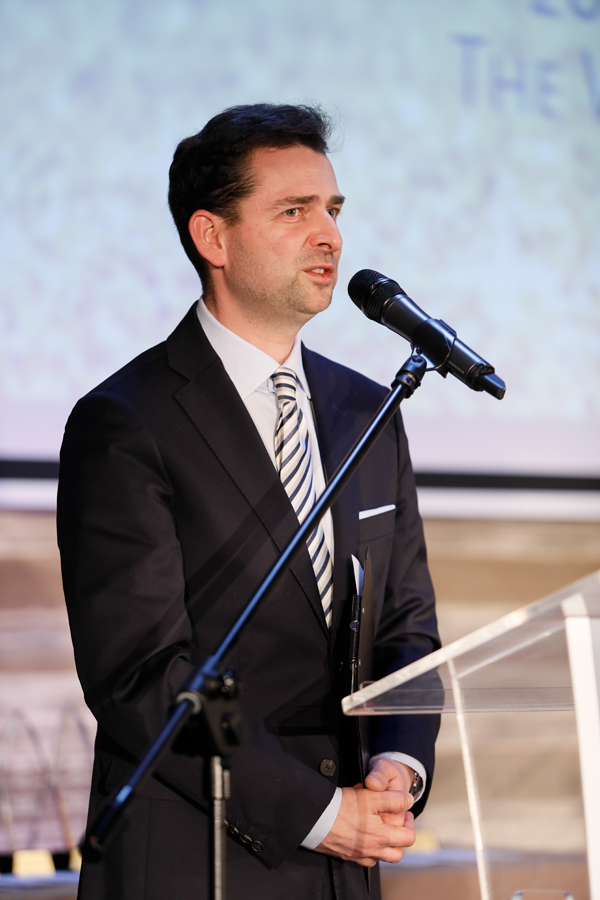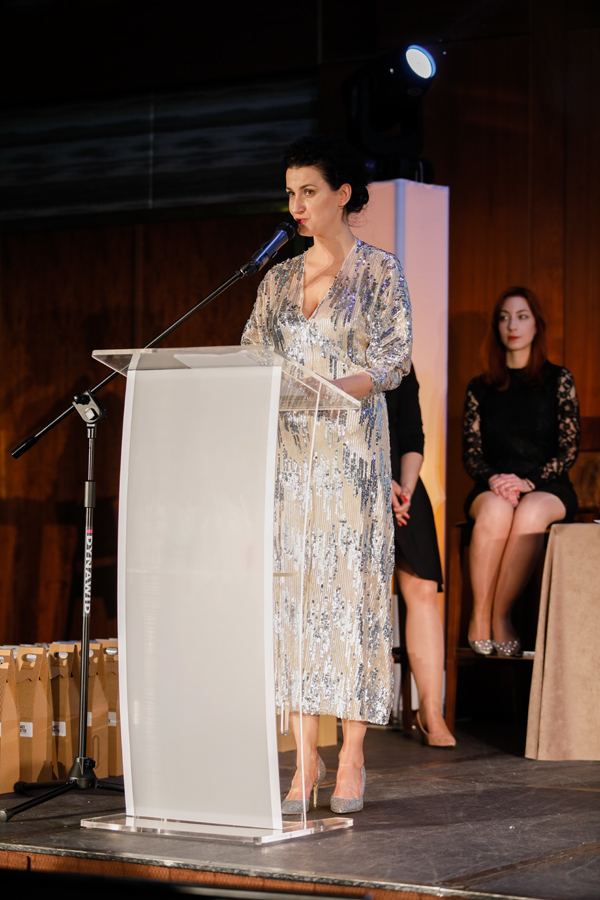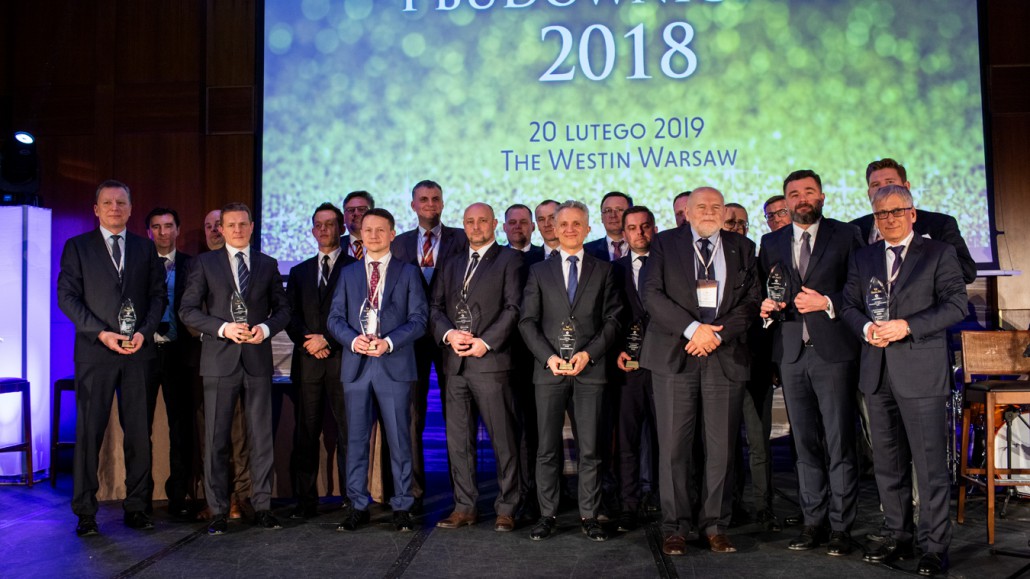
The 10th anniversary edition of the unique Polish Infrastructure and Construction conference was held by Executive Club on February 20, 2019 at The Westin hotel in Warsaw. The event has enjoyed great interest among industry experts for many years. It was no different during this year’s edition. The highlight of the day-long conference was the official “Infrastructure and Construction Diamonds” awards gala, honoring the most outstanding entities in the industry.
The participants of the conference had the opportunity to listen to four discussion panels and two speeches given by special guests. The first discussion concerned new technologies and the modernization of railway infrastructure. The panel was moderated by dr inż. Andrzej Massel – Deputy Director for Research Projects and Studies, Railway Research Institute, whose panelists included: Jakub Adamski, Expert in the Transport & Infrastructure Team, Transaction Advisory, EY; Aleksandra Auleytner – Partner at Domański, Zakrzewski, Palinka; Arnold Bresch – Member of the Management Board of PKP Polskie Linie Kolejowe SA; Robert Dębecki – Director of the Bonds and Guarantees Department, KUKE SA; Jaroslaw Oniszczuk – Member of the Management Board of PKP Intercity SA; Bartosz Tokarski – Key Account Manager, EIB SA, and Kamil Wilde – Vice President of the Office of Rail Transport. The panelists emphasized, among others, the importance of the program for the modernization of rail infrastructure by 2023, estimated at almost PLN 50 billion. It has already helped increase the rolling stock of PKP Intercity and renovate numerous railway stations, while the carrier itself transported over 46 million people in 2018, which is an 80% increase compared to the previous year. The panelists also talked about the development of railway infrastructure on the routes of freight trains serving the ports in Gdynia, Gdańsk, and Świnoujście. Other important topics discussed in this thematic block included cyber security, the use of huge amounts of data, and insurance for planned investments.
Next on the agenda was a speech of a special guest – Geoff Haley, Global Executive Chairman, IPFA. The speaker presented and described the countries that can serve as models in the implementation of construction contracts: from negotiations to implementation. These include: Canada, Australia, the USA, and Great Britain. Among the key aspects of model cooperation the speaker mentioned limited bureaucracy, well-assessed contracts and lack room for significant negotiations, as well as developed cooperation between private and public entities. When it comes to threats to construction projects, the special guest pointed out conflicting interests of different political factions.
The second discussion panel focused on new challenges for road infrastructure, and was moderated by Włodzimierz Szymczak – former President of the European Council of Civil Engineers (ECCE). The panelists were: Marta Dziewulska – Director of Investment Support and Public Procurement Department, DSK Kancelaria; Grzegorz Kwieciński – Director of Insurance Risk Department, KUKE SA; Łukasz Marcinkiewicz – General Director, LH Engineering; Hubert Nowak – President of the Polish Public Procurement Office; Jerzy Wacławczyk – Director of Motorway and Large Projects, Strabag and Tomasz Żuchowski – Acting Director General of National Roads and Motorways. An interesting discussion regarding the valorization of contracts backwards started at the very beginning of the panel – is it possible at all and how should it be carried out? Łukasz Marcinkiewicz pointed out that the situation in infrastructure construction in Poland is characterized by uncertainty and a minimum dose of optimism. This uncertainty is caused by 3 elements: financial issues, i.e. profitable performance of contracts, fluctuations on the infrastructure market itself, which is unstable, and the lack of strategic plans reaching after the end of the EU perspective, i.e. after 2023. The minimum dose of optimism, according to the panelist, is that there is still a lot of demand in the area of infrastructure in Poland. Other topics discussed included methods of settling contracts, contractual penalties, minimum rates in contracts of mandate, and insurance for construction contracts.
The third discussion panel concerned opportunities and threats in the development of the Polish infrastructure. This thematic block was moderated by prof. Eugeniusz Koda – Dean of Faculty of Civil and Environmental Engineering, Warsaw University of Life Sciences, who invited the following panelists: Leszek Drogosz – Director of the Infrastructure Department, City of Warsaw; Patryk Figiel – Head of Projects Practice, Linklaters; Przemysław Janiszewski – Vice President of the Management Board, Polimex-Mostostal SA; Paweł Średniawa – Vice President of the Management Board, PBDI SA; Marek Wiśniewski – President, ECM Energia SA, Michał Piąstka – Director of the Production Division, Mota-Engil Central Europe SA, and Geoff Haley – our previous speaker. The first topic discussed was public-private partnerships as one of the ways of financing investments and an alternative to EU funding. The panelists pointed out that the distribution of risk between partners and continuous dialogue between them is crucial when using this solution. The new public procurement law was considered a great opportunity and a step in the right direction. Among the most significant challenges the panelists listed the growing costs of workforce, which had been increasing by 20-30% year by year, and the shortage of qualified staff. Another threat mentioned in the panel was the increasing financial problems of construction companies, which may result in difficulties in obtaining contract insurance.
The event also featured a speech given by Włodzimierz Szymczak, participant of one of the previous panels, who discussed the challenges faced by the construction industry. He listed 17 strategic goals for sustainable development, 7 of which directly concern civil engineers. Among the global challenges he mentioned: dynamic population growth, unstoppable expansion of cities, climate change, degradation of the natural environment, excessive exploitation of natural resources, and digitalization.
The last panel was devoted to innovation in construction. It was moderated by Jan Styliński – President of the Polish Association of Construction Industry Employers, who started by presenting a report on the construction industry, which showed that it is the least digitized sector of the economy. The innovations which can provide construction with opportunities to develop include augmented reality, construction software, and data management systems. Another important issue which will have an impact on the efficiency and productivity of construction companies is BIM (Building Information Modeling), as it constitutes the basis for further digitalization of ongoing construction projects. The participants, including: Andrzej Maciej Czapczuk – Vice President and Managing Director of F.B.I. TASBUD SA; Michał Kanabrodzki – President of the Management Board, Profen; Dariusz Kostaniak – Member of the Management Board, Chief Investment Officer, Metro Warszawskie; Albert Krupiński – Director of the Digitization Department, Strabag, and Artur Met – Director in APA Innovative, APA Group, argued that innovation in the industry should not be limited just to BIM, but should also include the digitization of all process chains, both at the stage of offer acquisition and preparation, but also at the stage of the works themselves. The implementation of digitization is most profitable in those areas where the most mistakes are made. The experts jointly listed the key directions for the implementation of innovations which will have an impact on the construction market and real estate investments, including the use of artificial intelligence, drones, and robots.
After the discussions, filled with interesting exchanges and huge amounts of expert knowledge, there was time for the highlight of the day. It was the evening gala of “Infrastructure and Construction Diamonds”, honoring the companies and individuals who stand out in the industry with their unconventional and innovative activities. This year 16 diamonds were awarded in 8 categories.
Realization of the Year – residential/commercial/industrial buildings
Winner: Hochtief Polska – Praga Koneser Center, Warsaw
Distinction: Warbud SA – Hotel Europejski, Warsaw
Realization of the Year – road infrastructure
Winner: Metrostav SA – Bridge on Sobieszewo Island, Gdańsk
Distinction: Eurovia Polska SA – S3 freeway on the Legnica-Bolków section
Realization of the Year – rail infrastructure
Consortium of Budimex SA, STRABAG, and ZUE SA – Modernization of railway line no. 20 in Warsaw (Mała Linia Obwodowa Warszawy)
Construction Company of the Year
F.B.I. TASBUD SA
Technology Leader
Kajima Poland
Security Leader
Winner: Polimex-Mostostal SA
Distinction: PERI Polska
Sustainable Development Leader
Lafarge Cement SA
Advisor of the Year
Winner: Jara Drapała & Partners
Distinction: EIB SA
Financing Entity of the Year
Winner: PKO Bank Polski SA
Distinction: KUKE SA
Personality of the Industry
Piotr Kledzik, President of the Management Board of PORR SA



